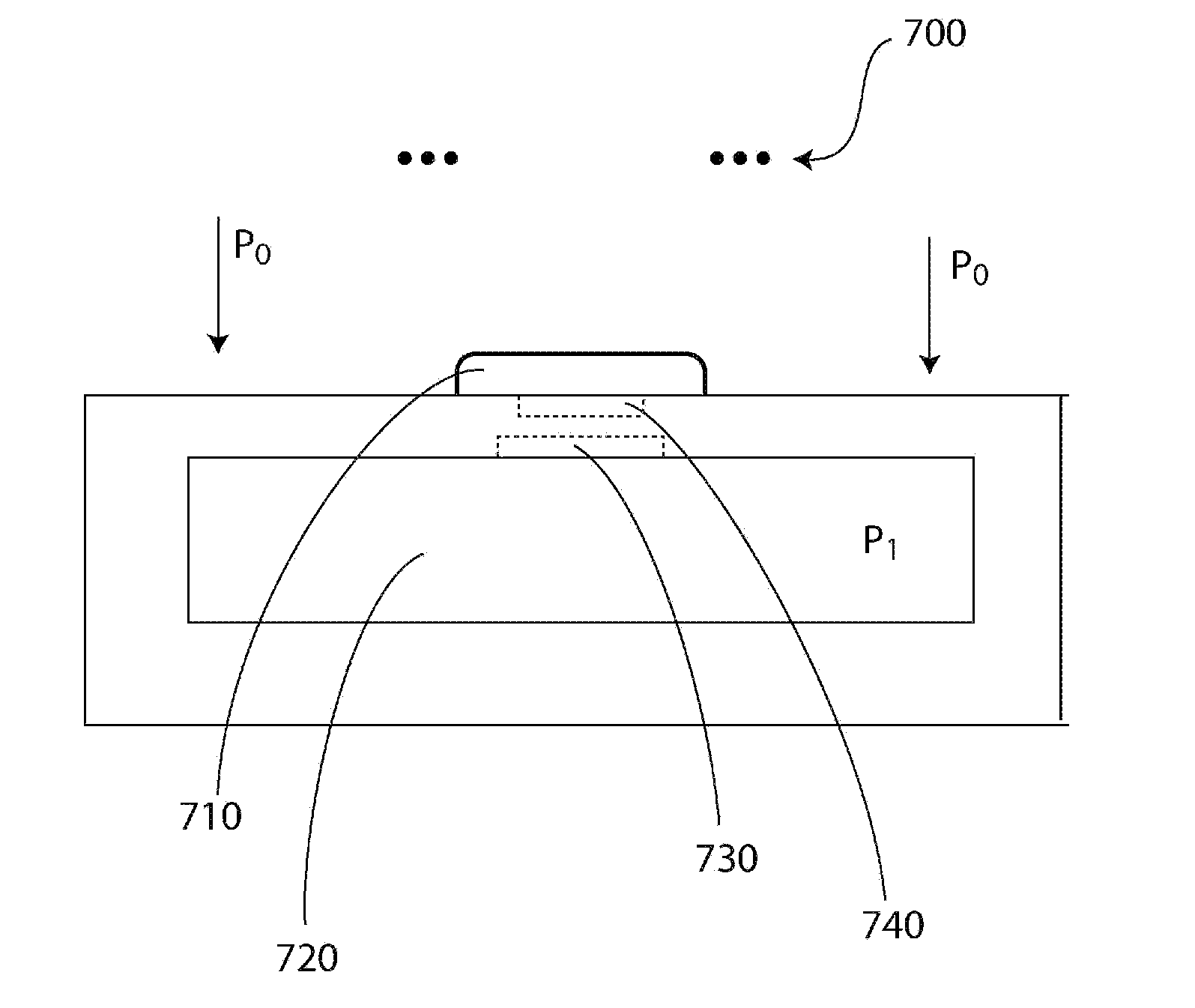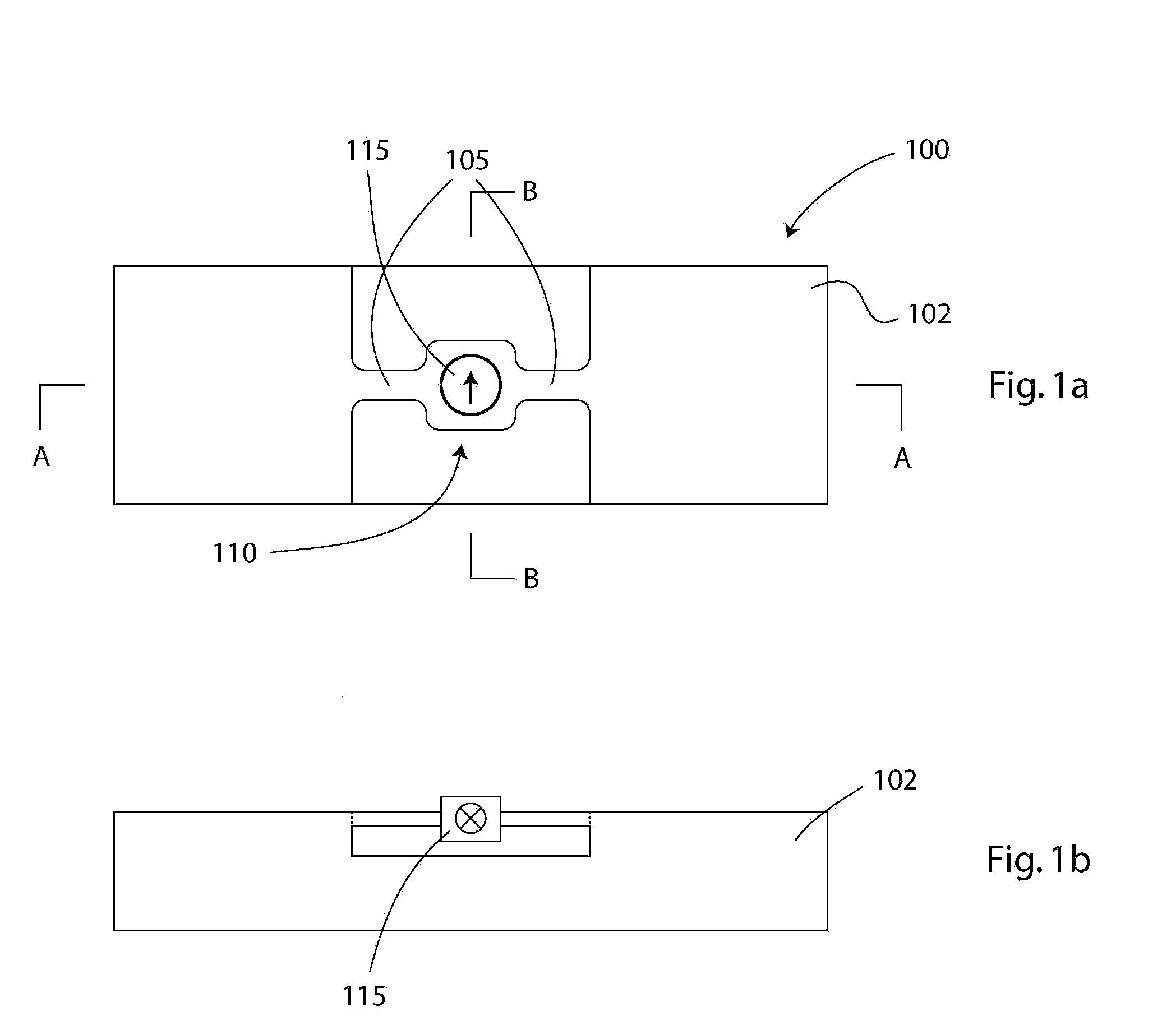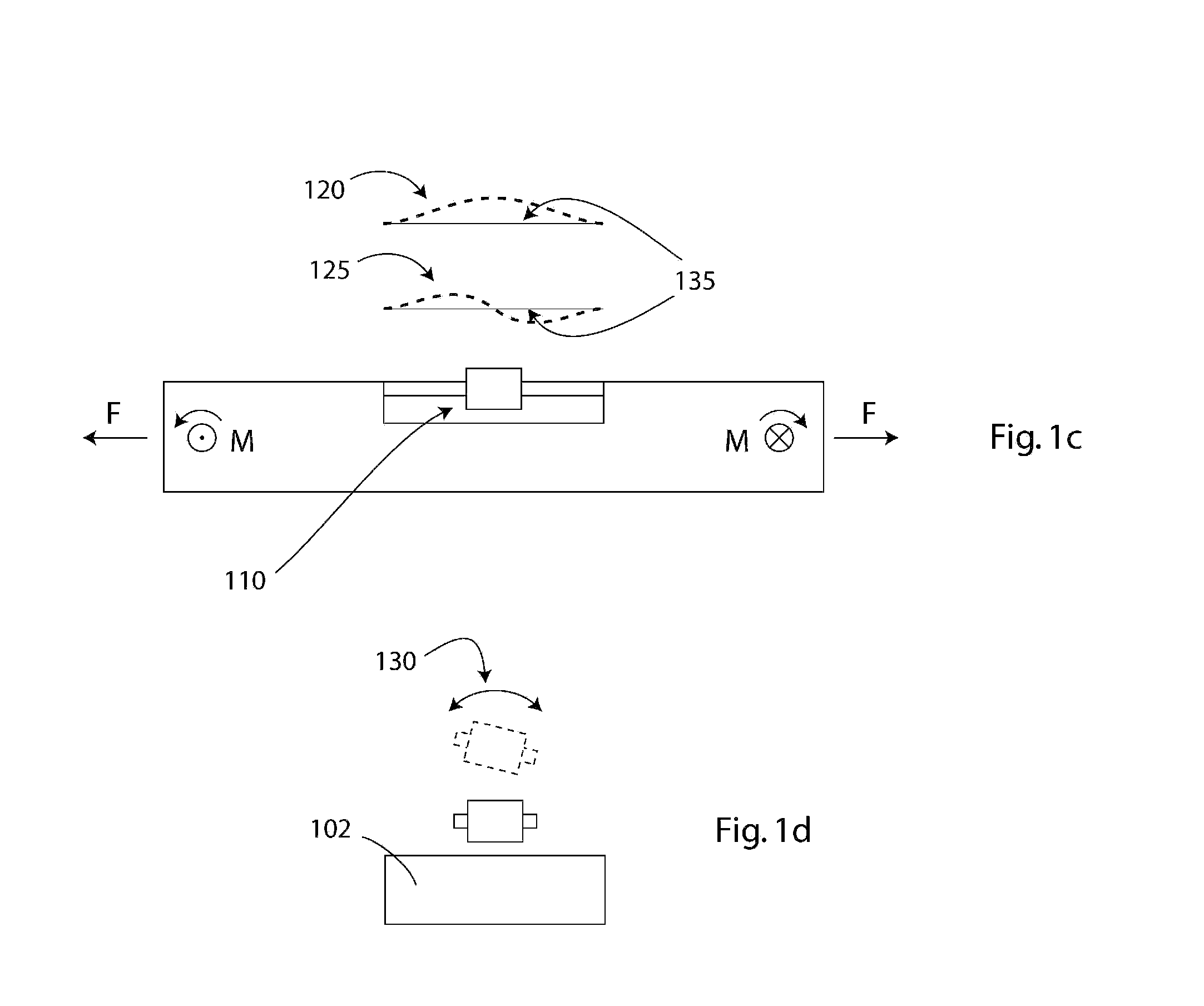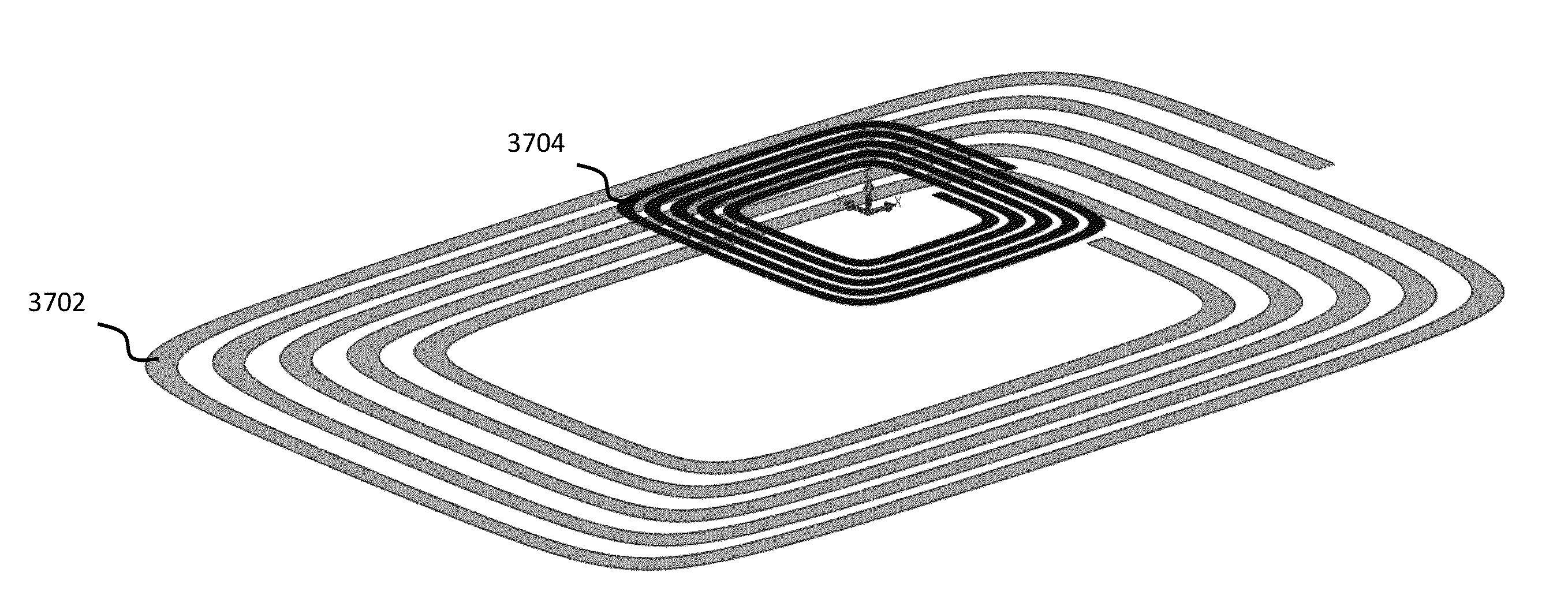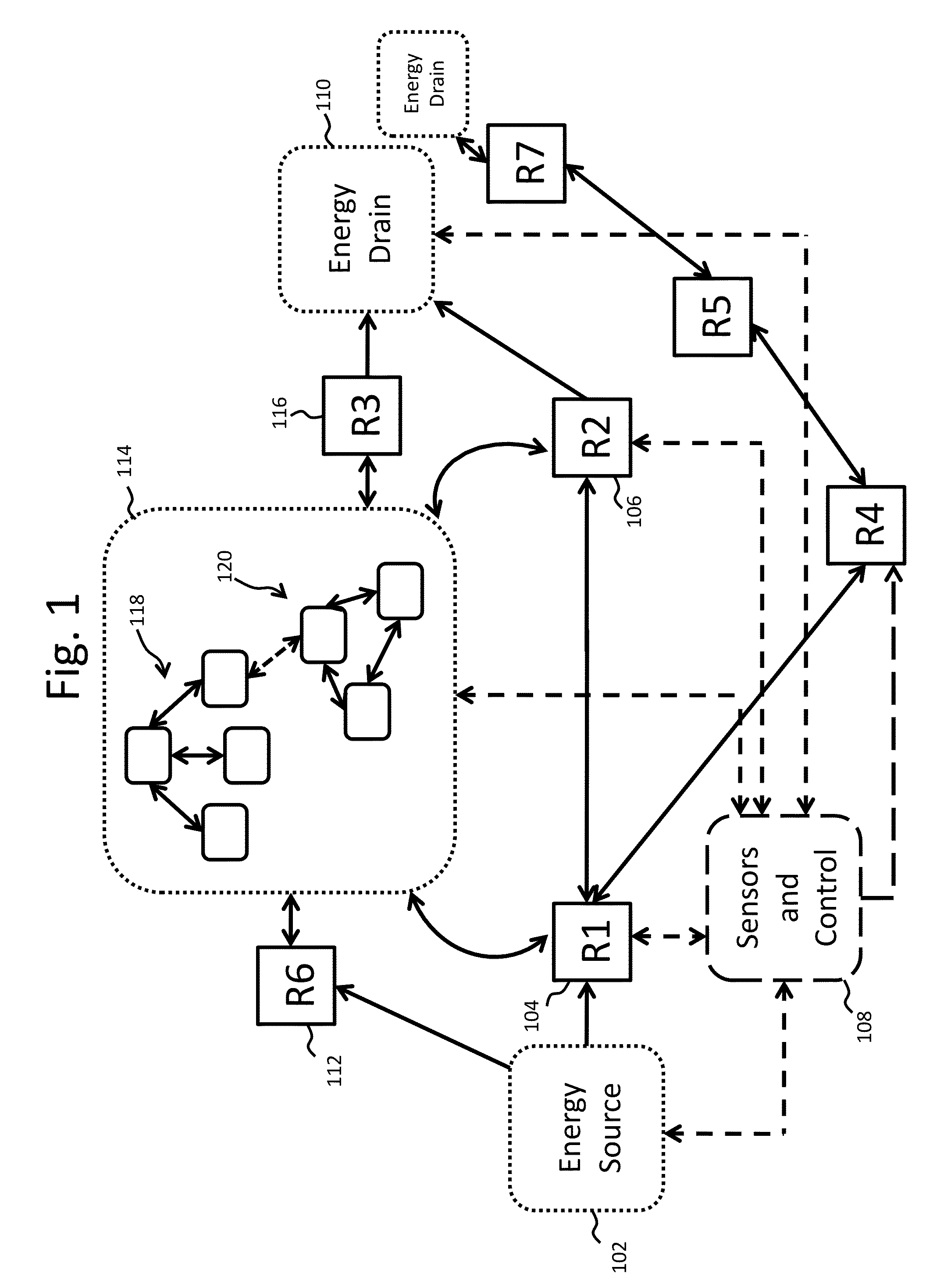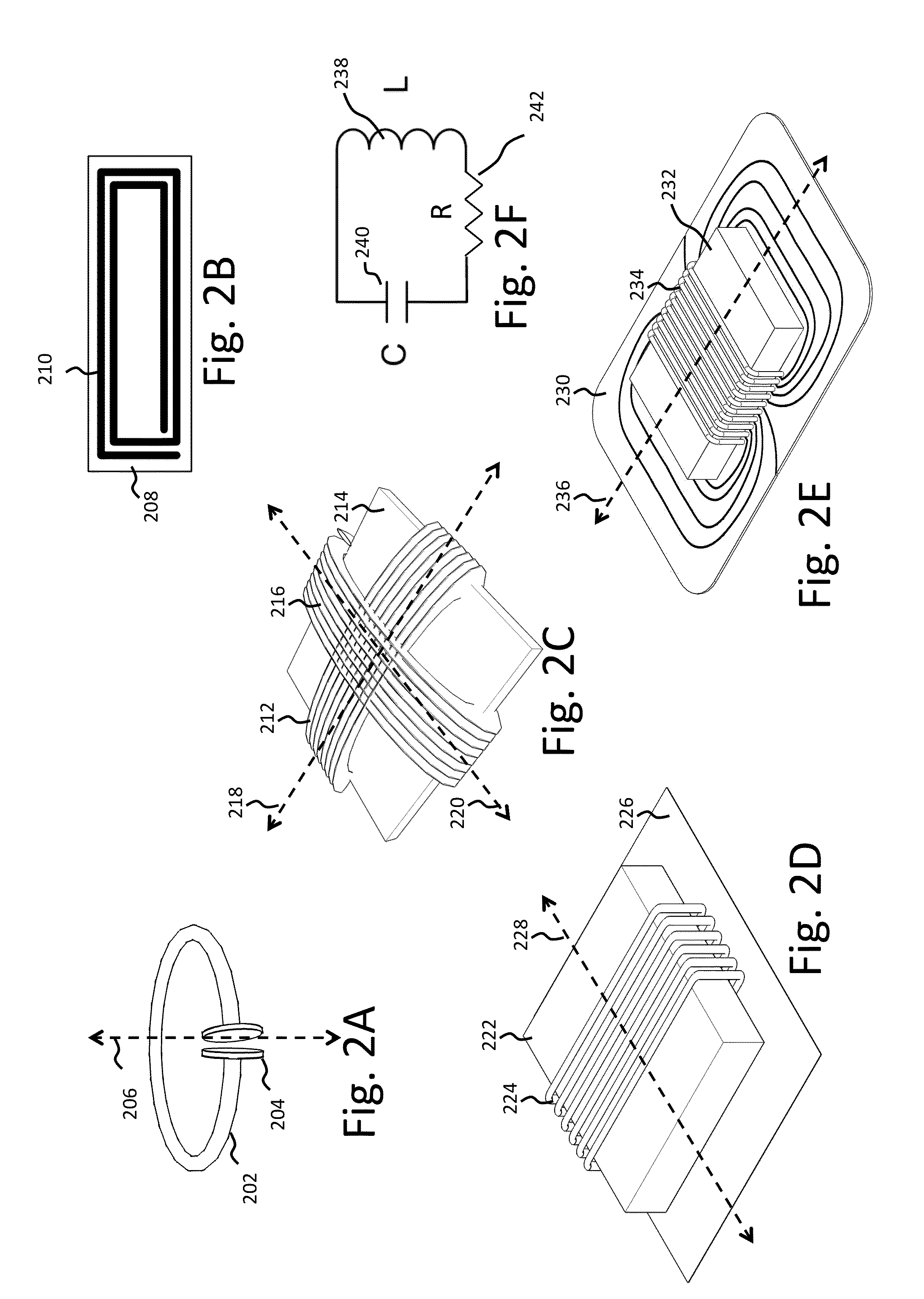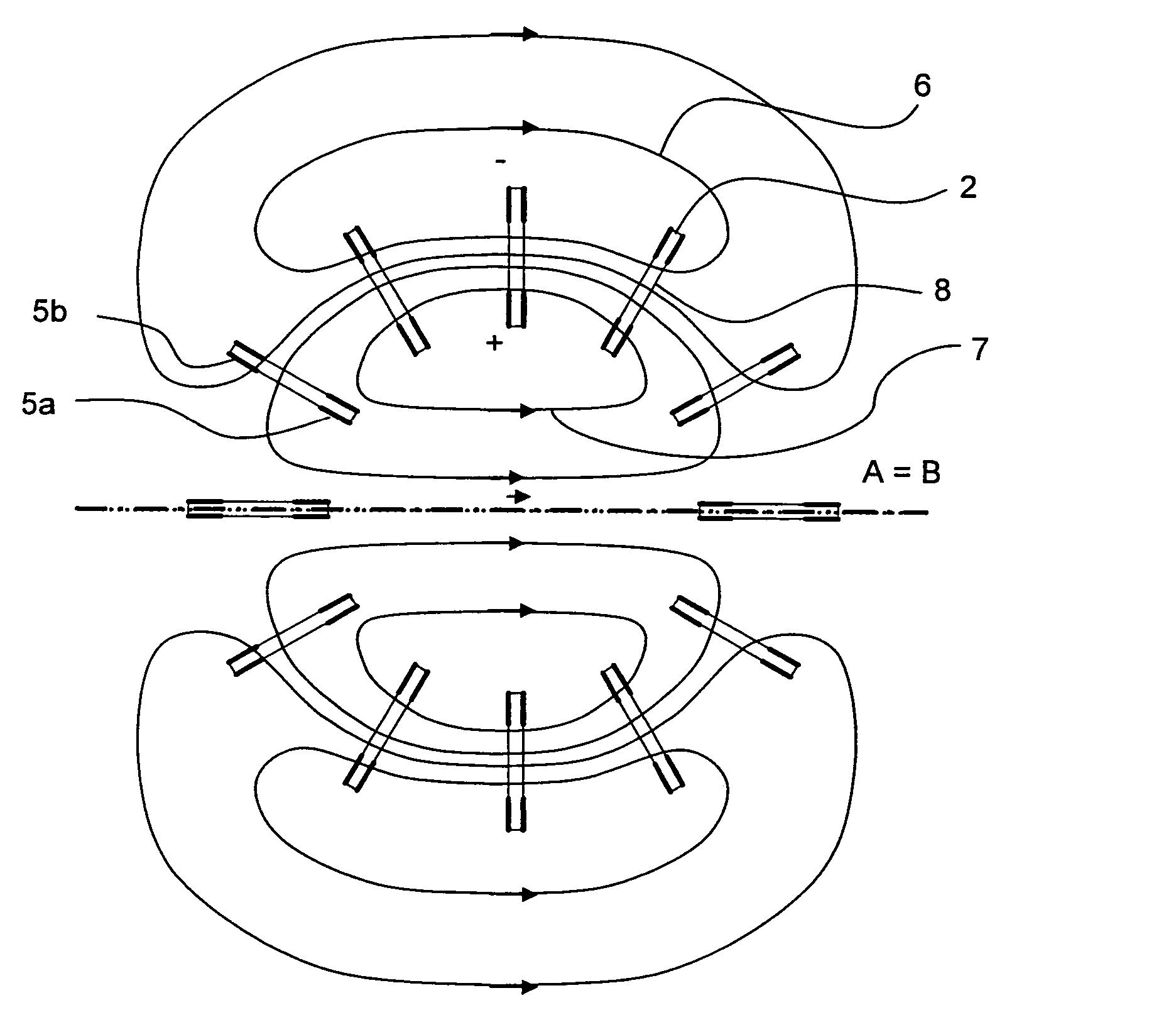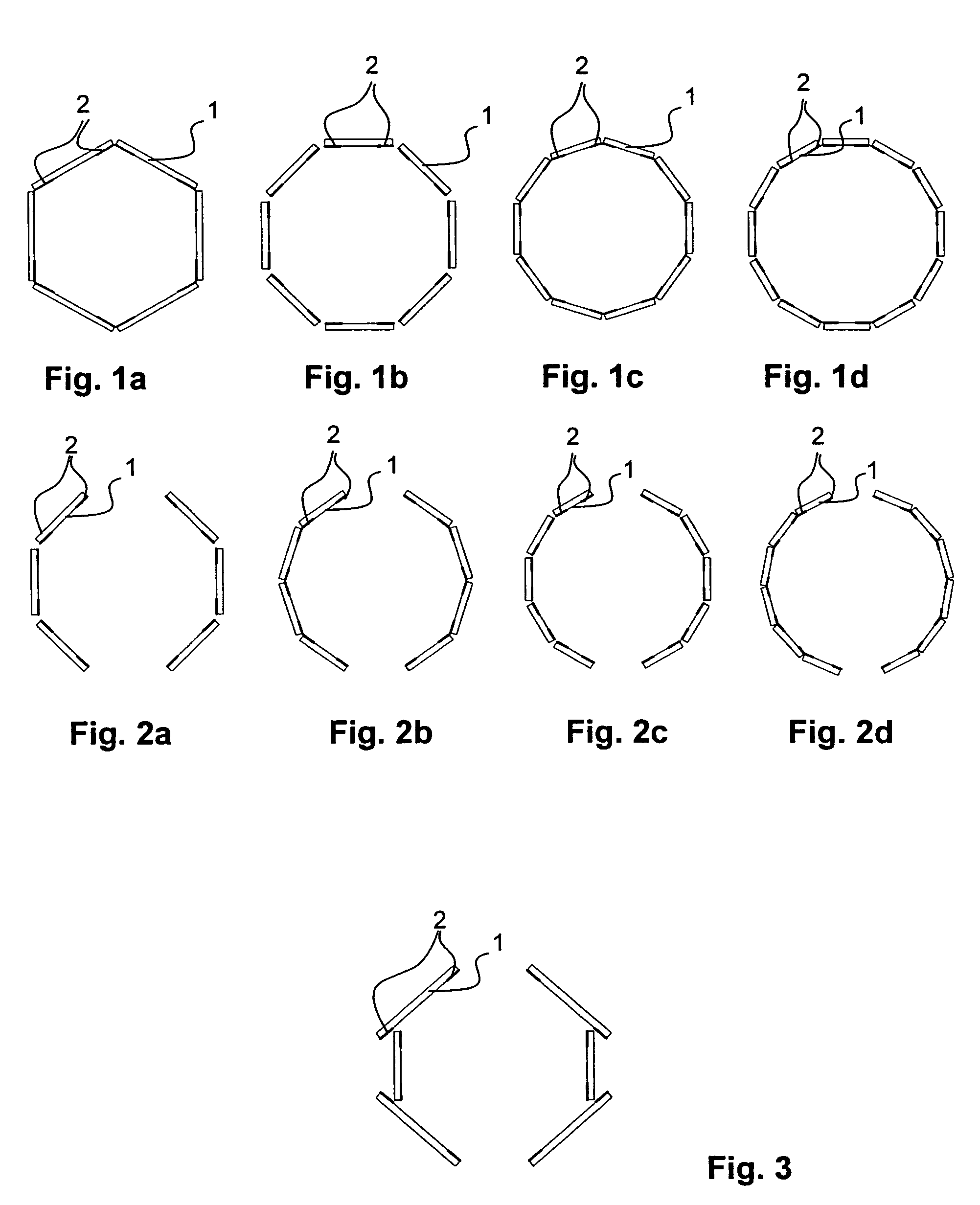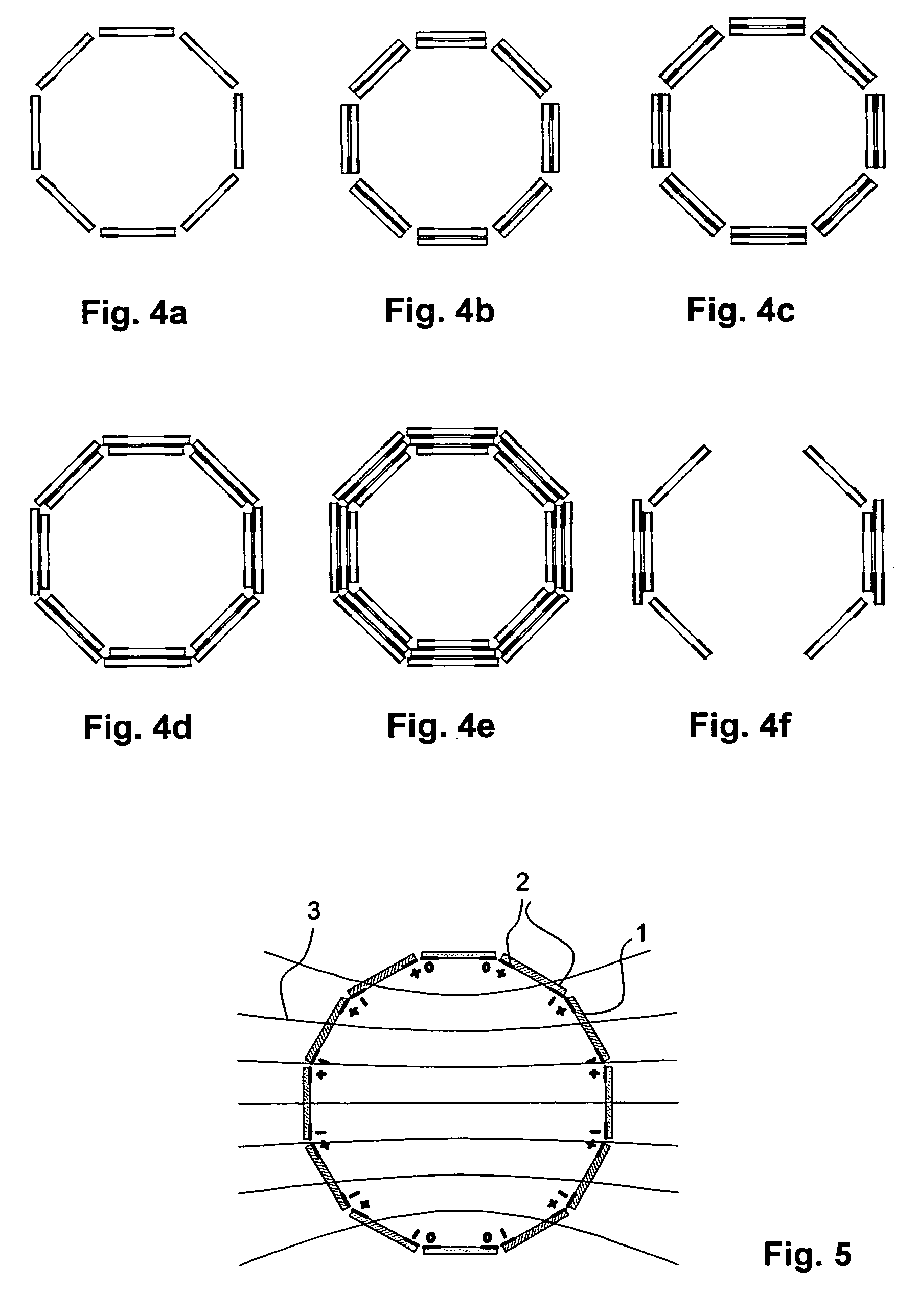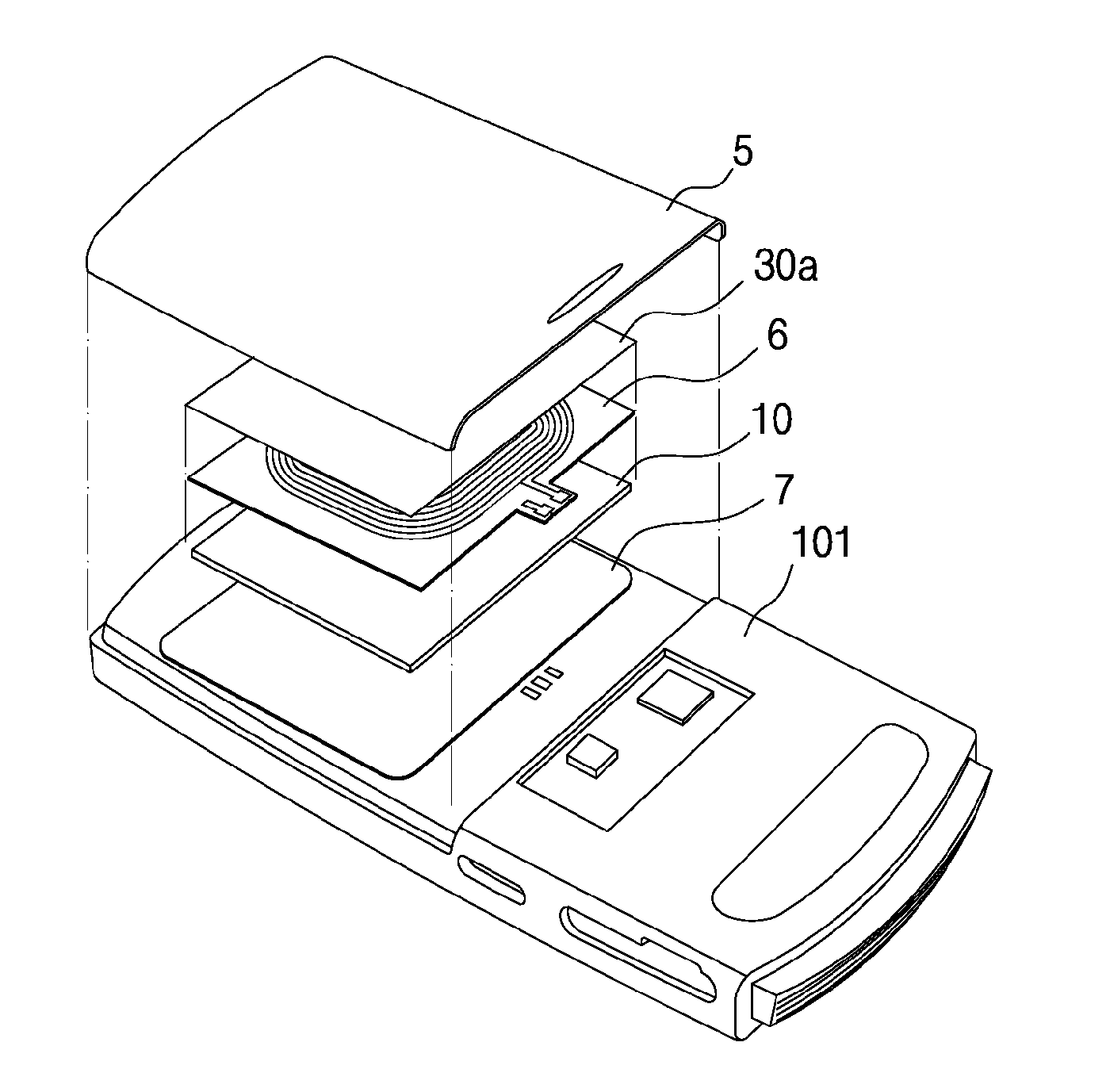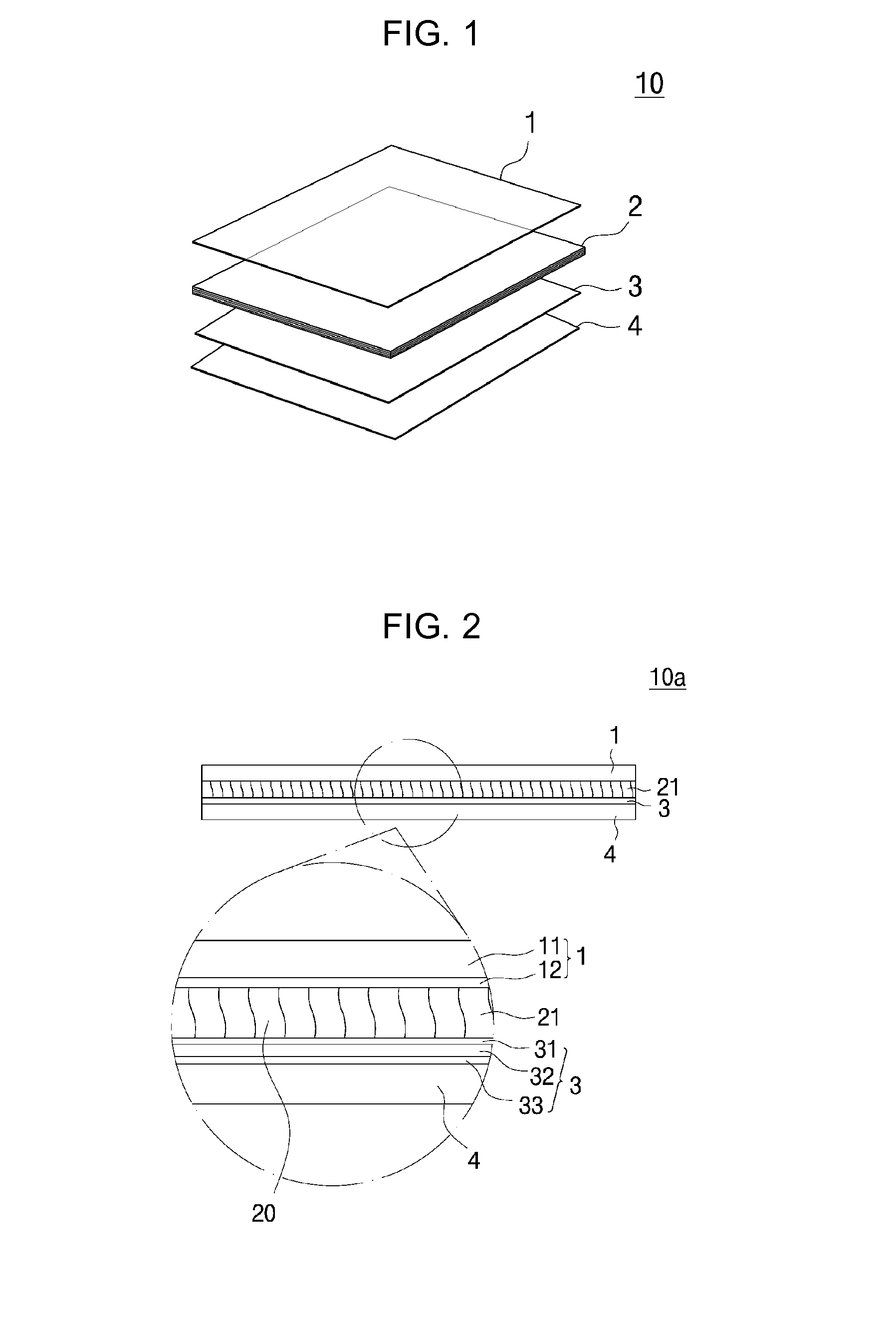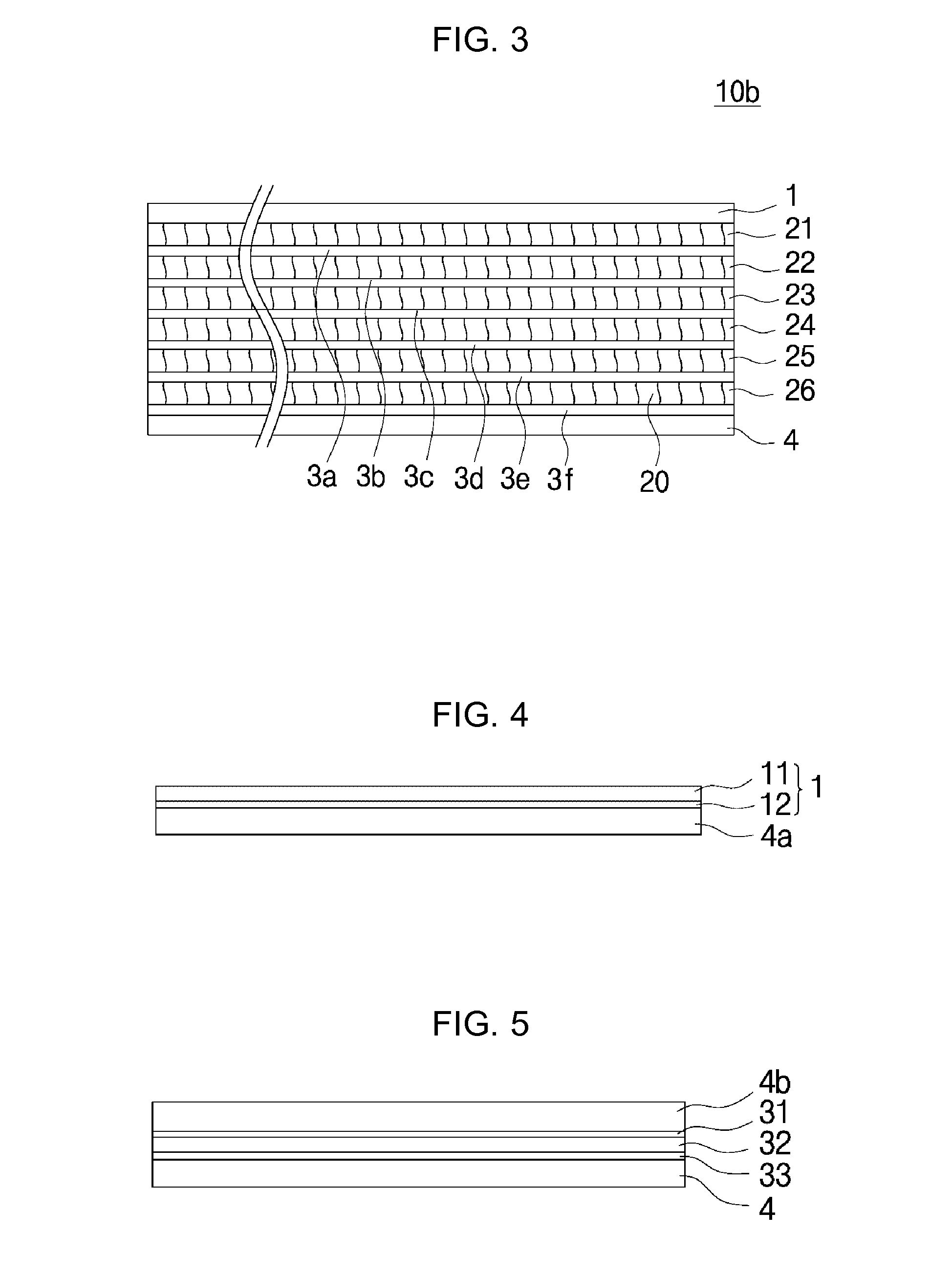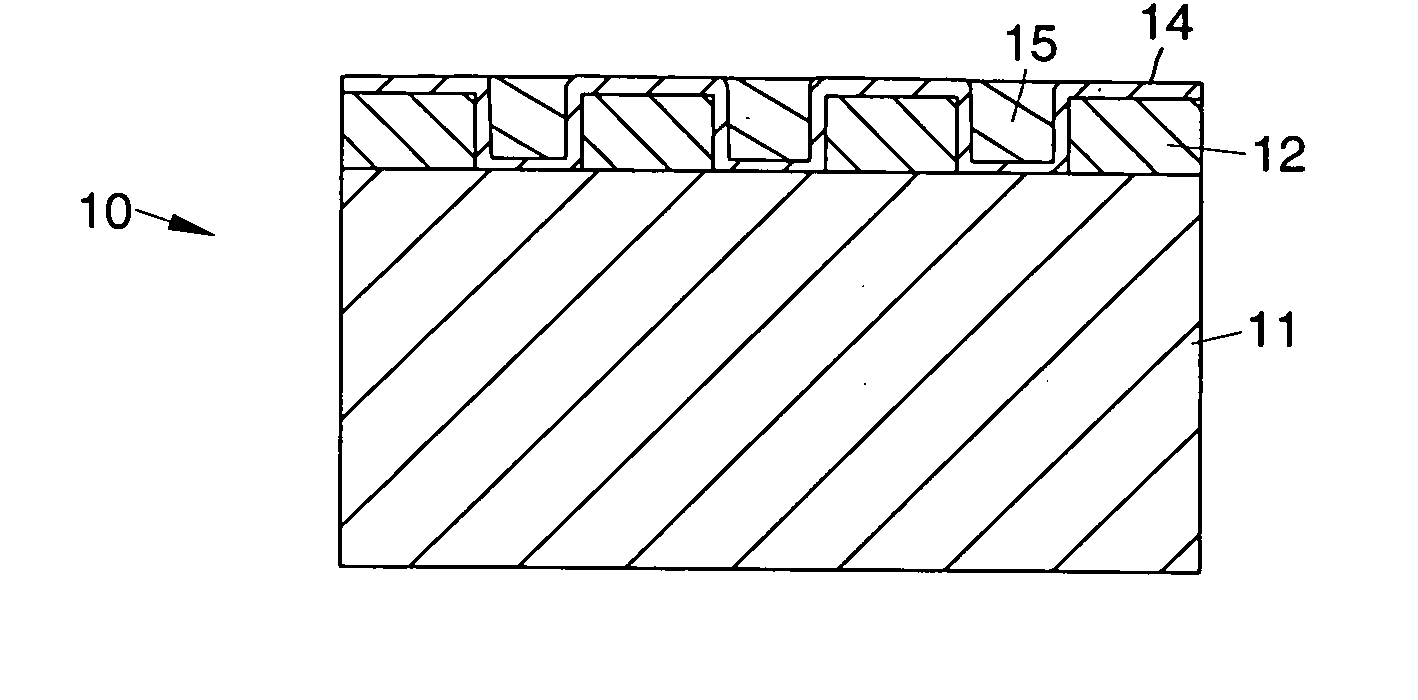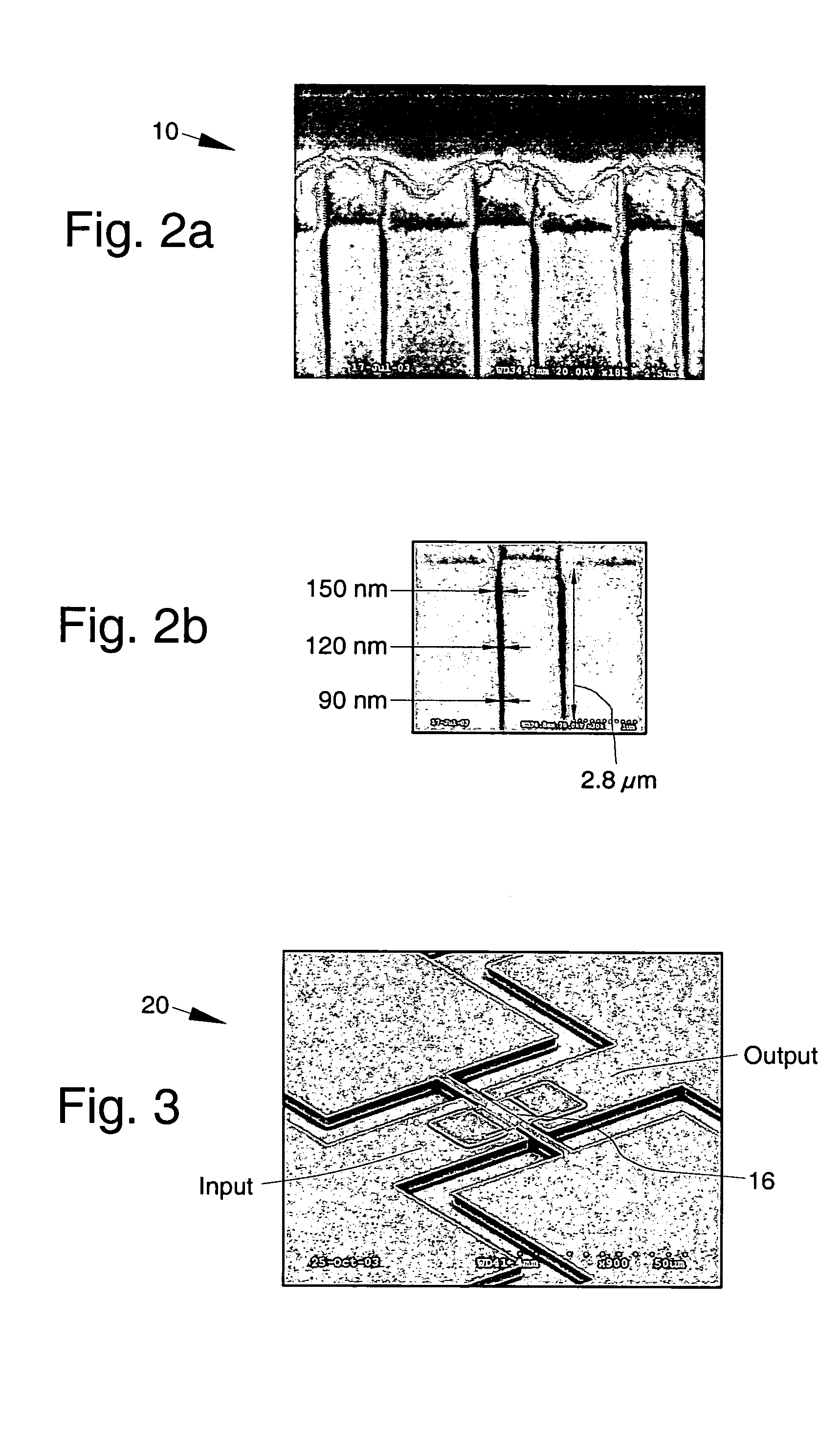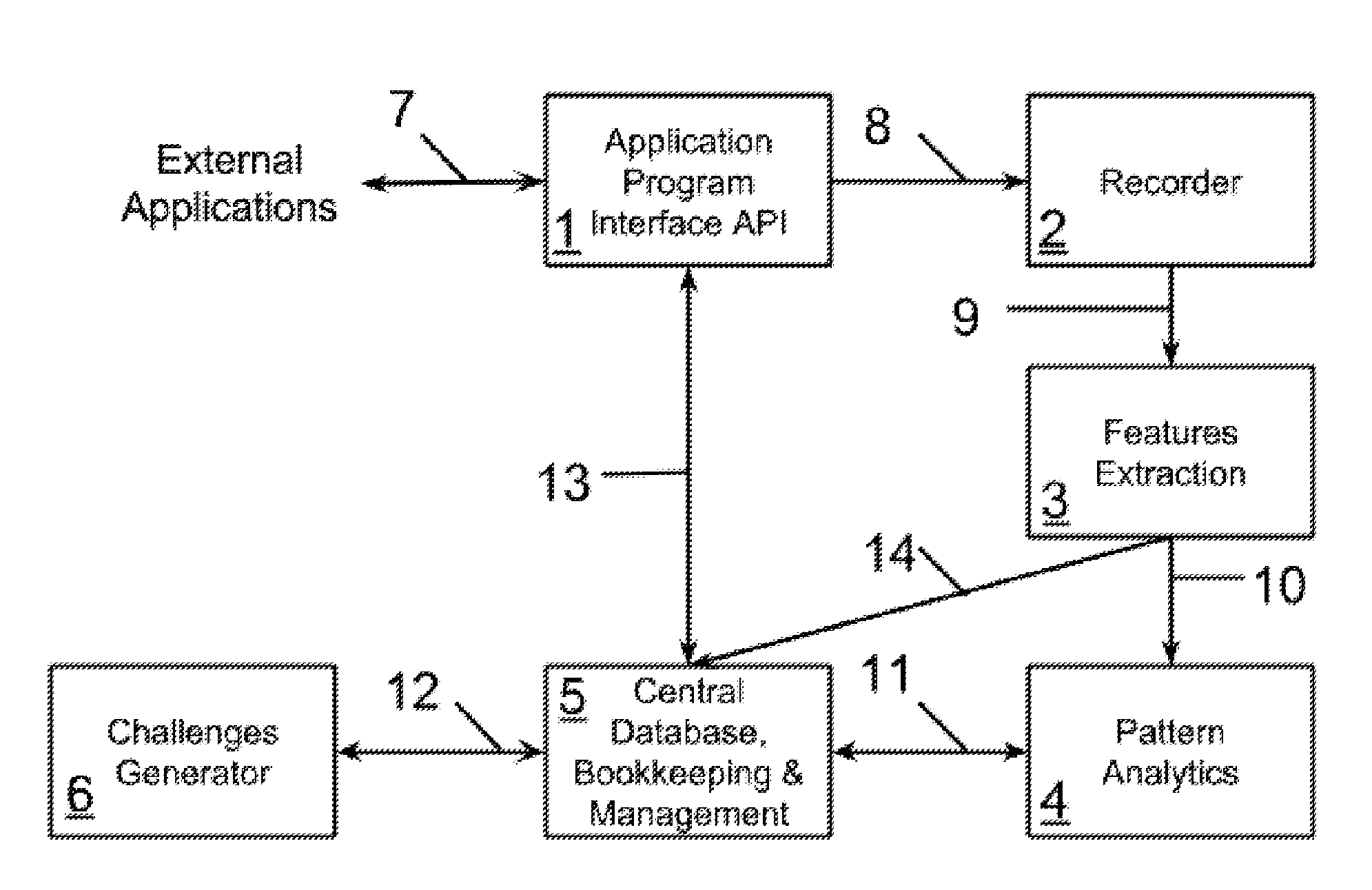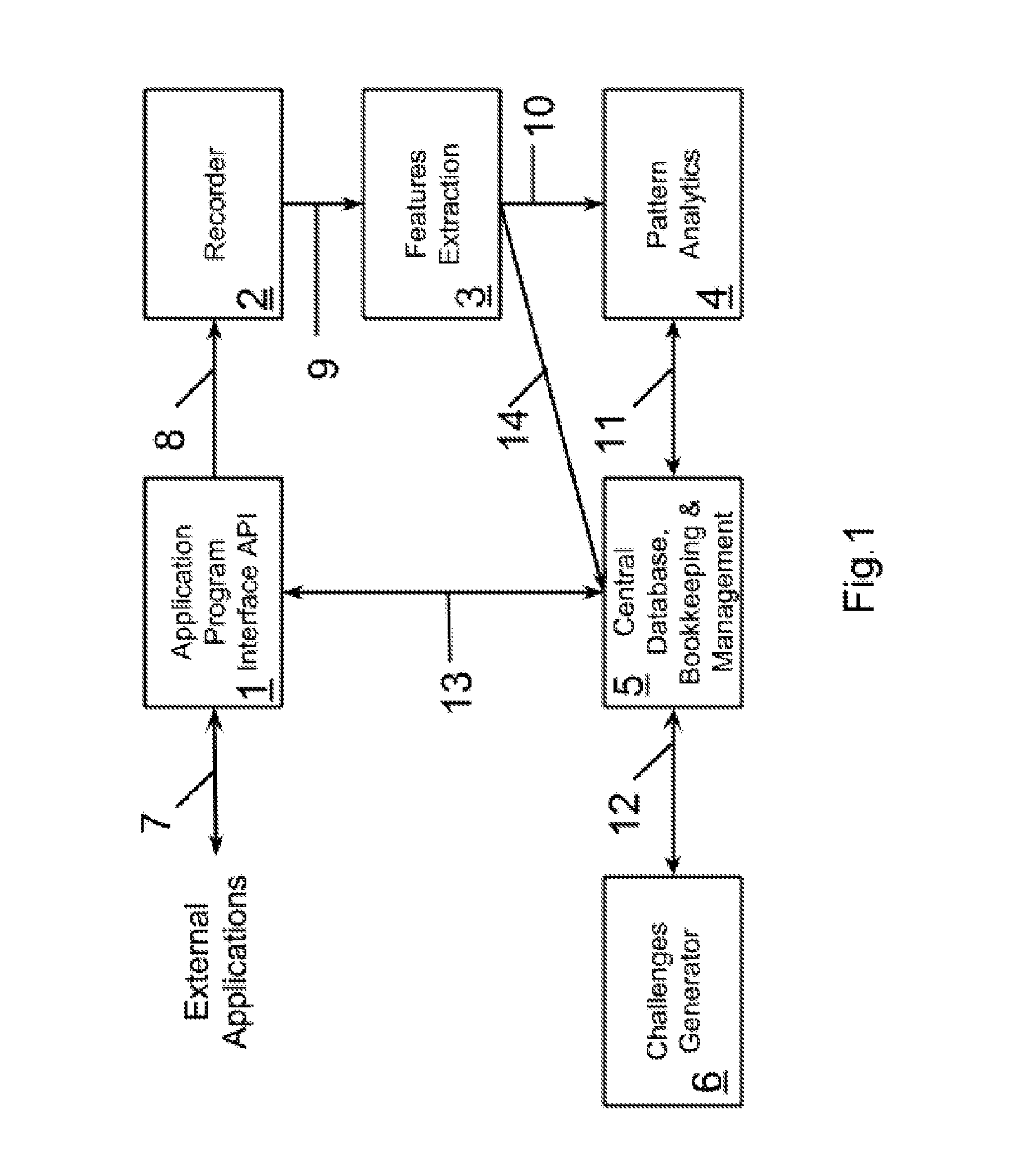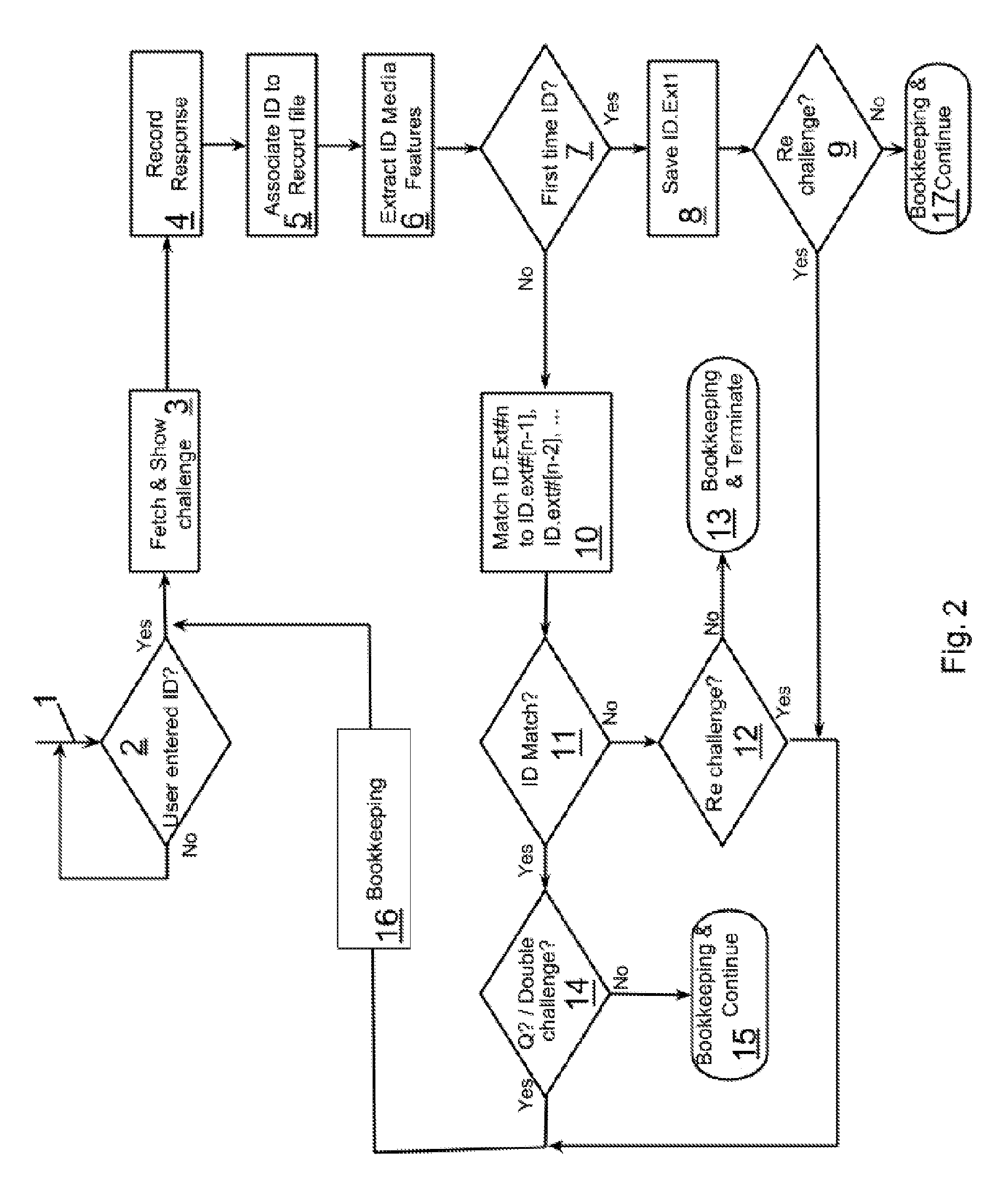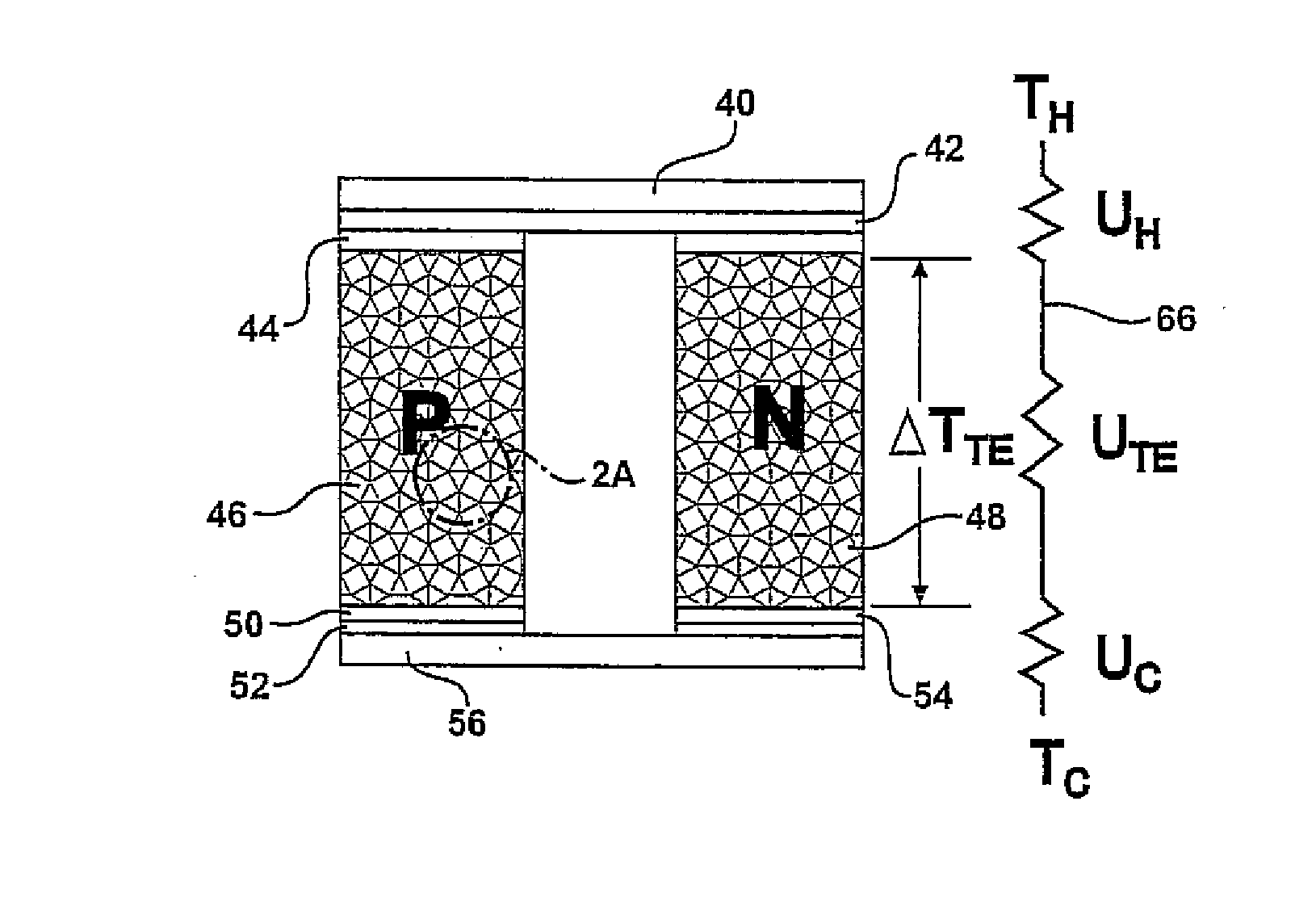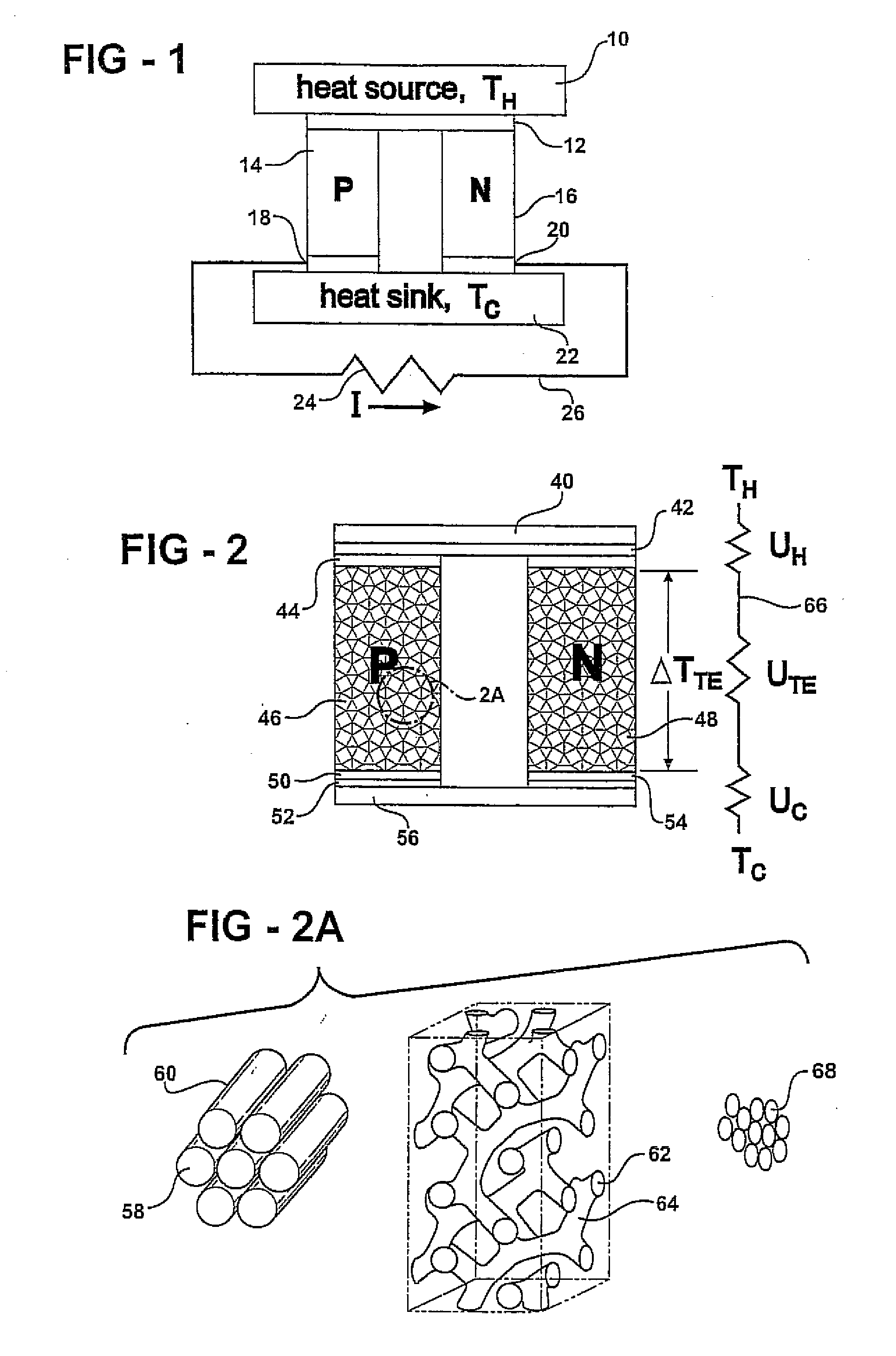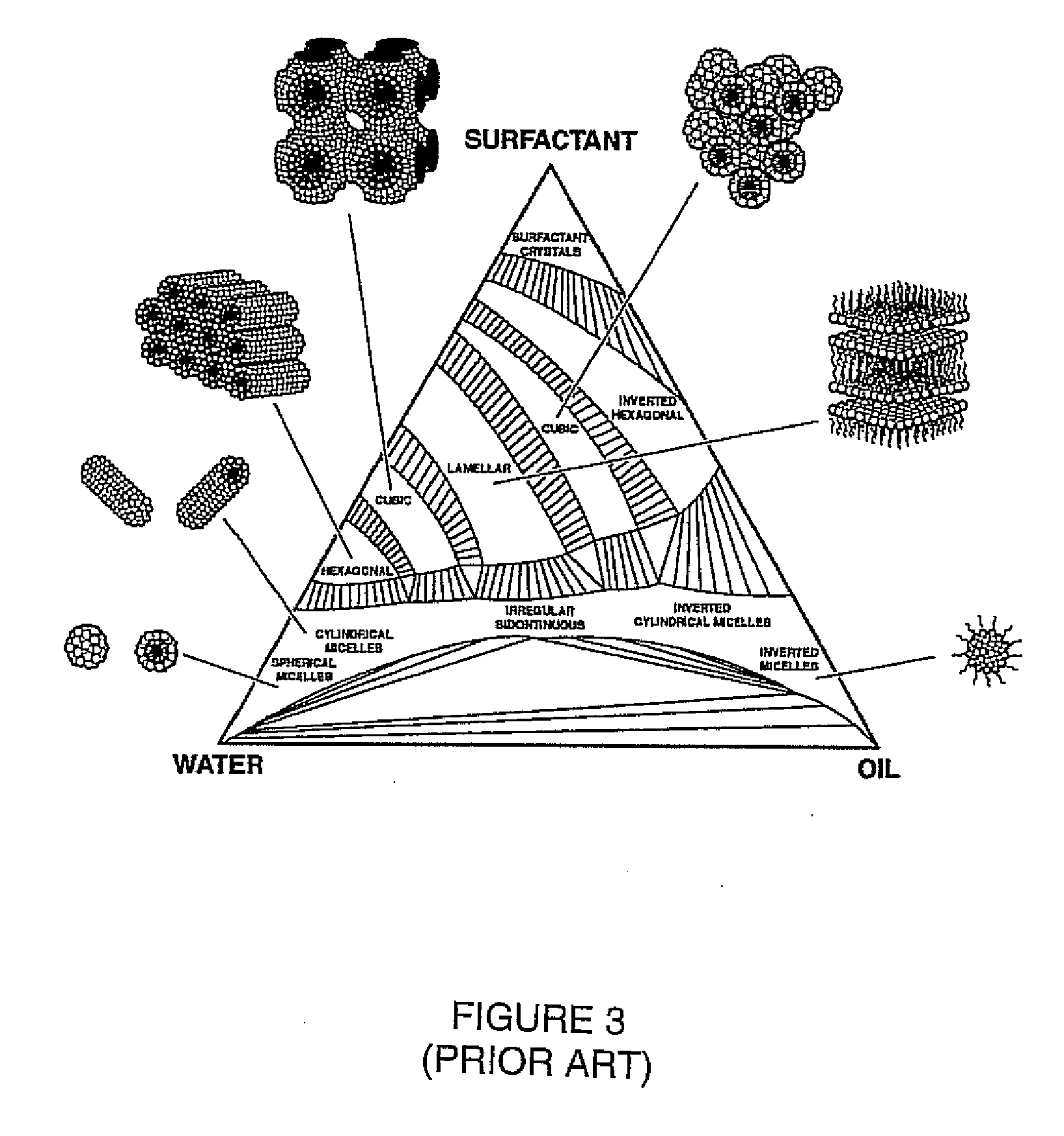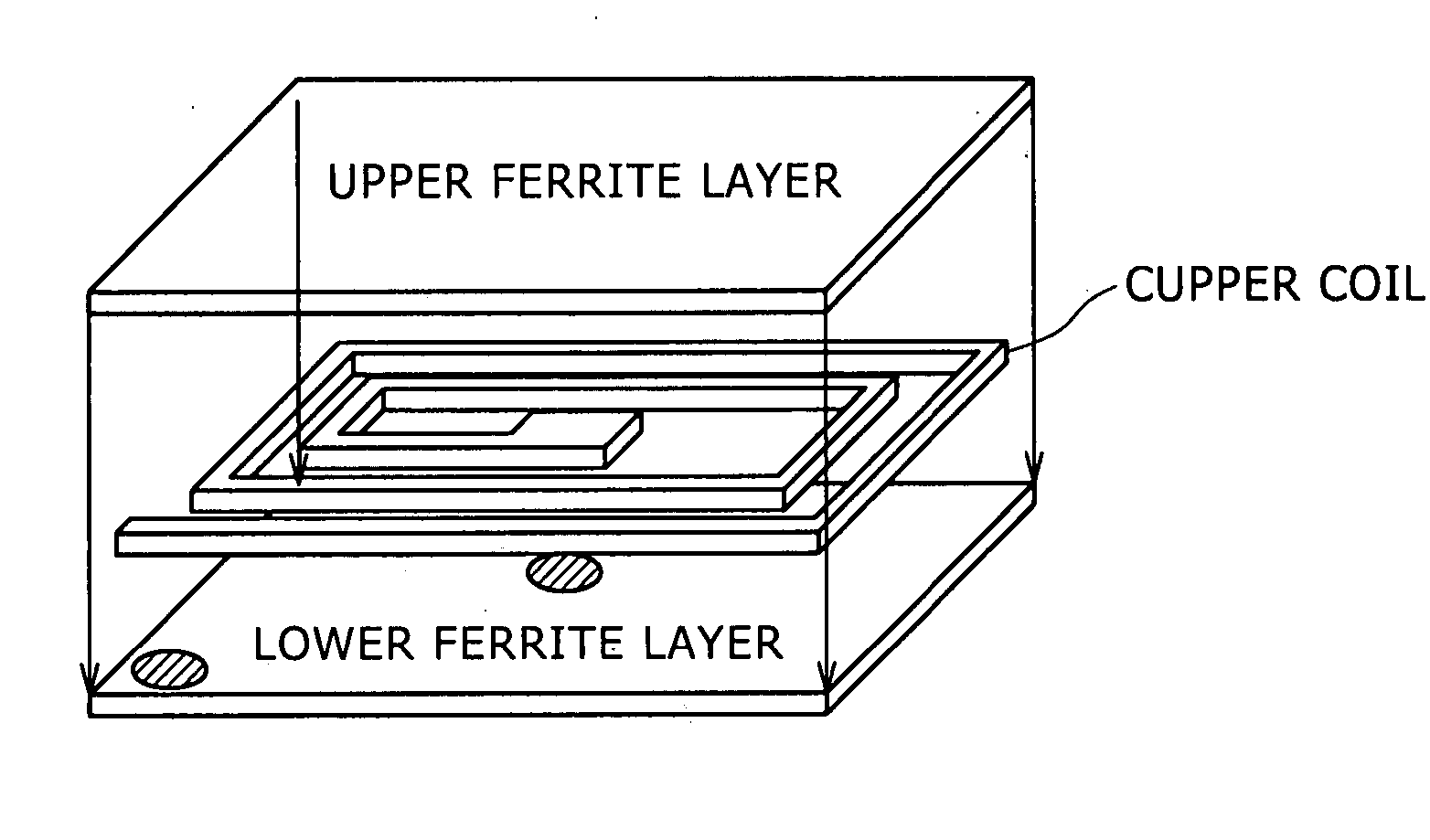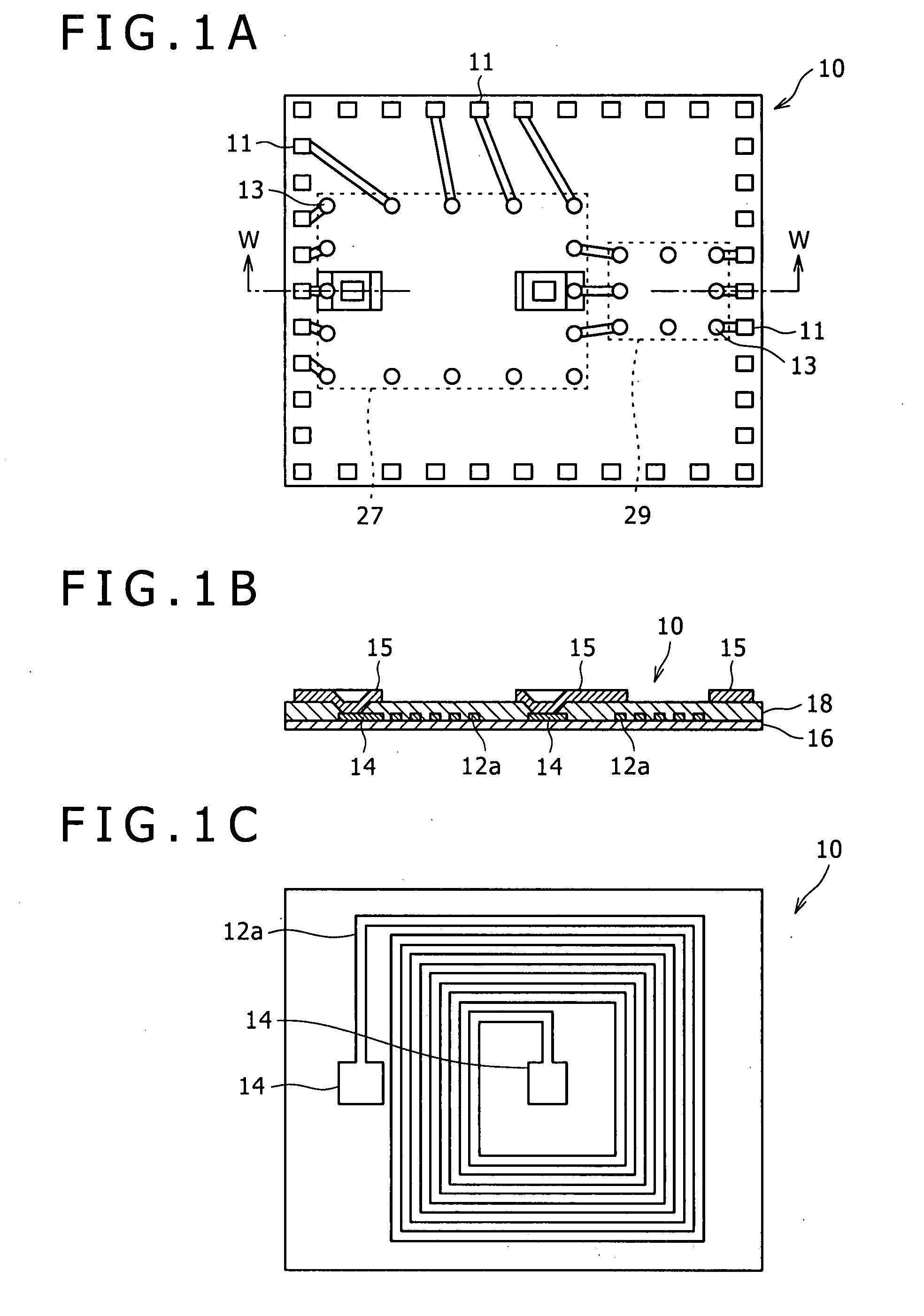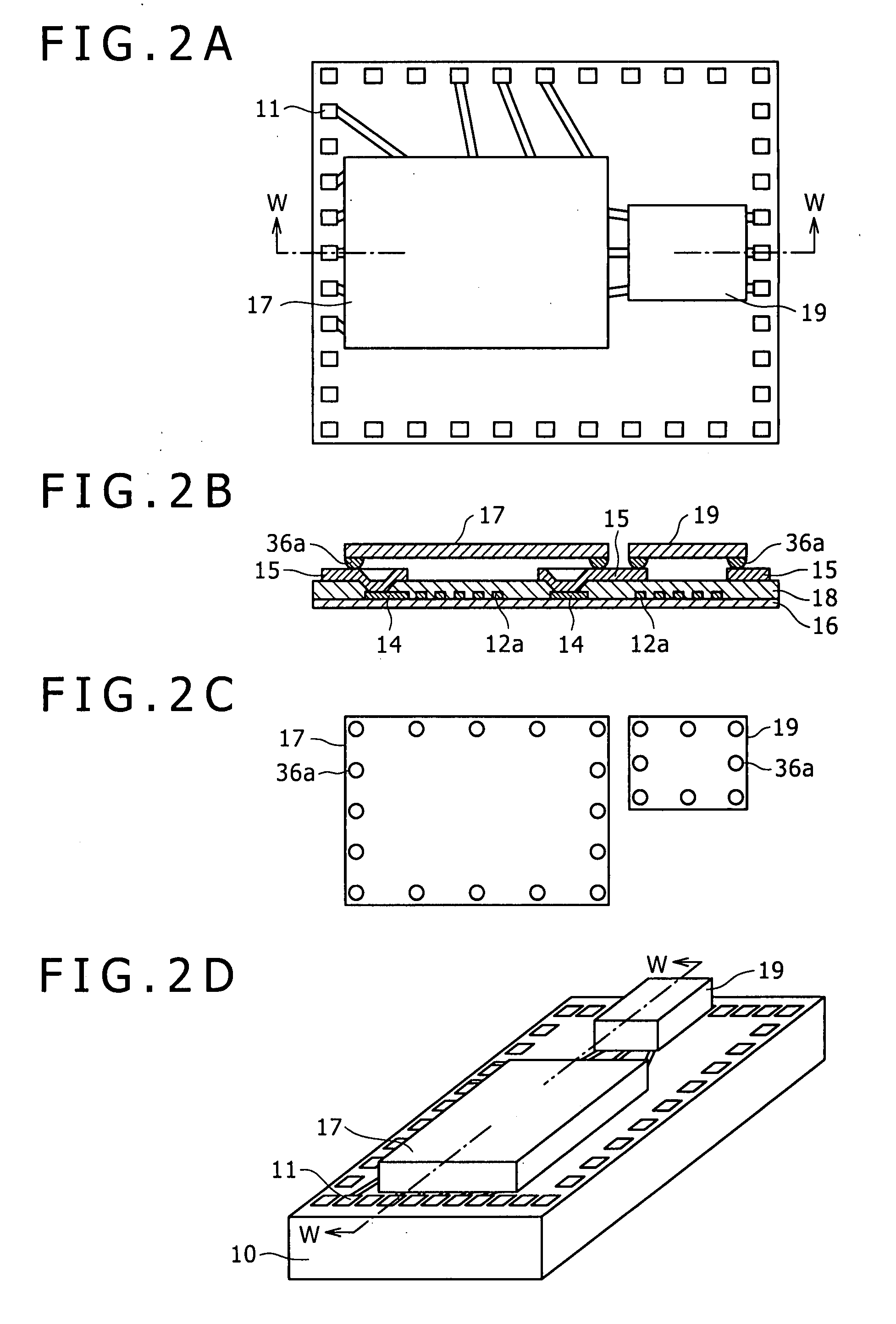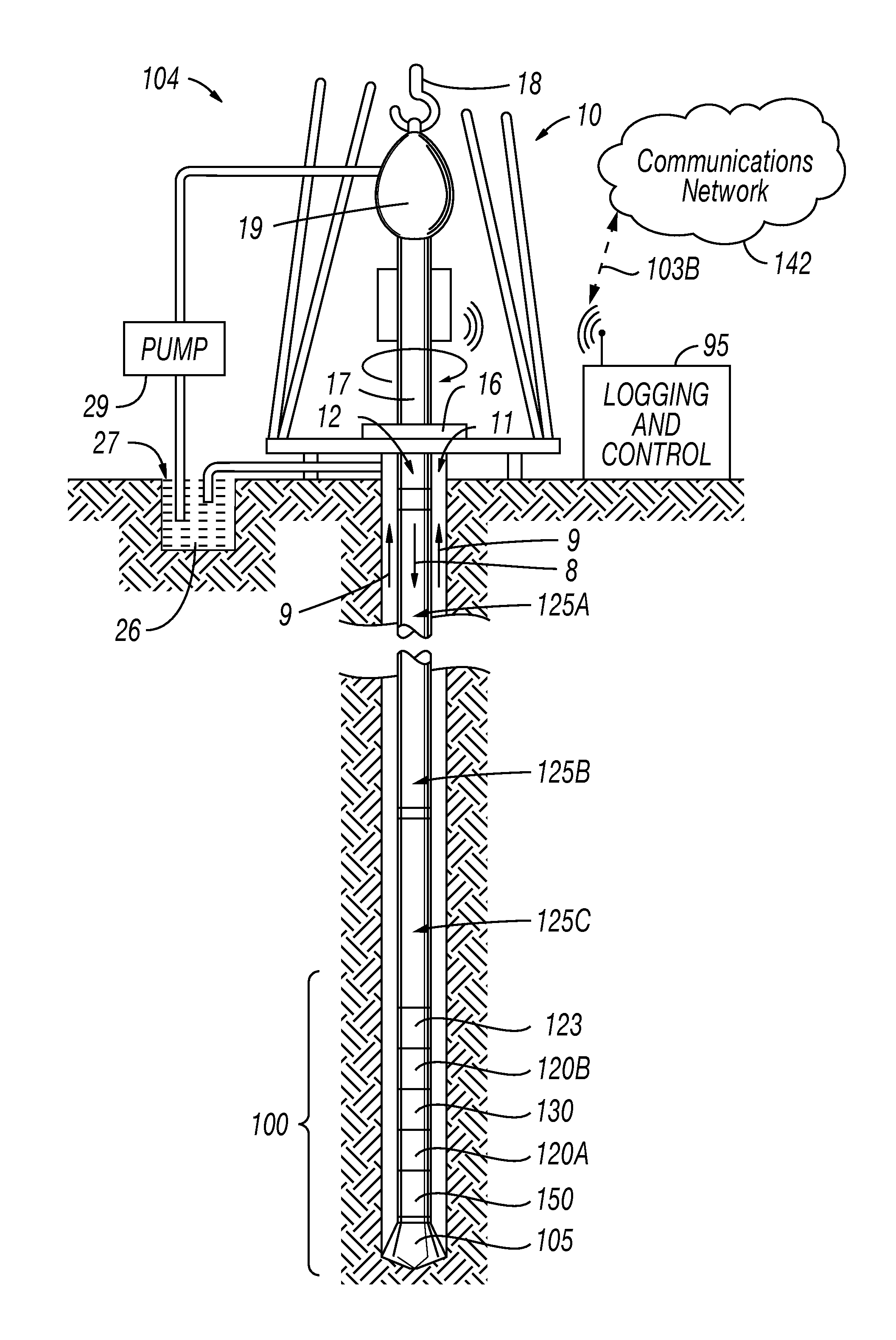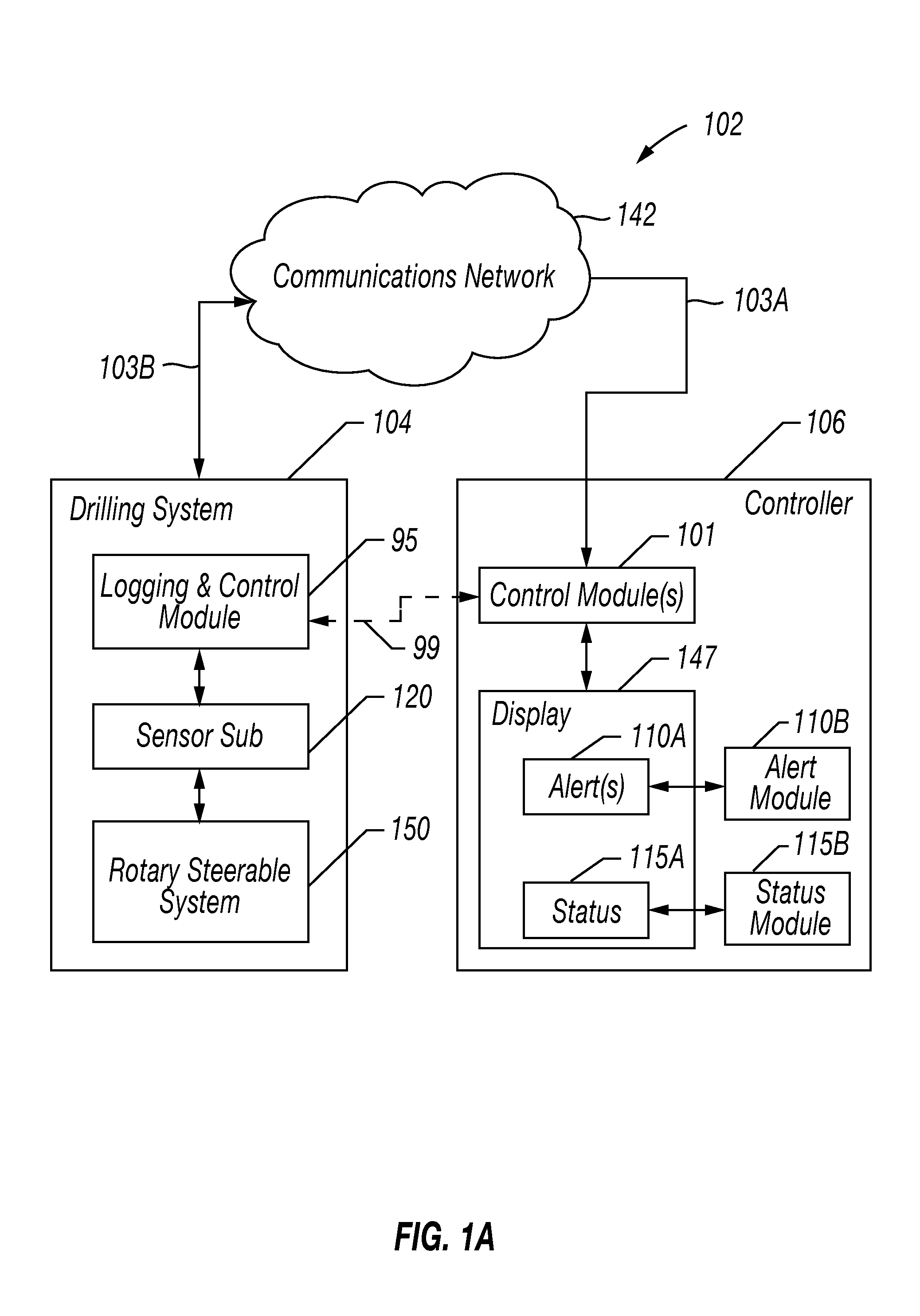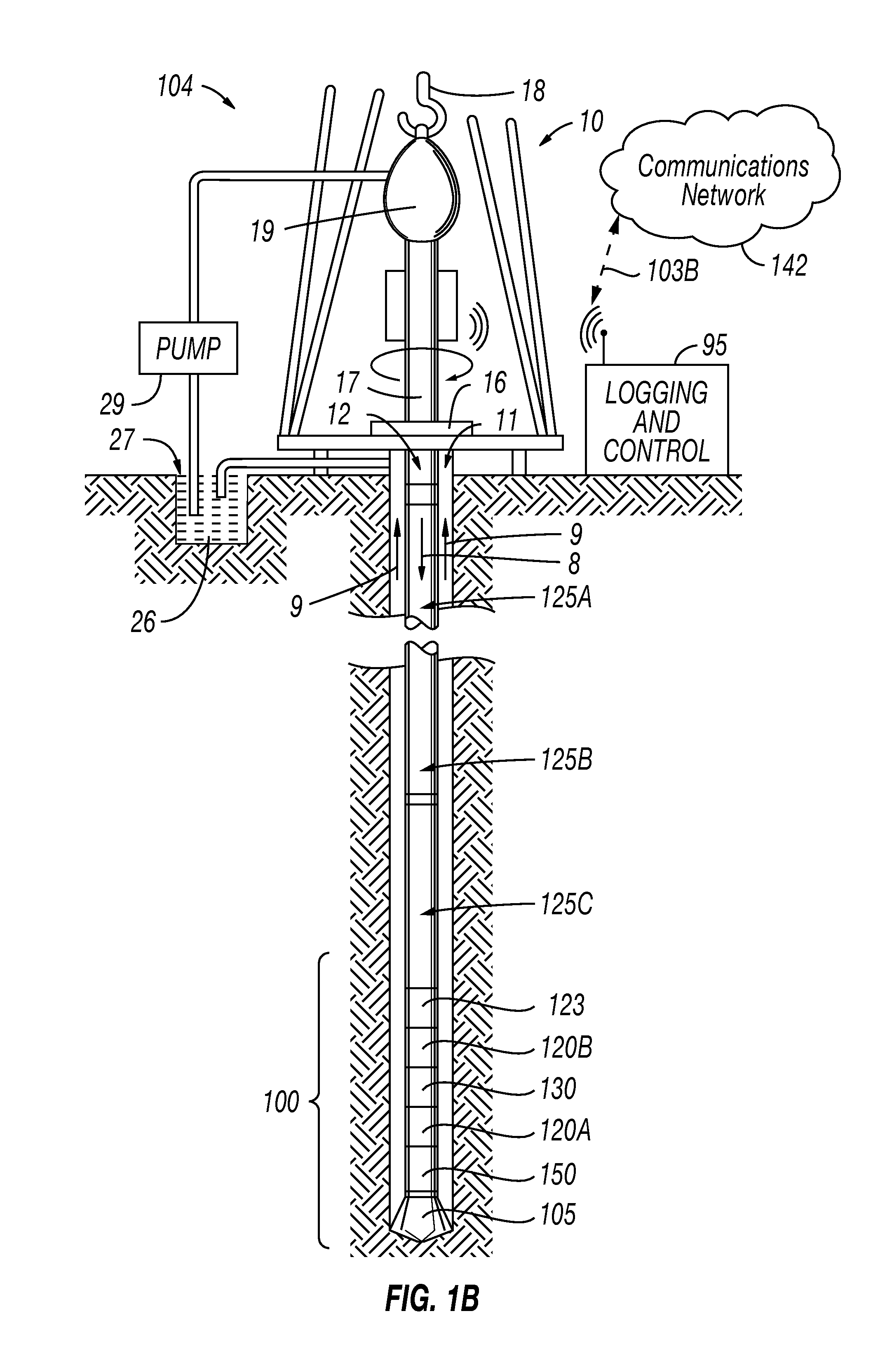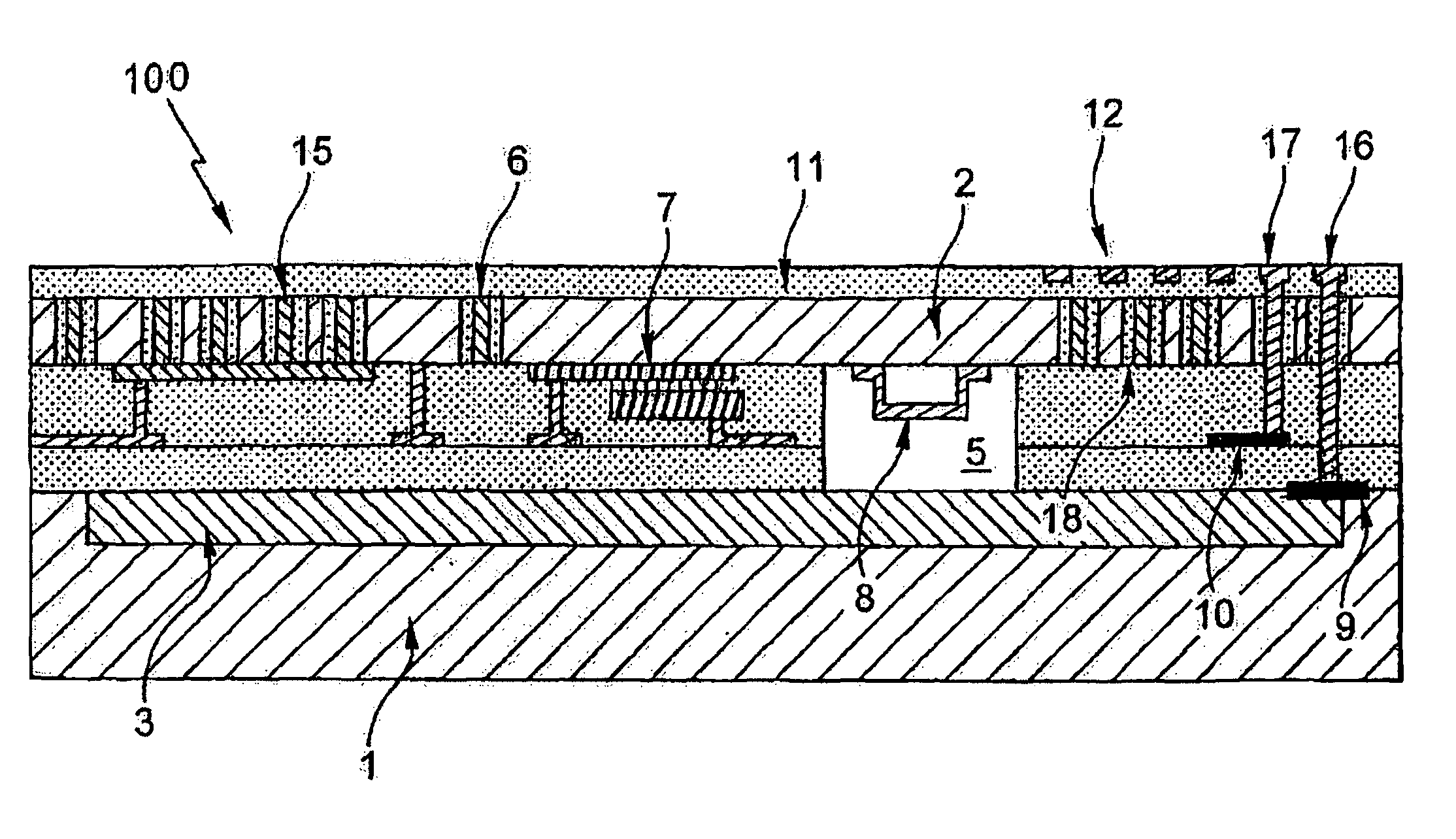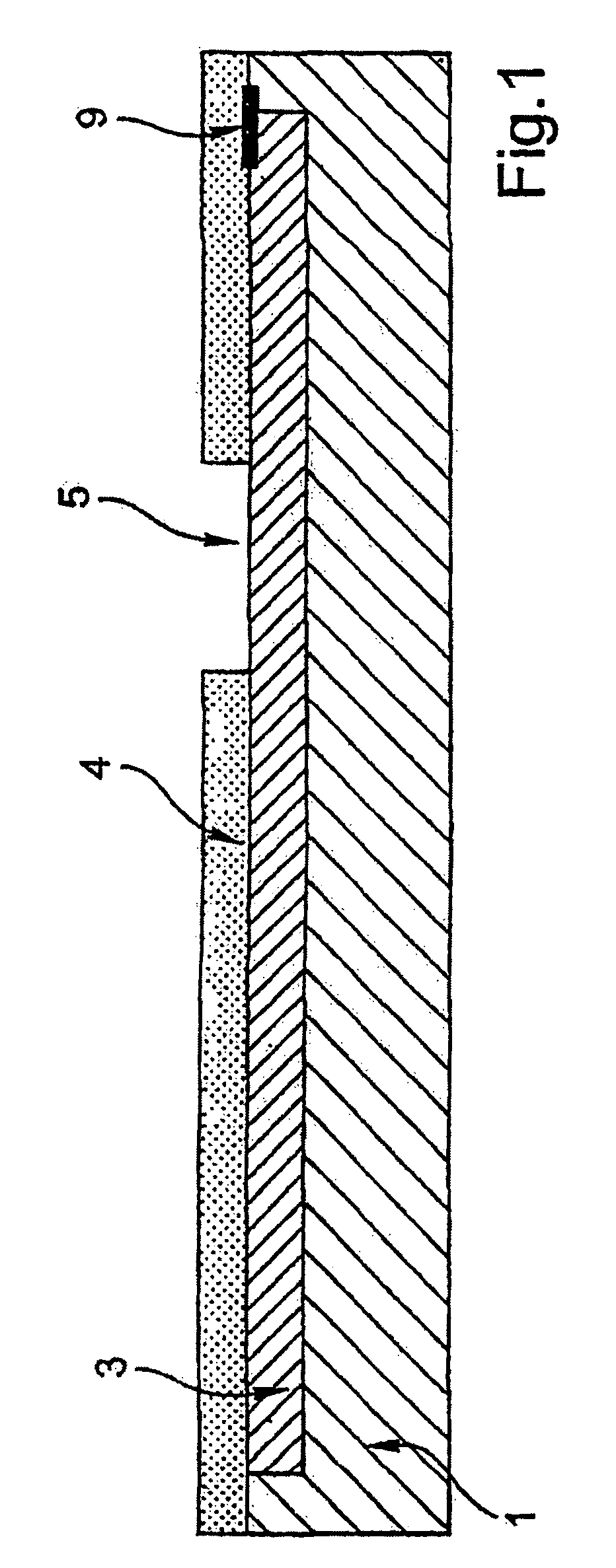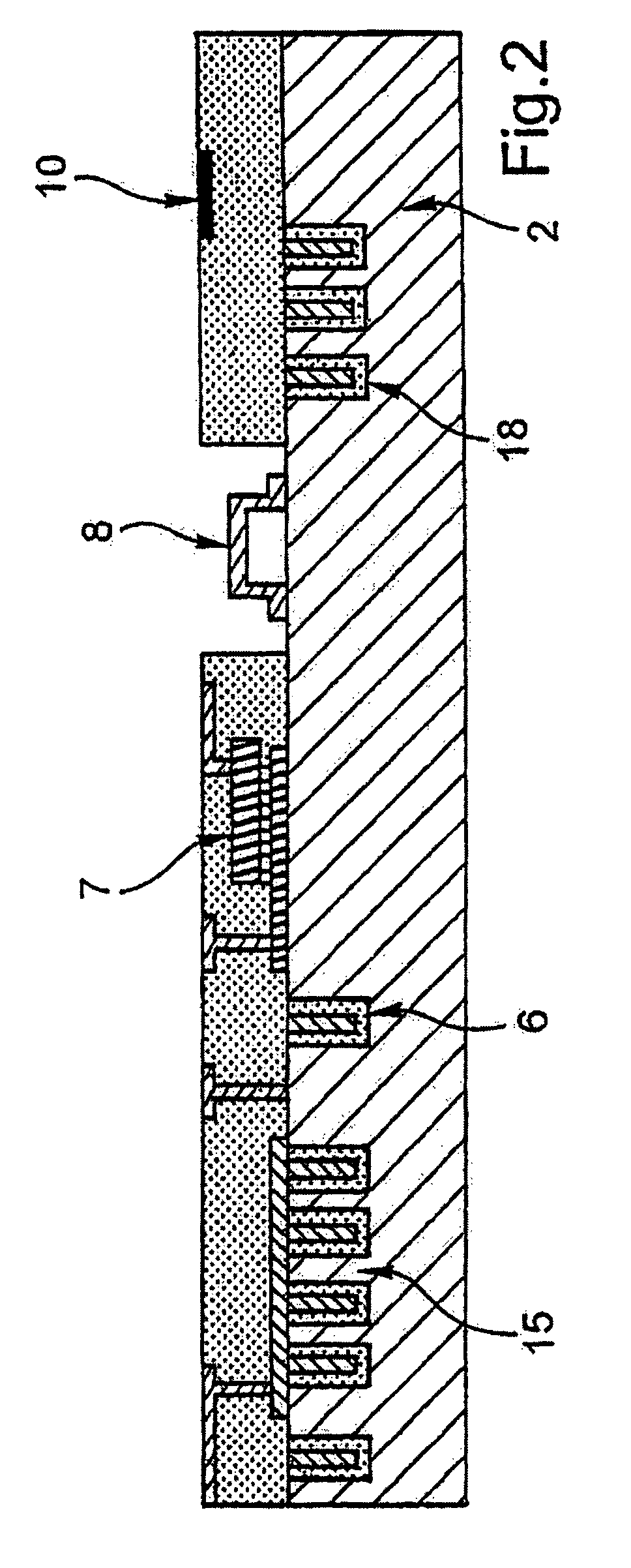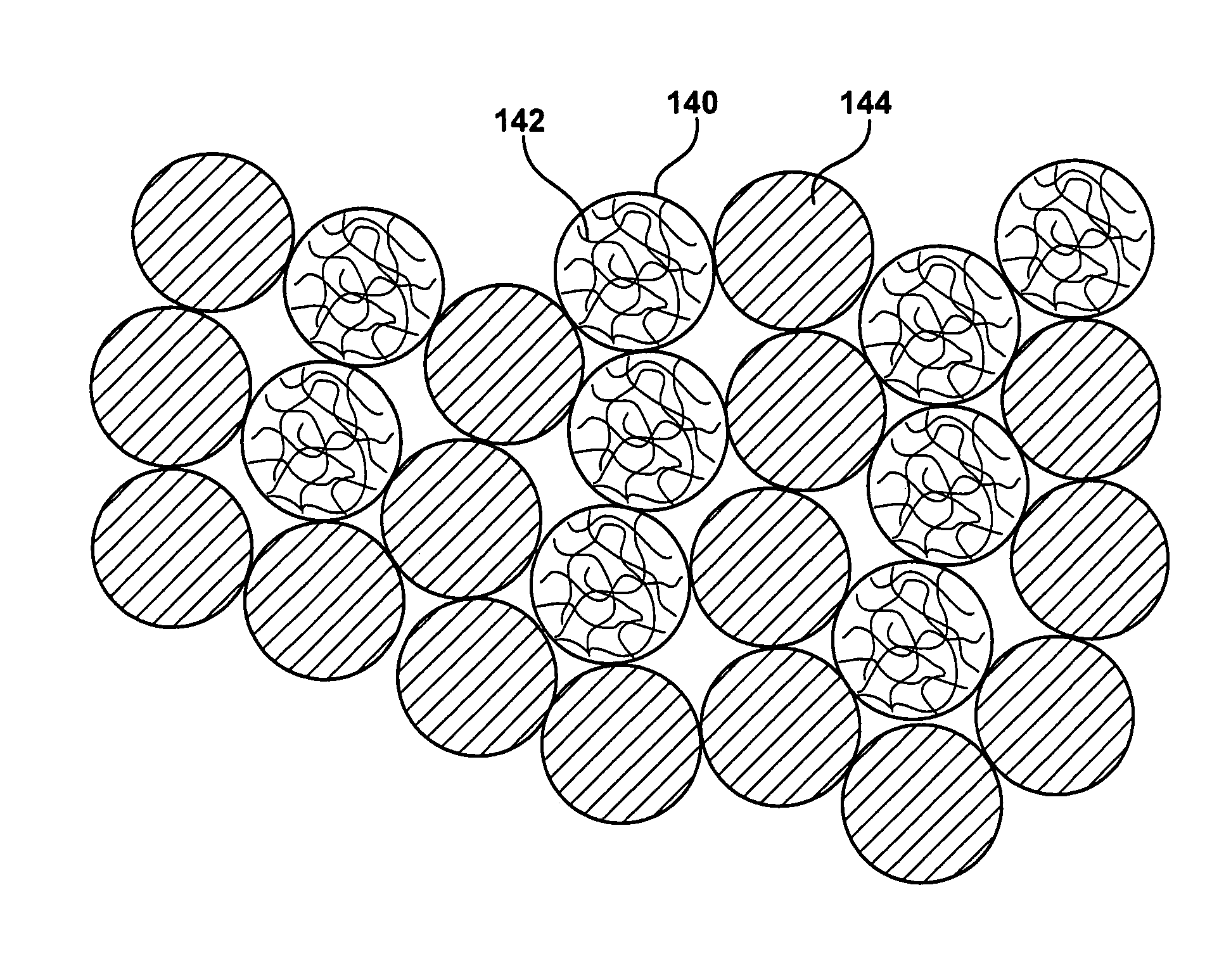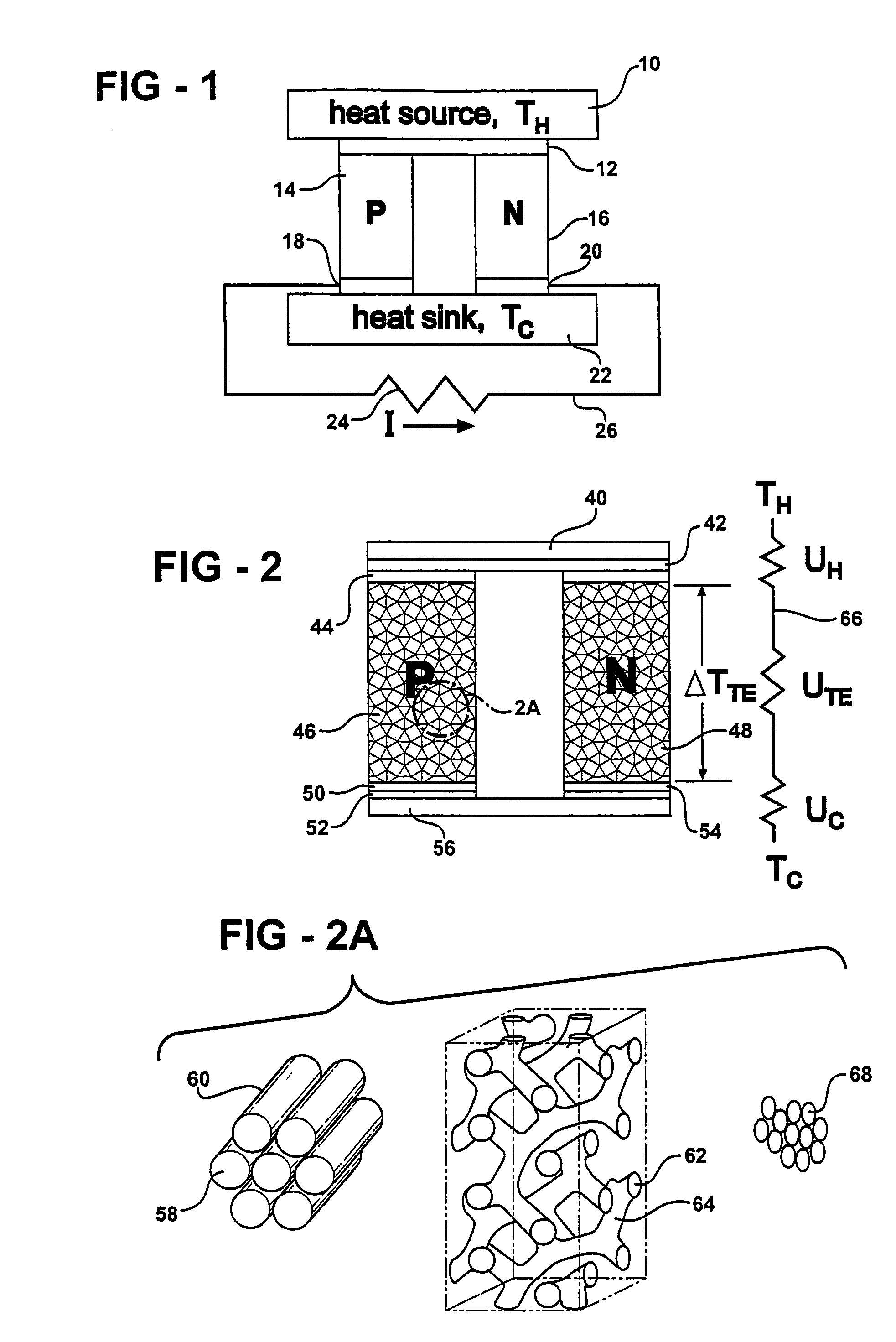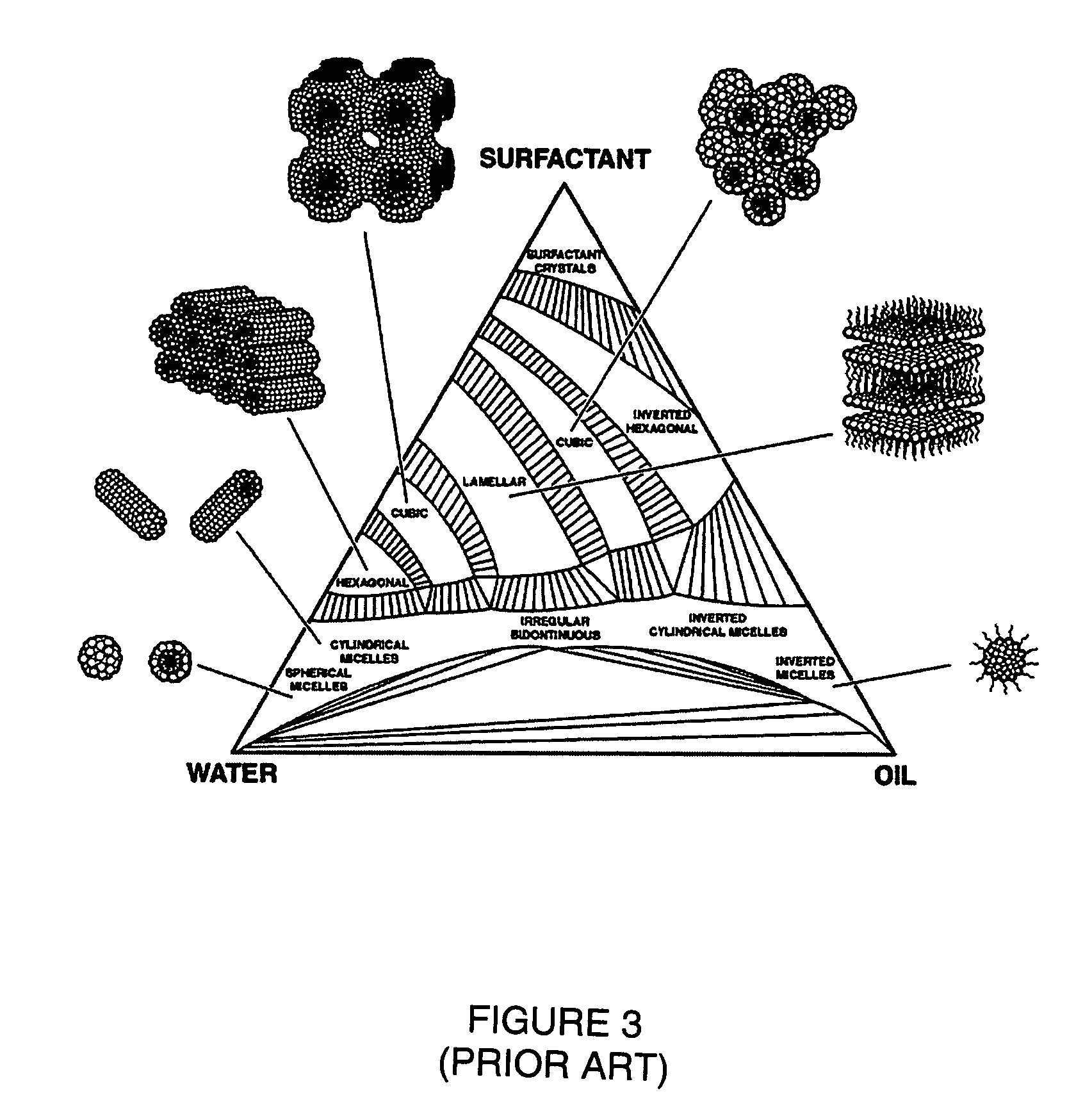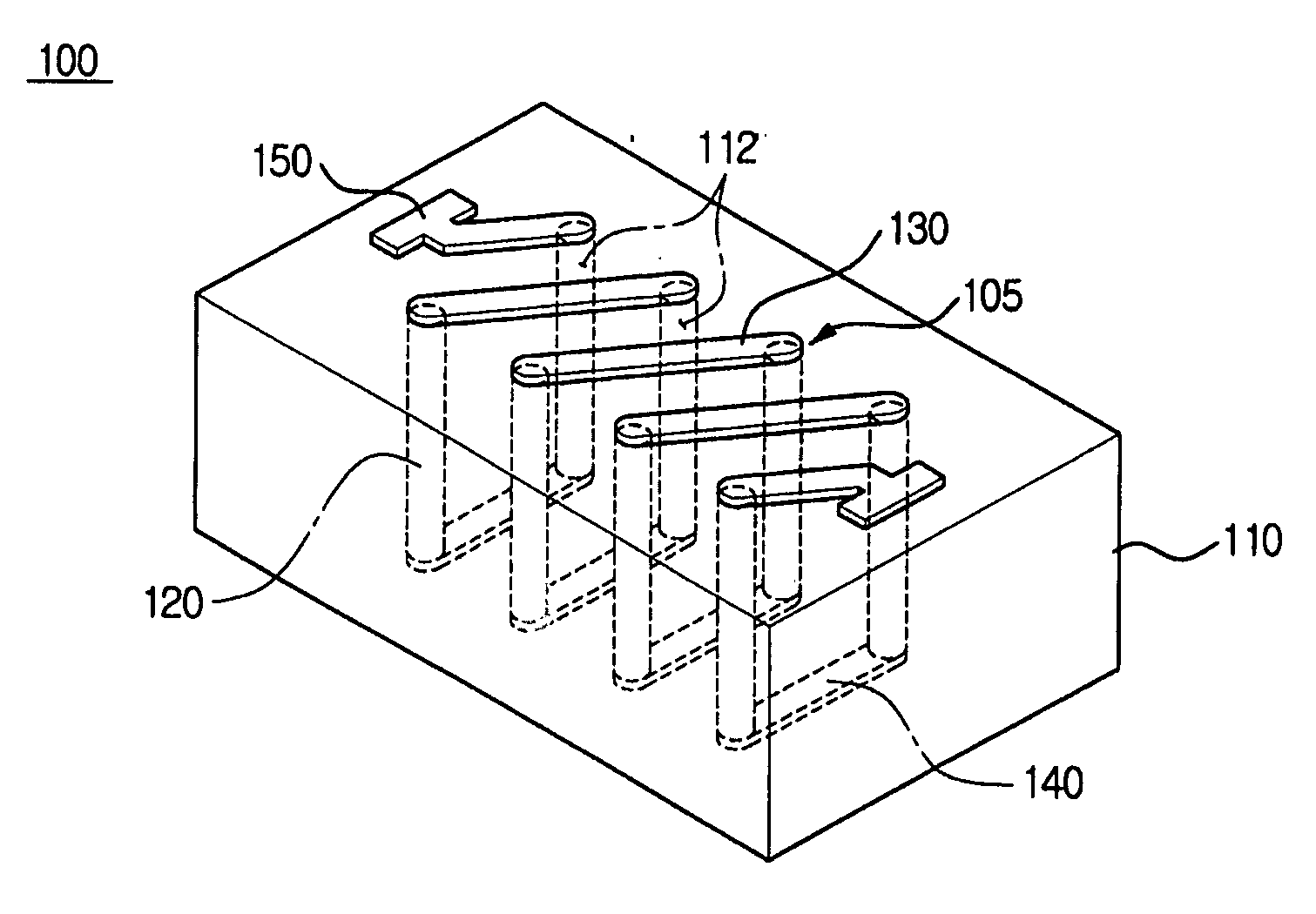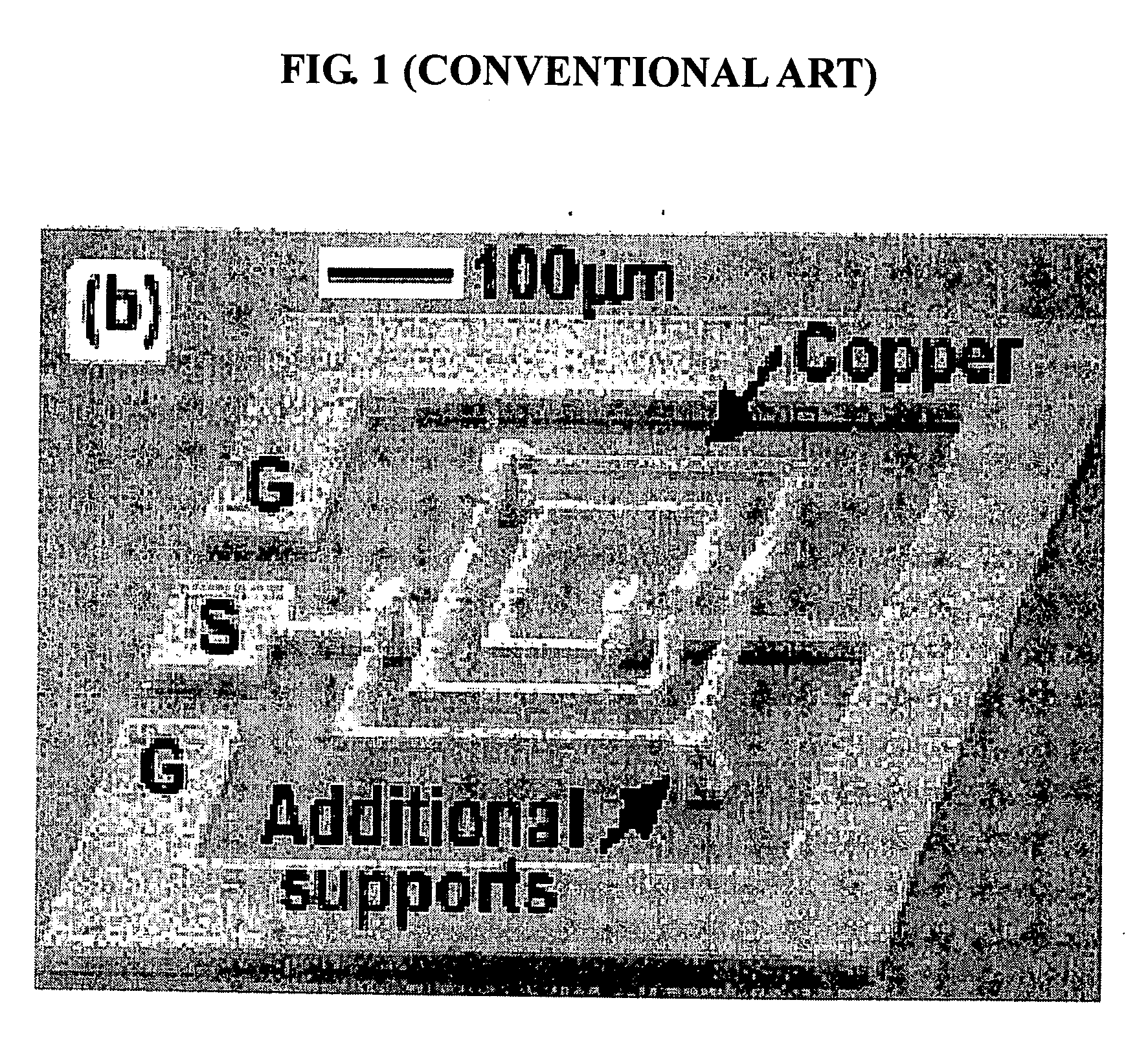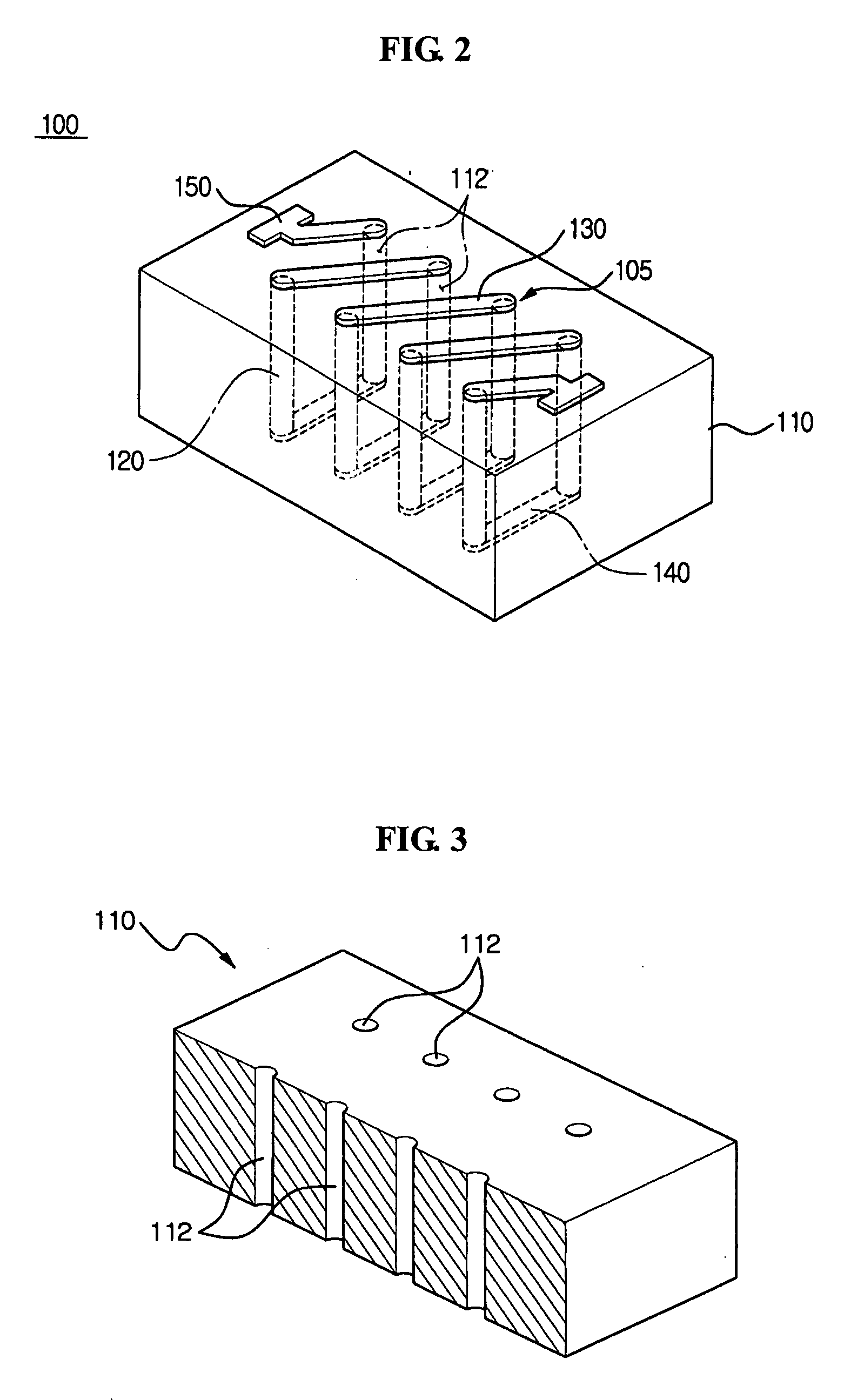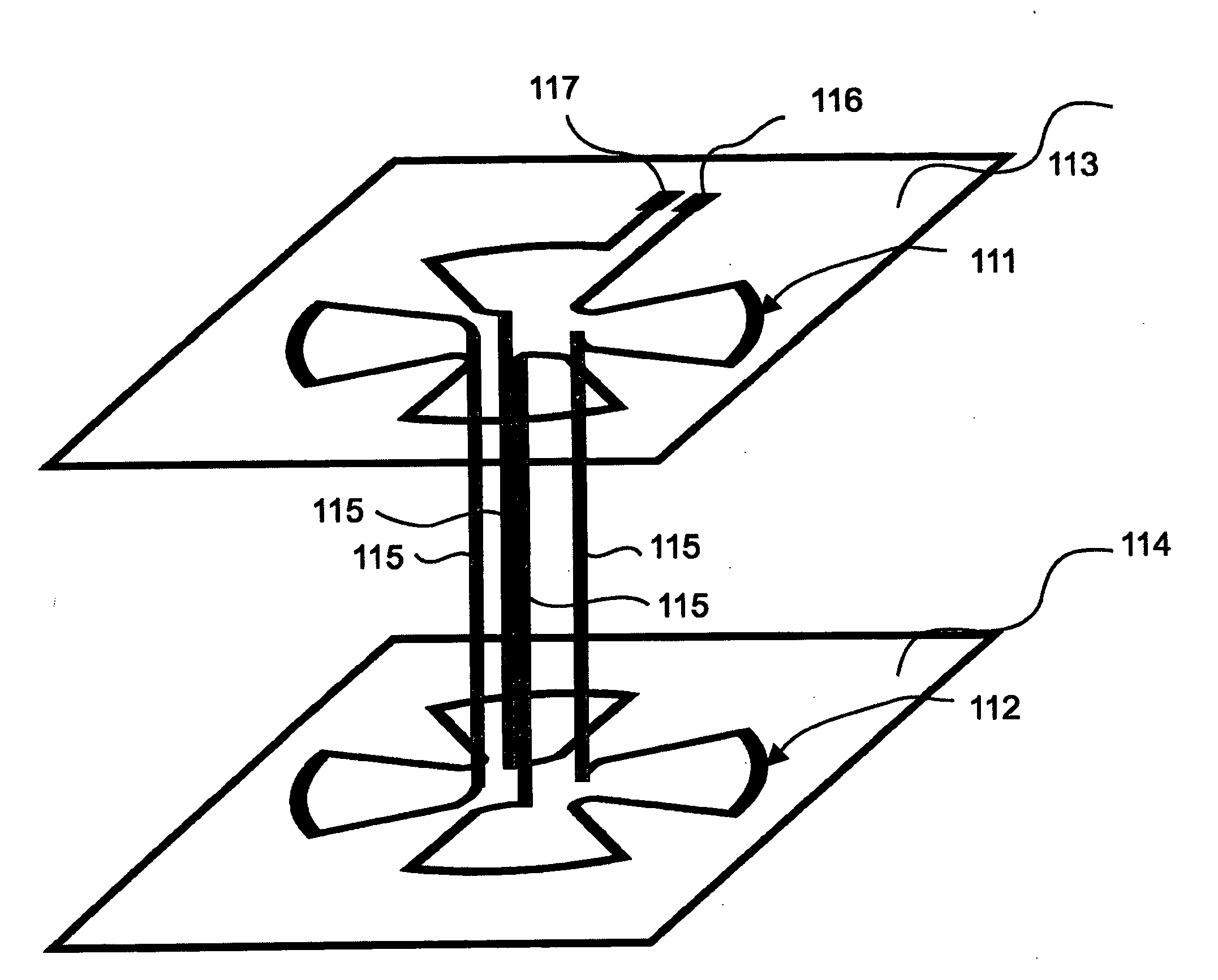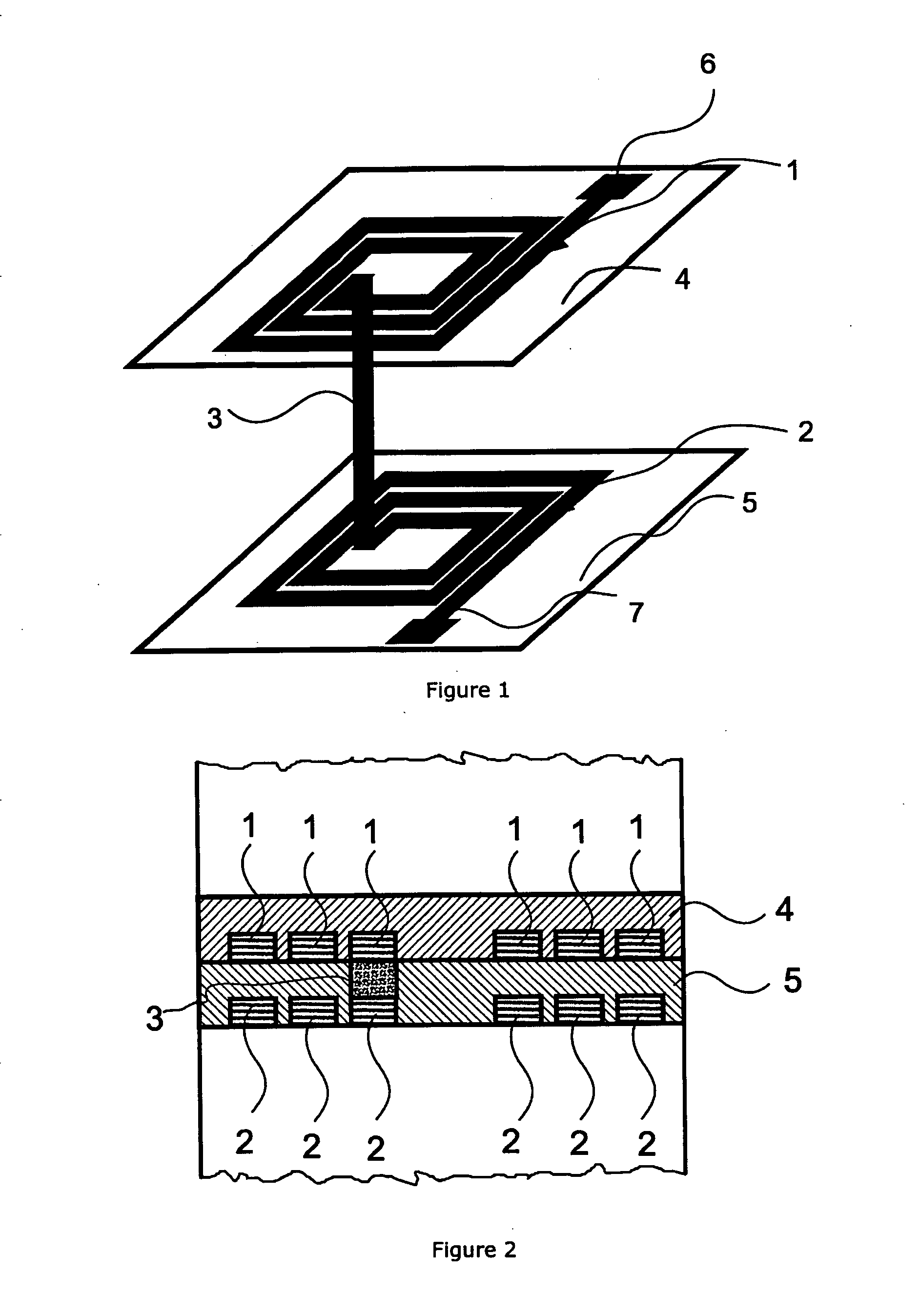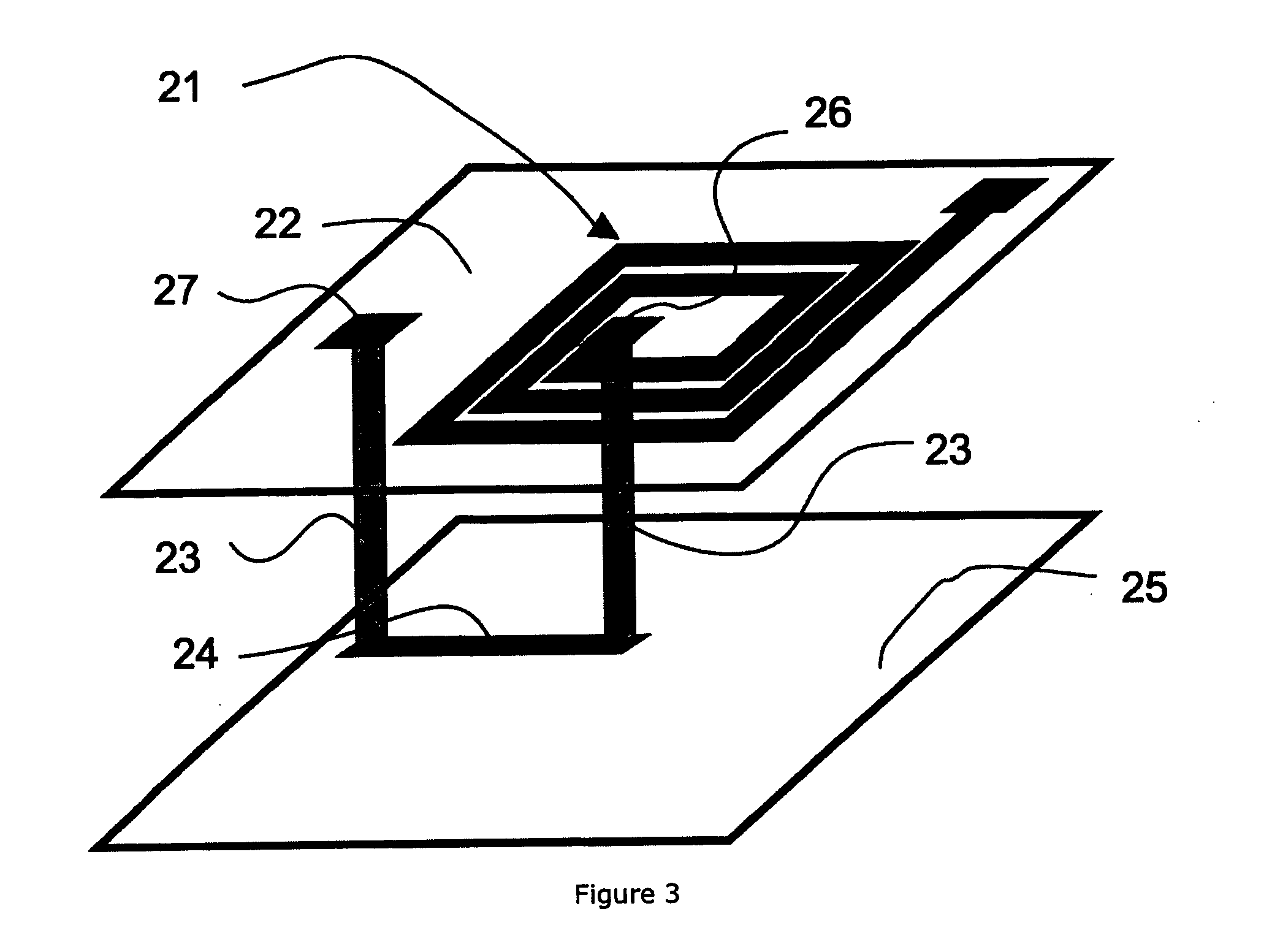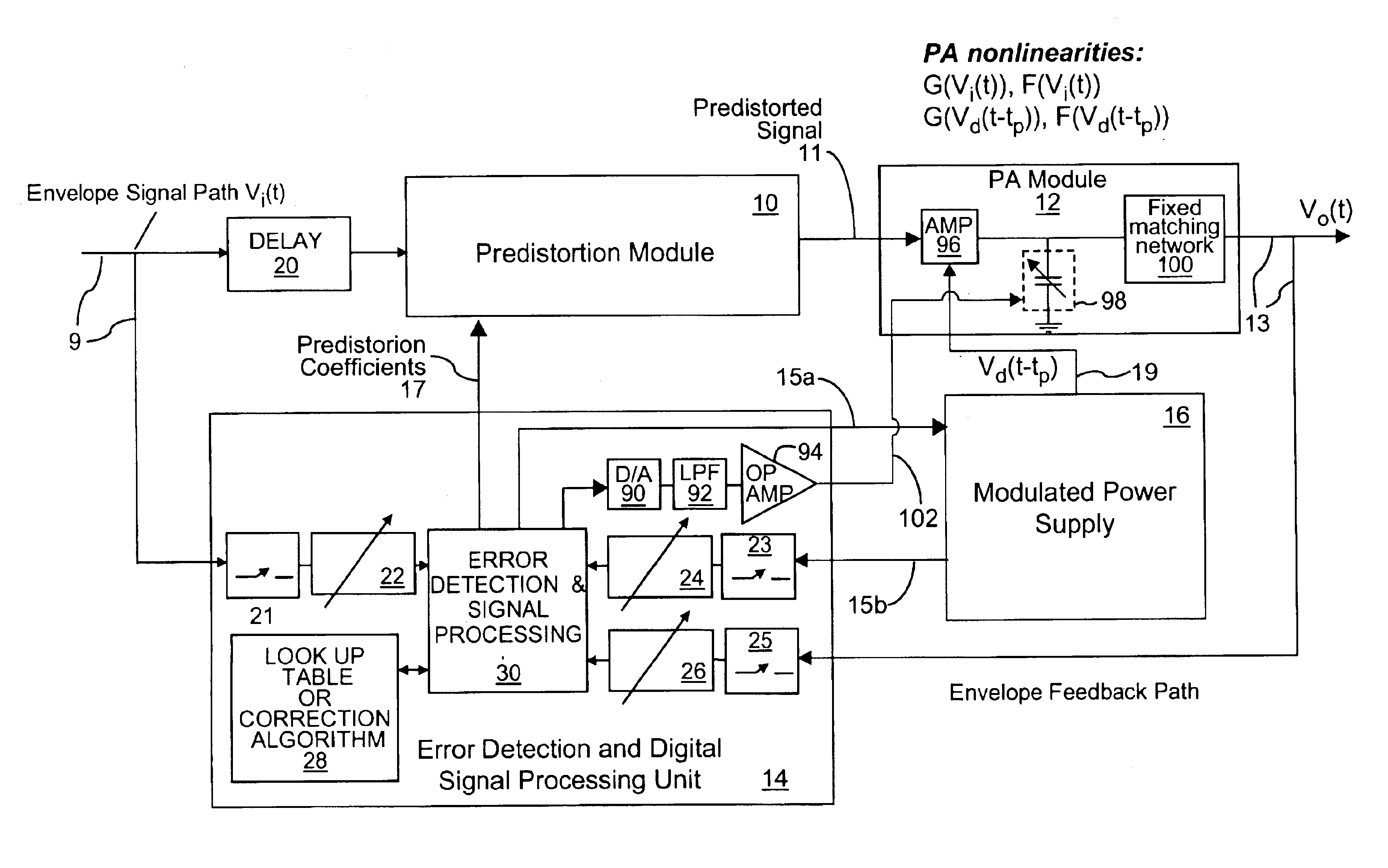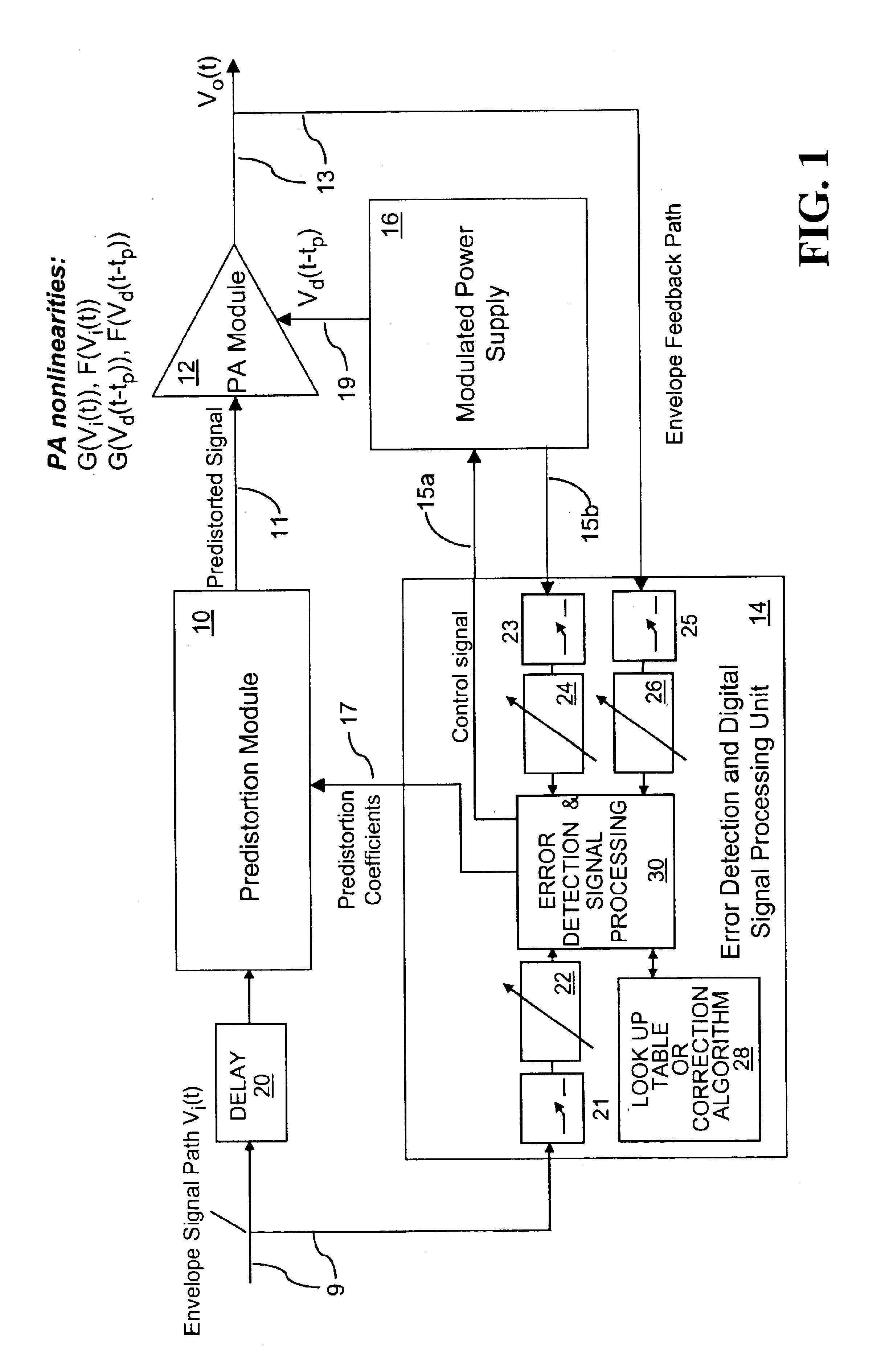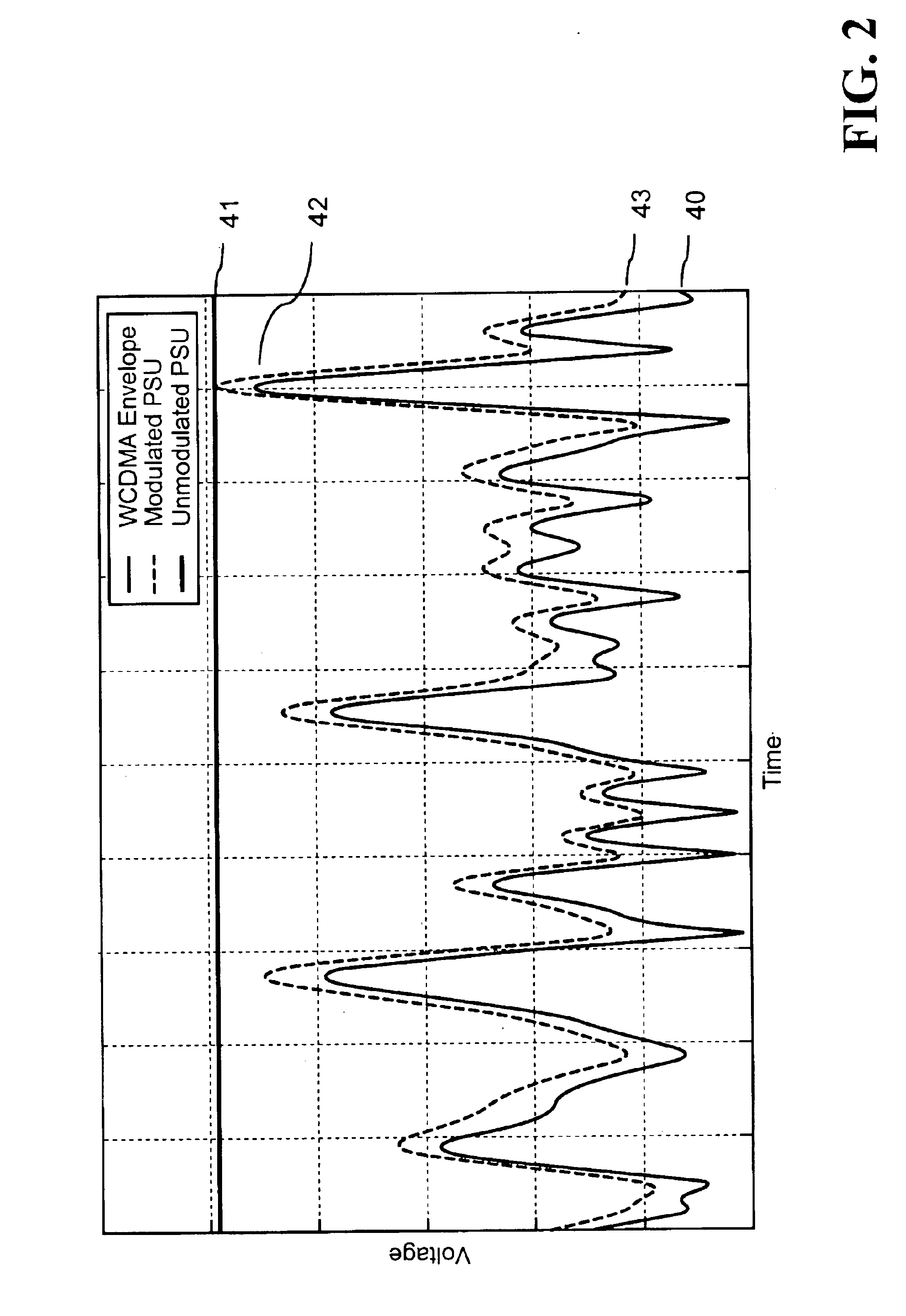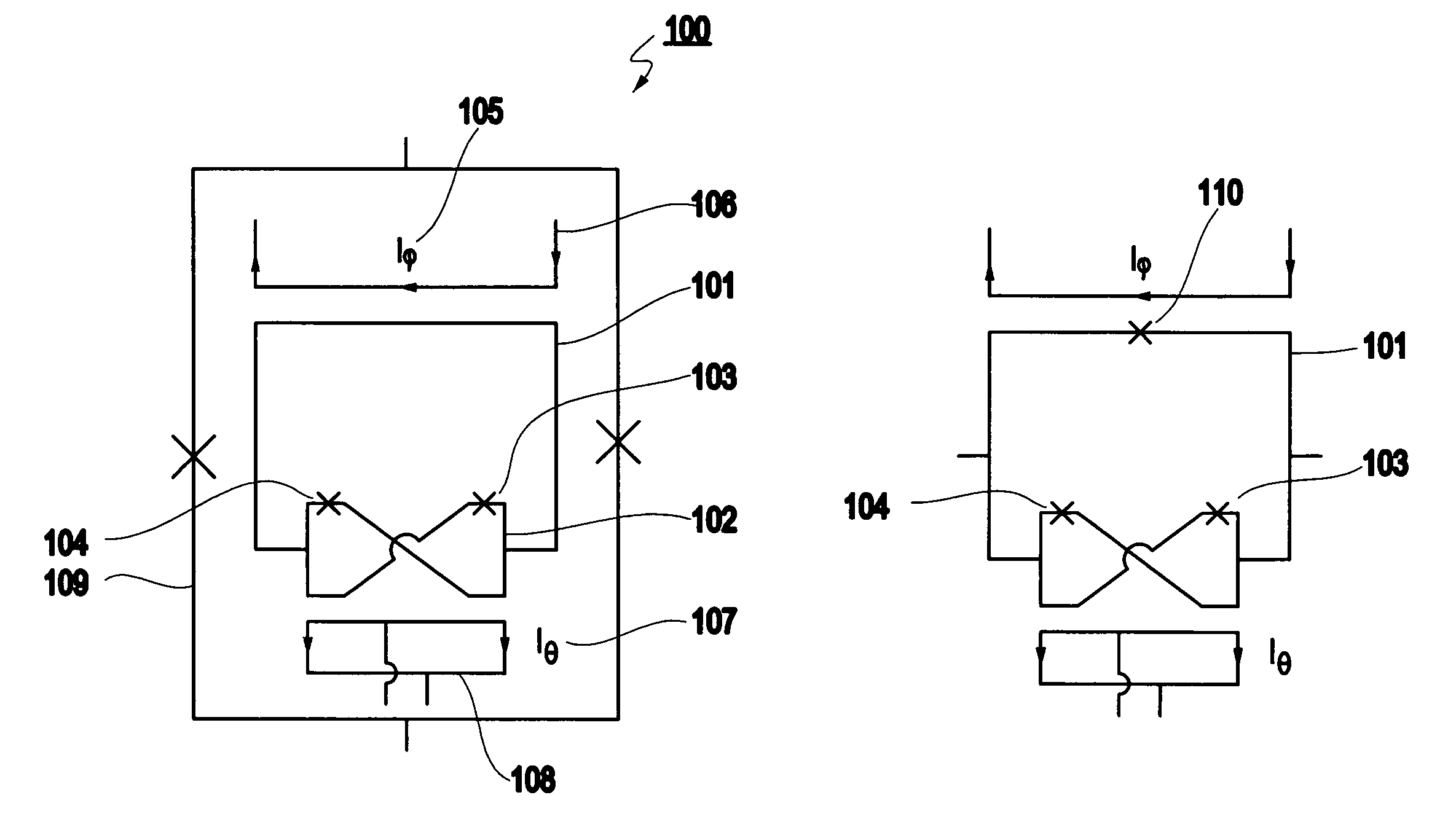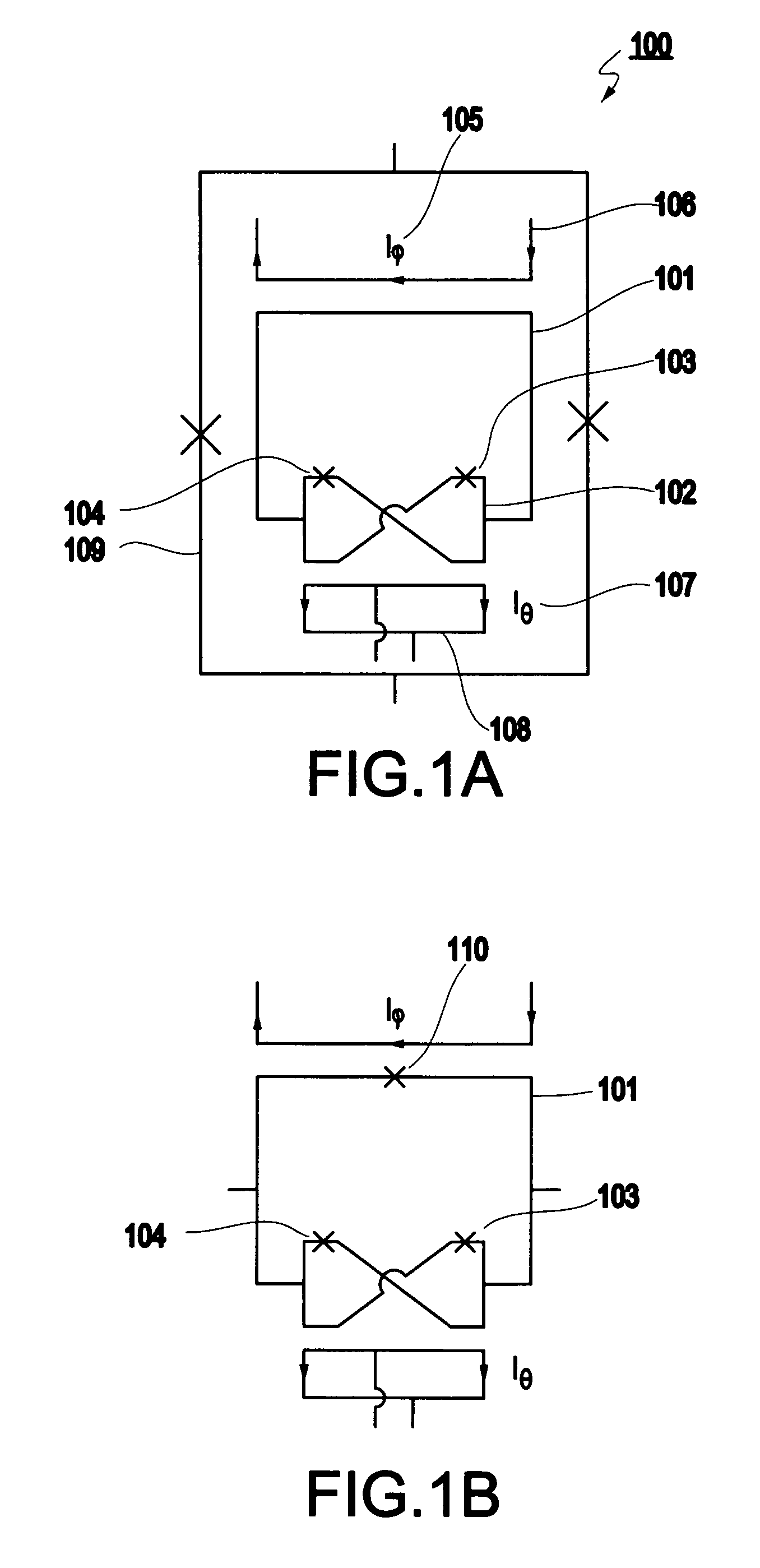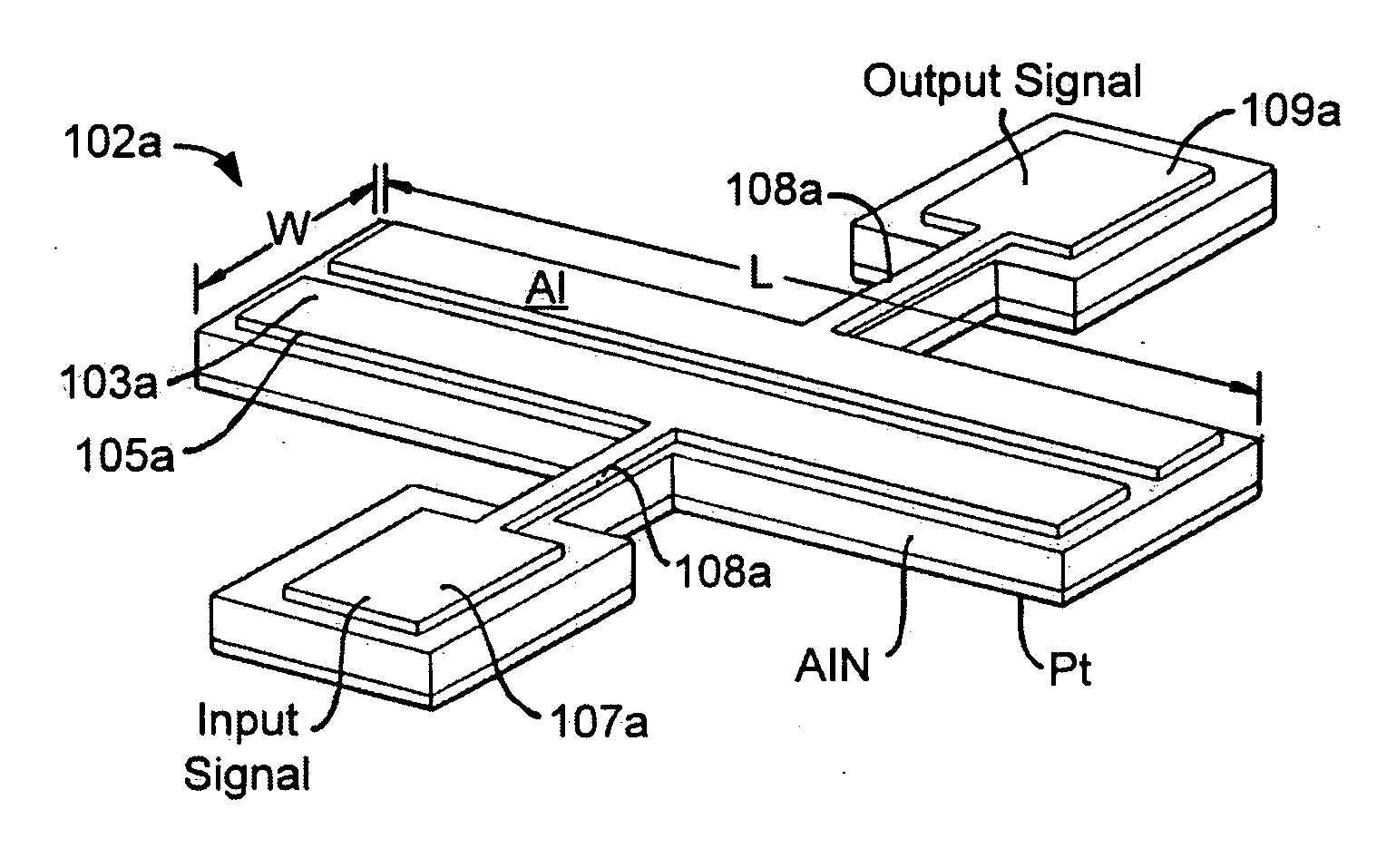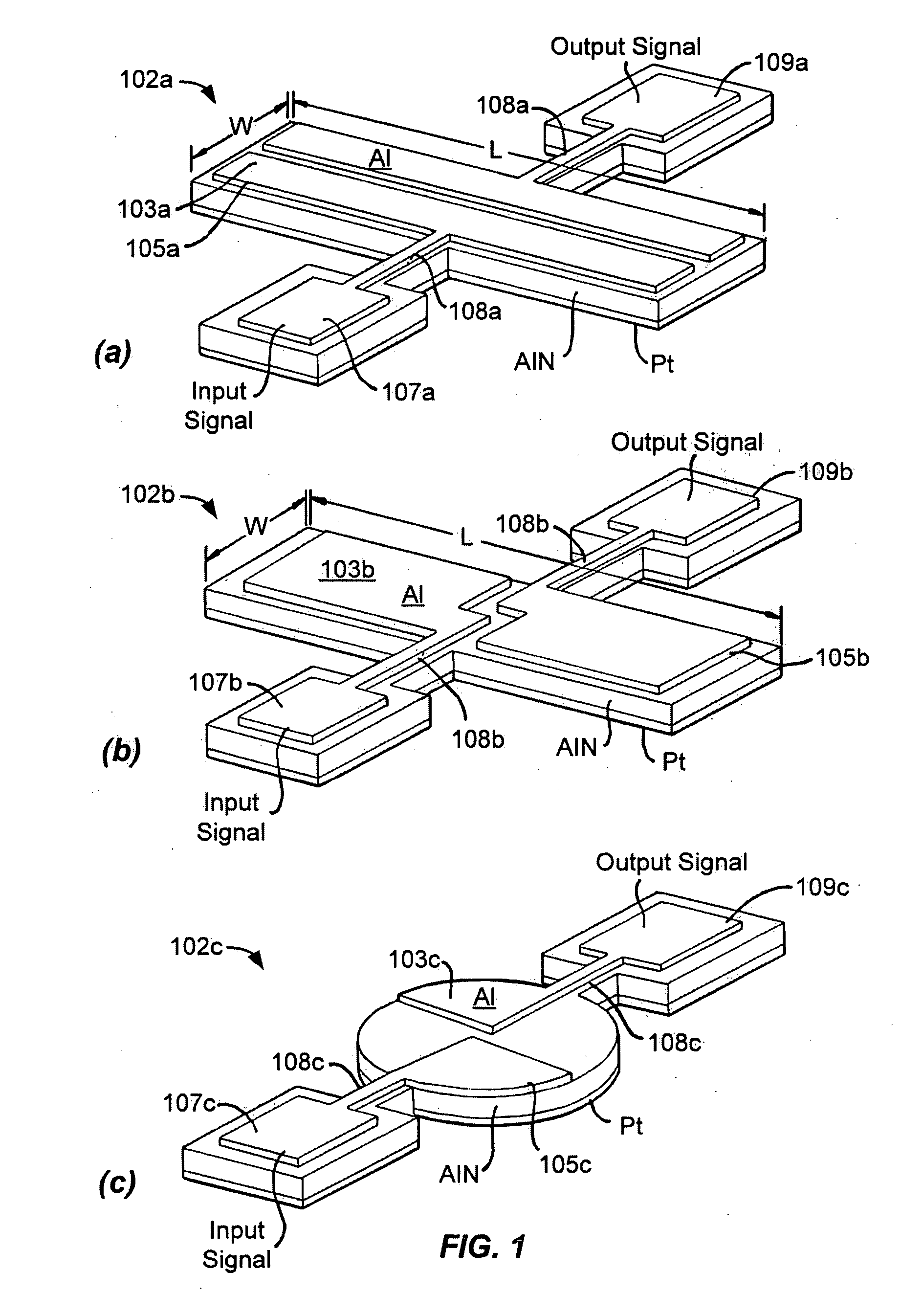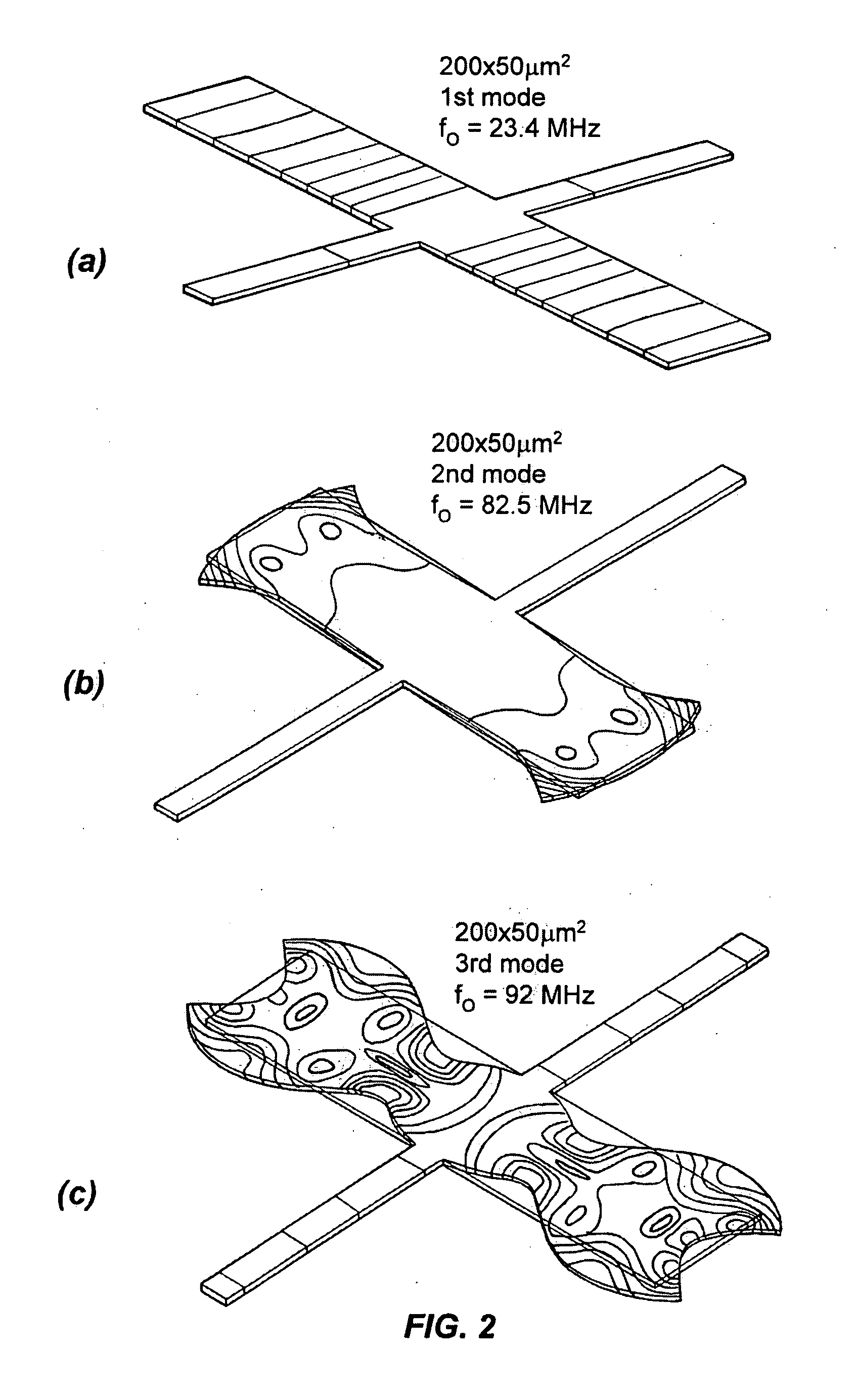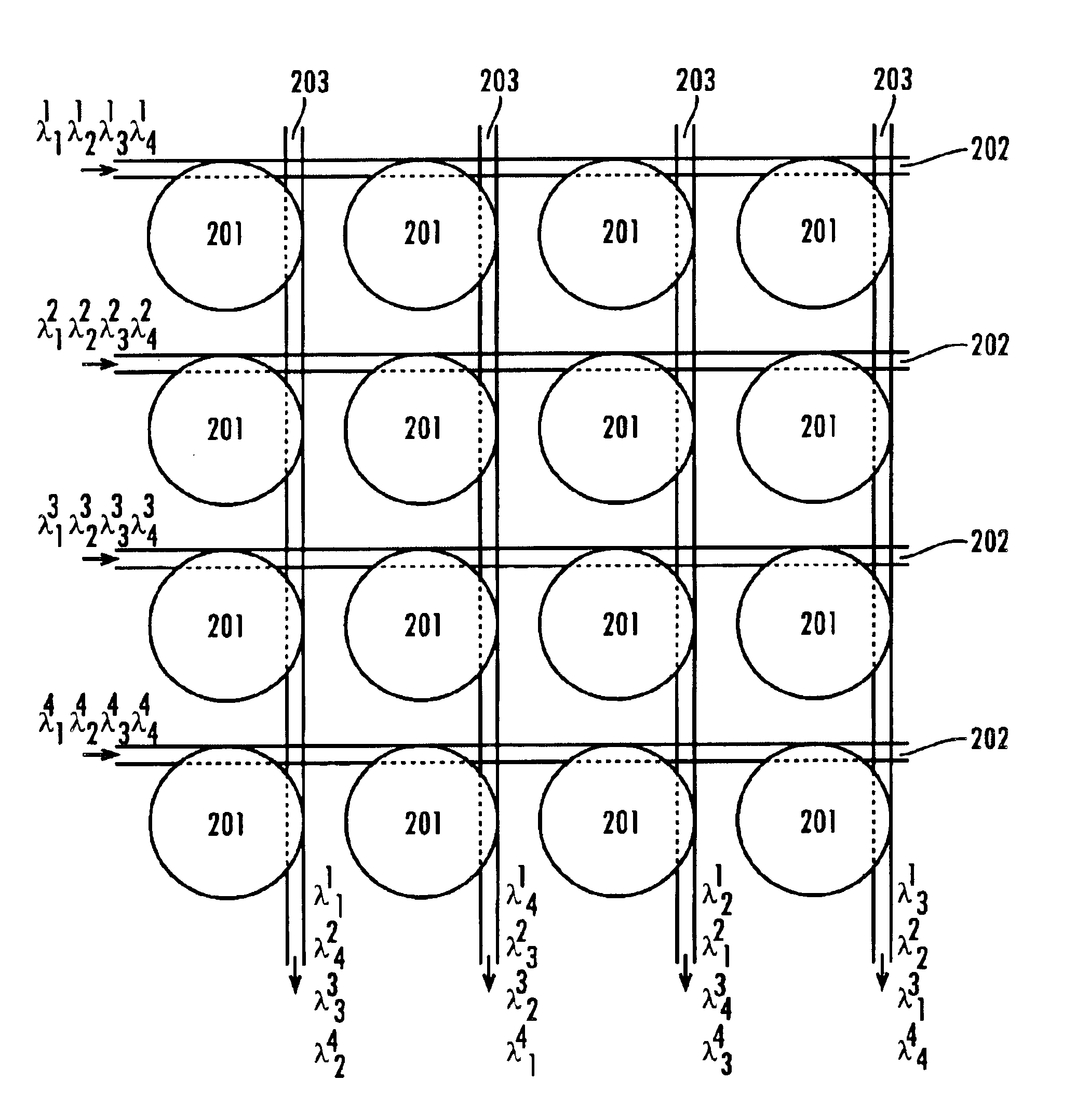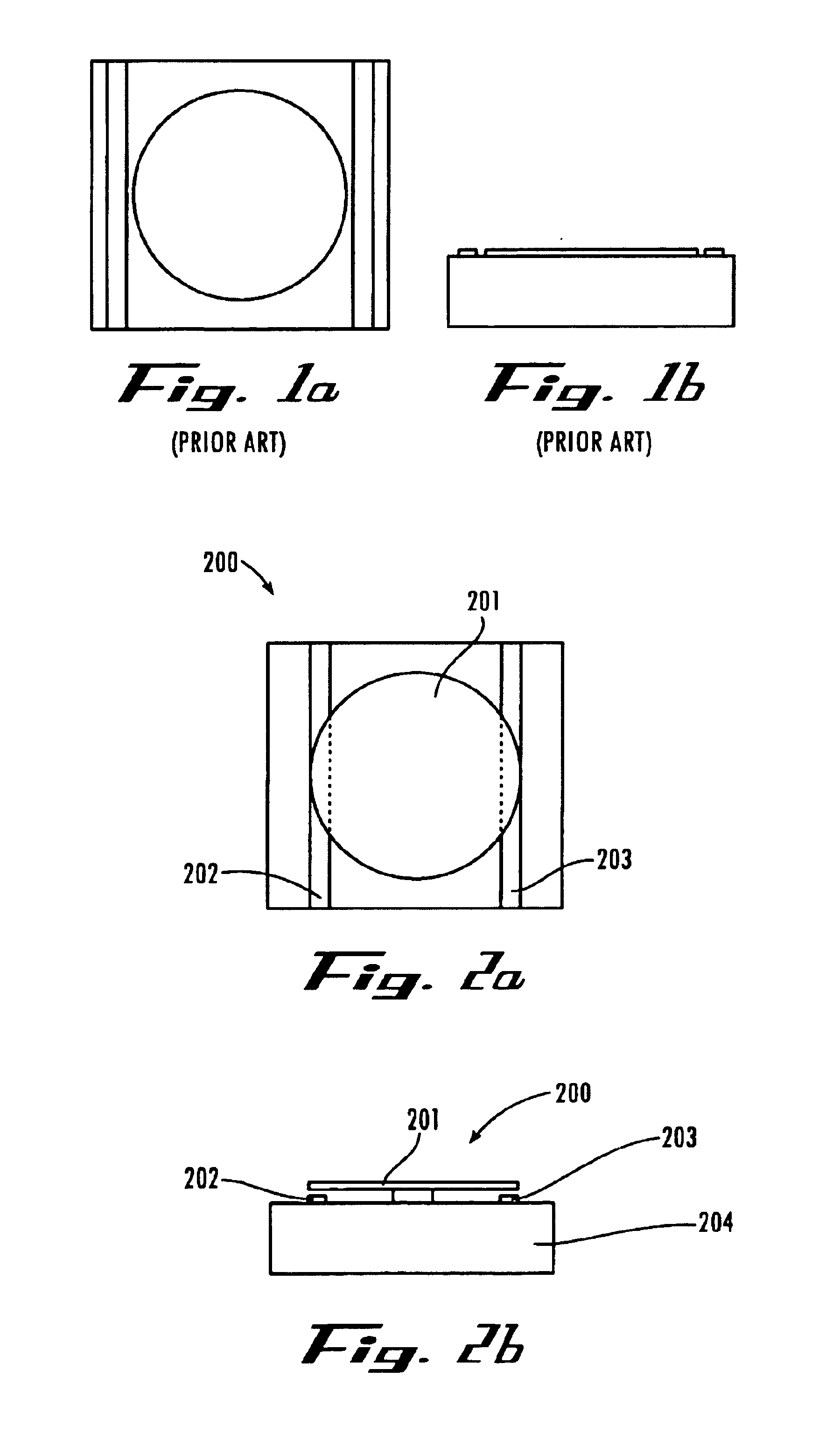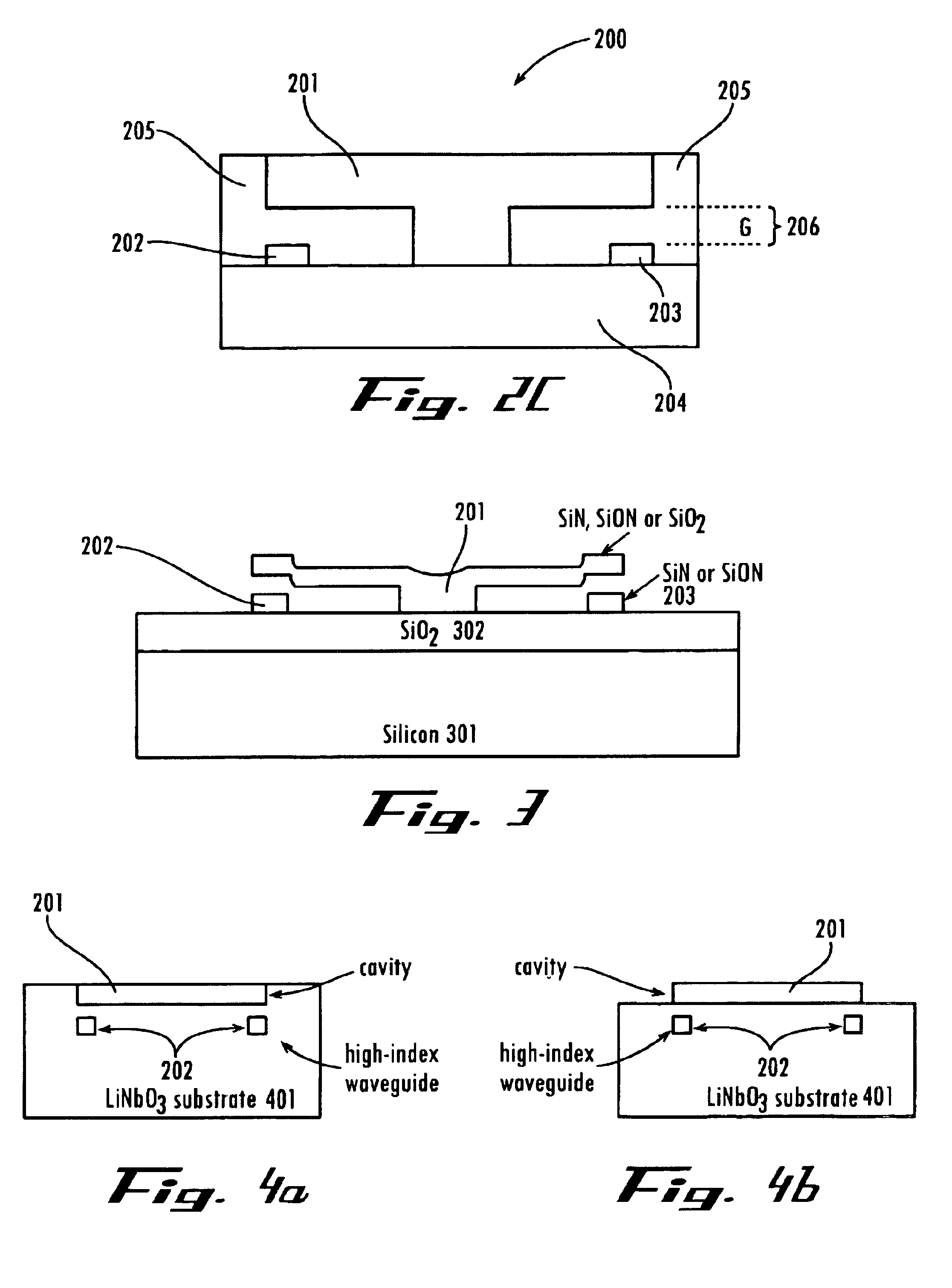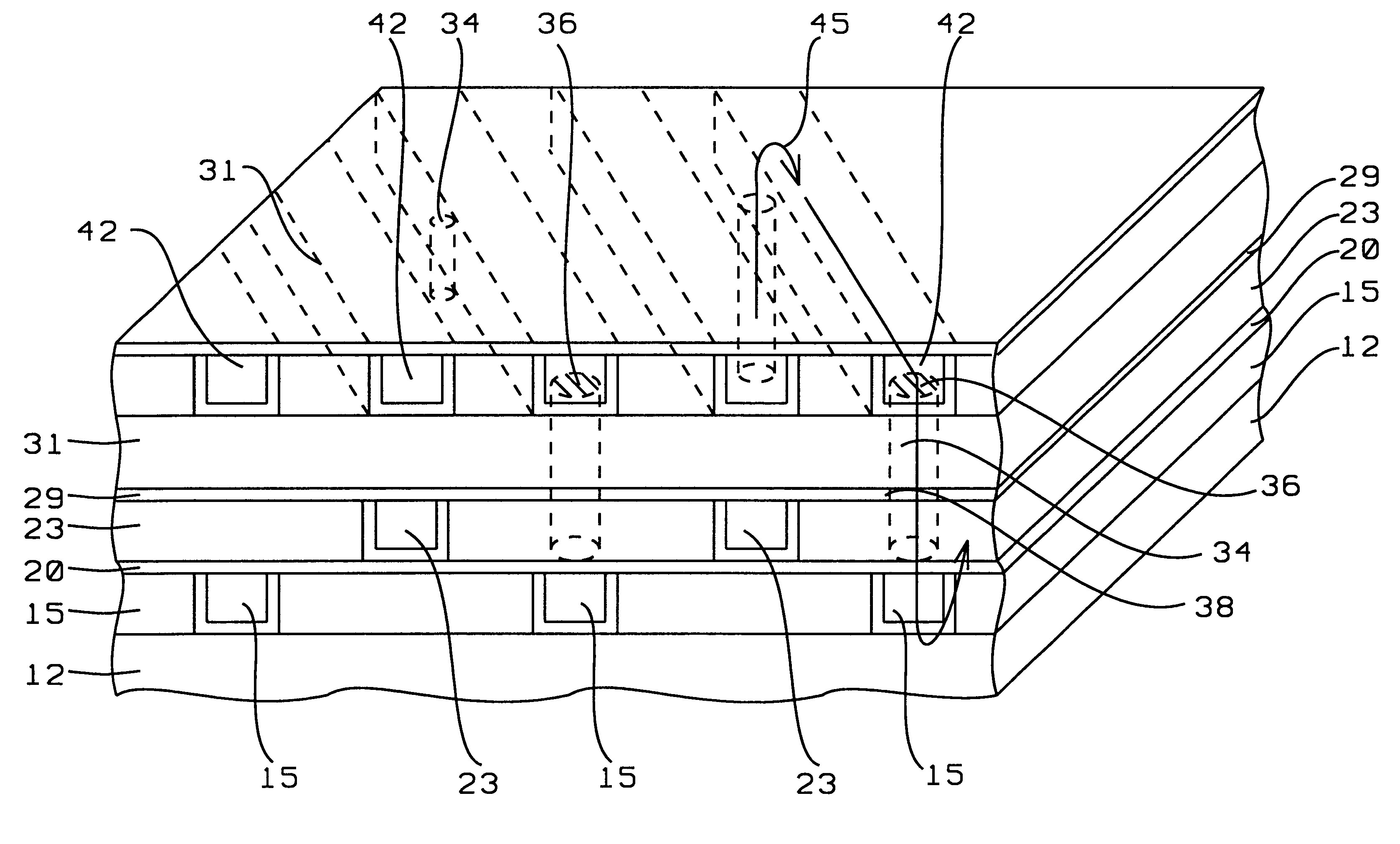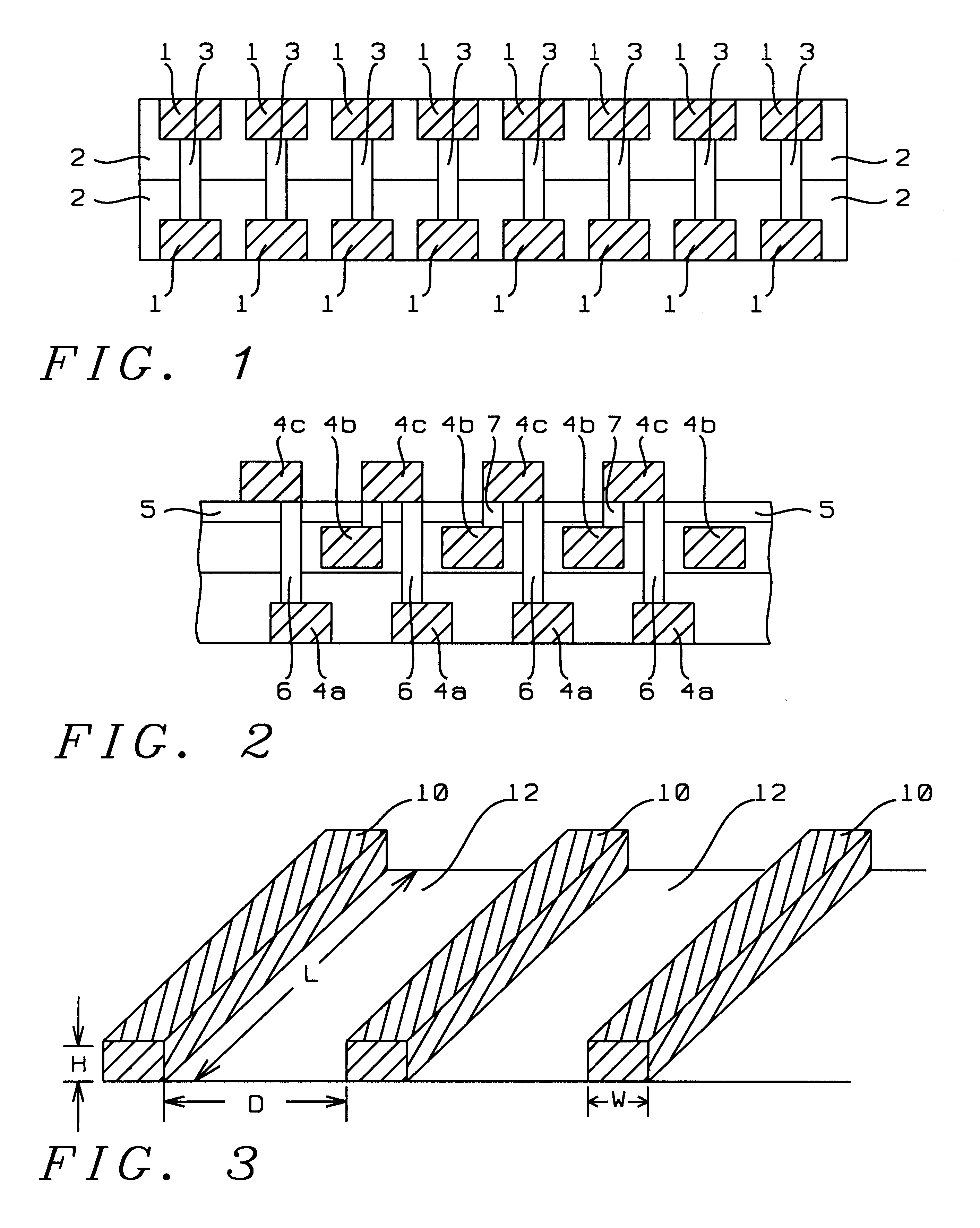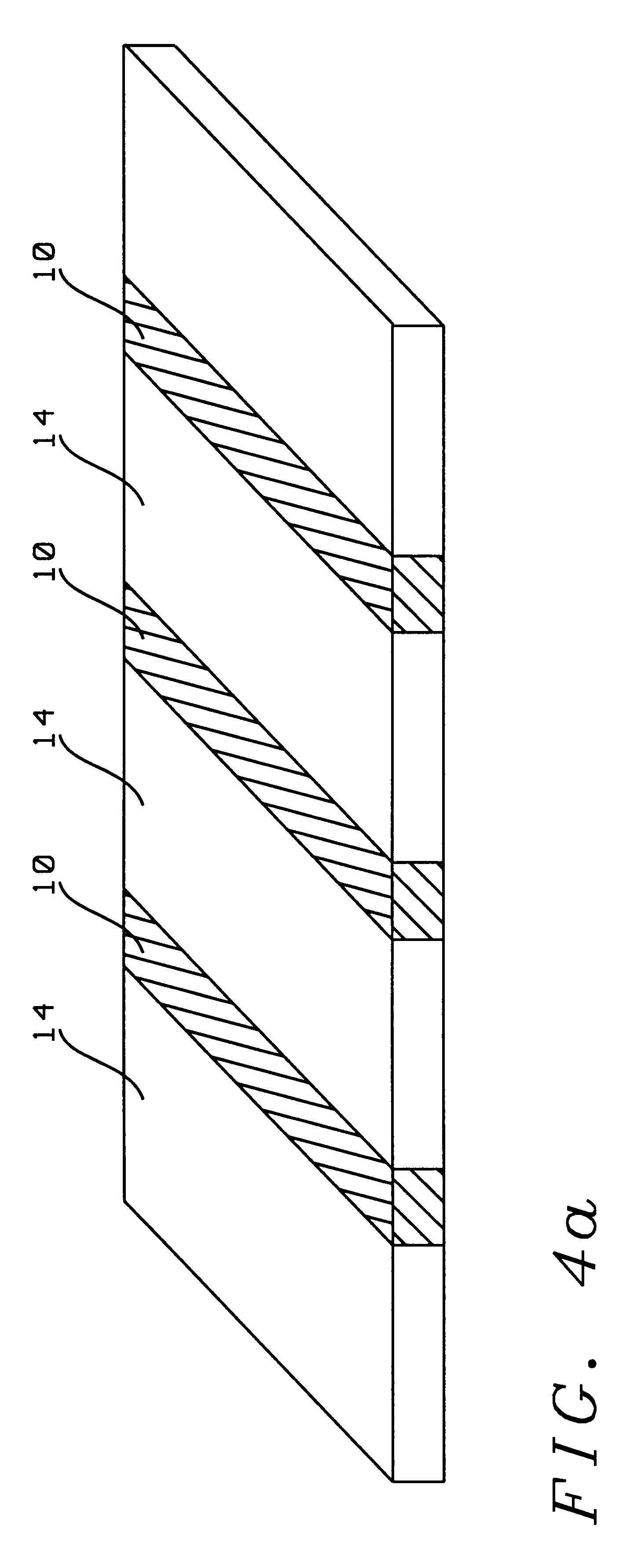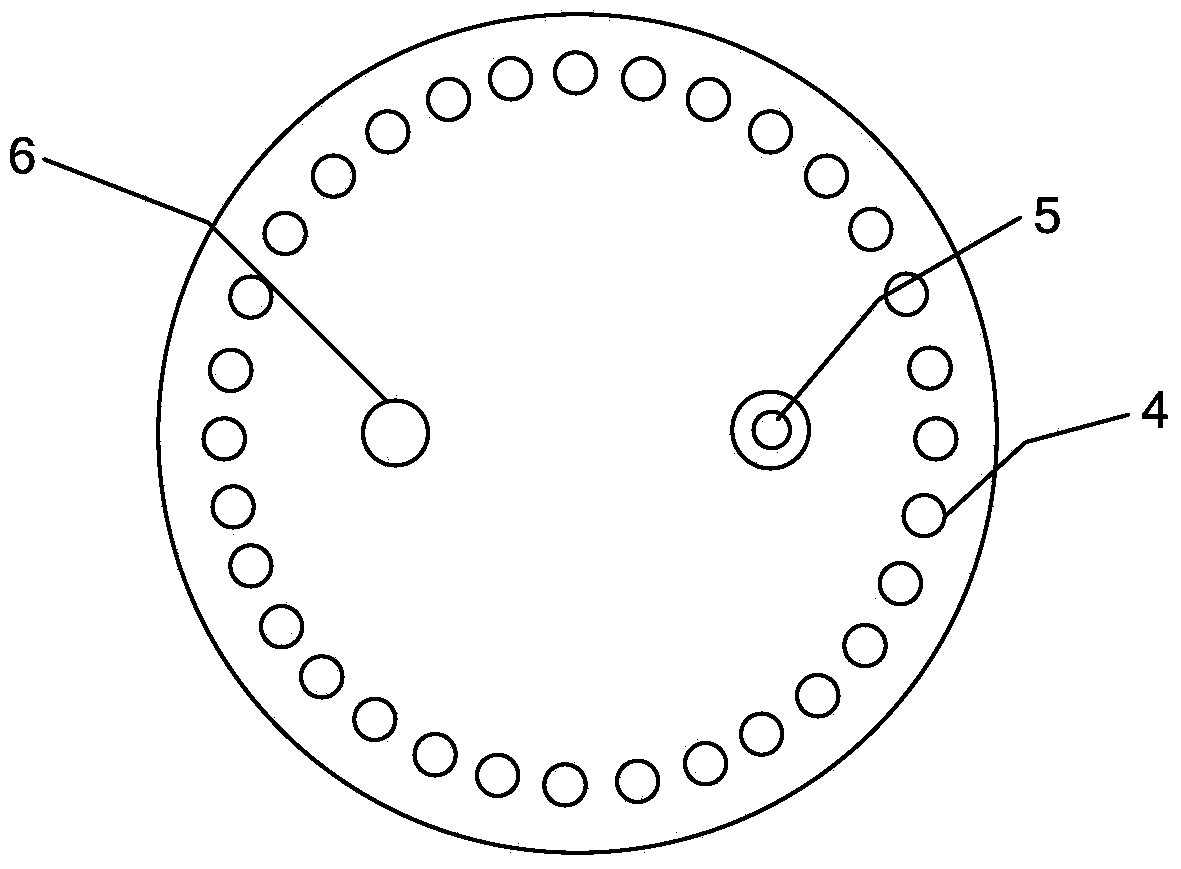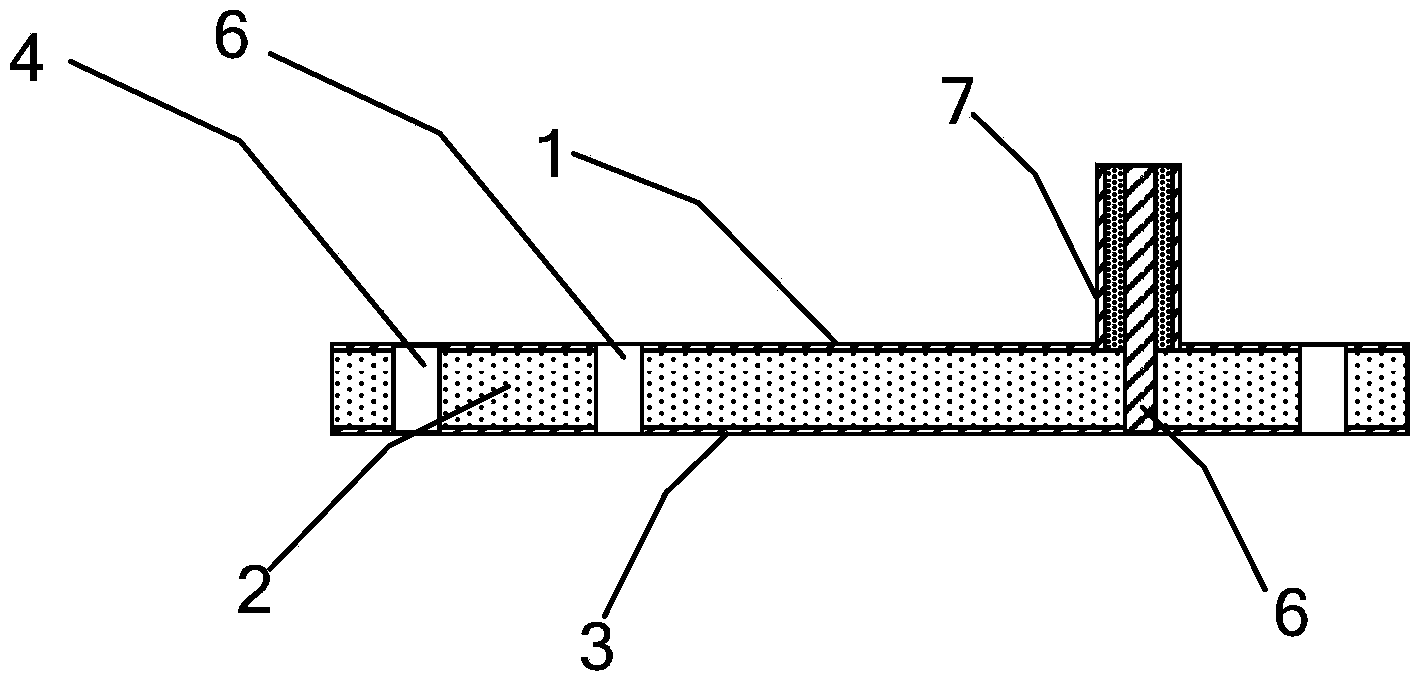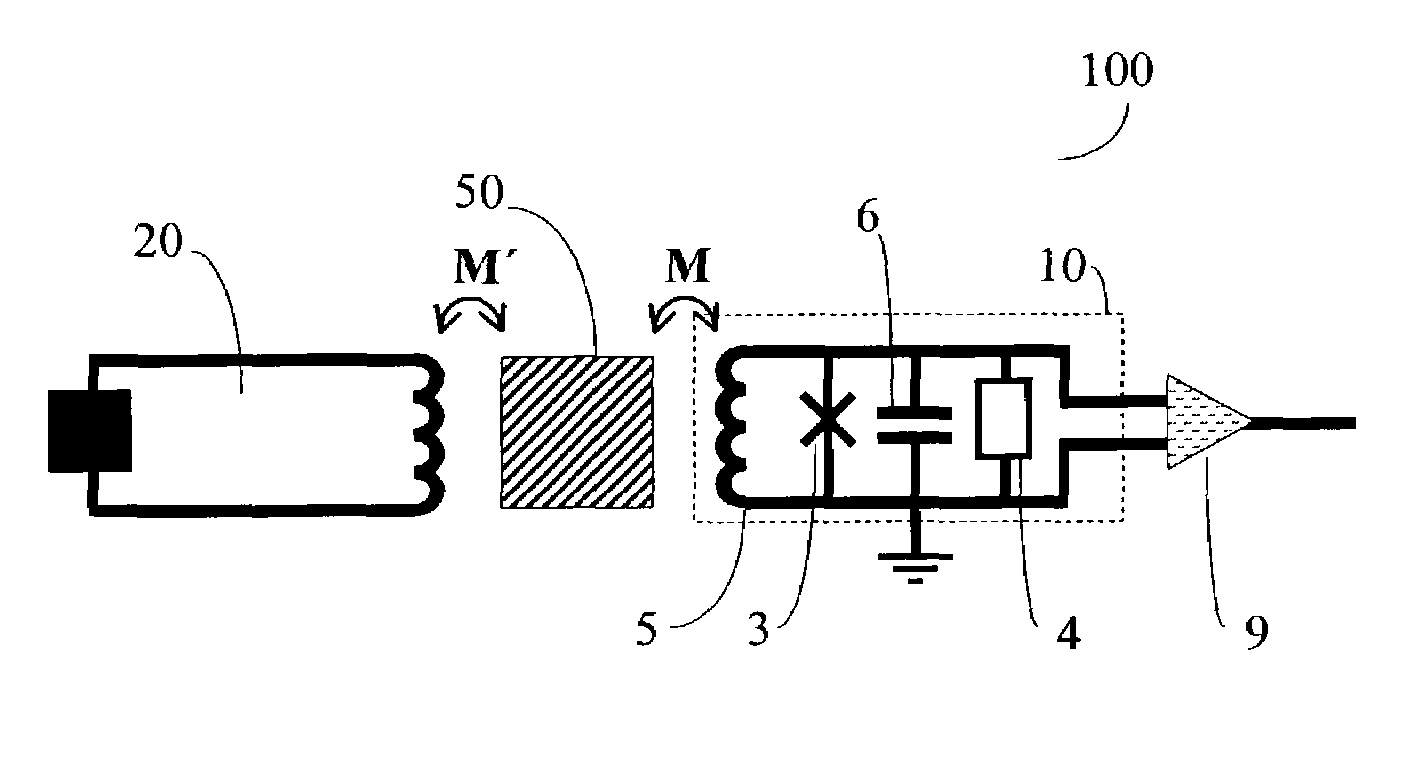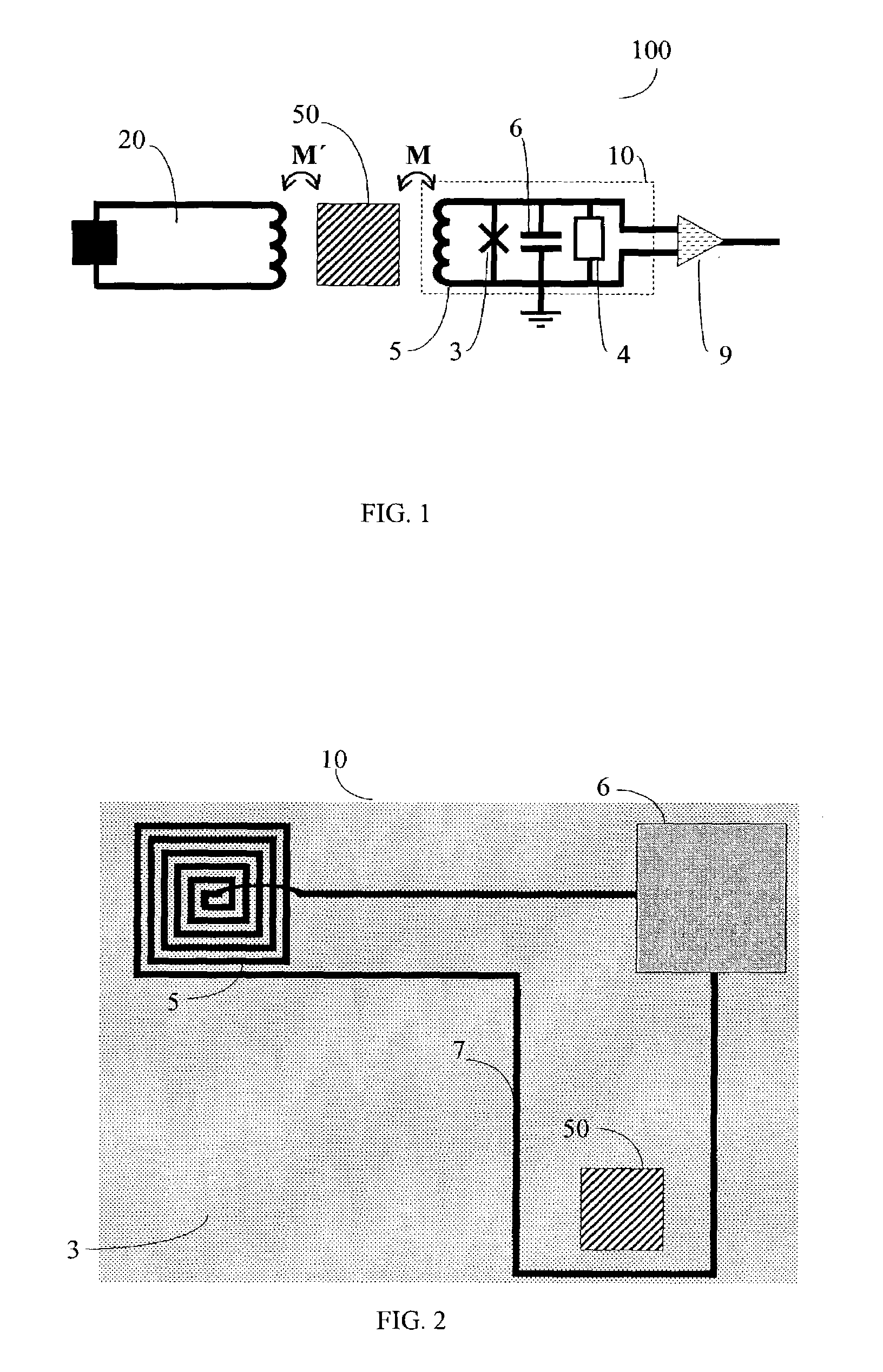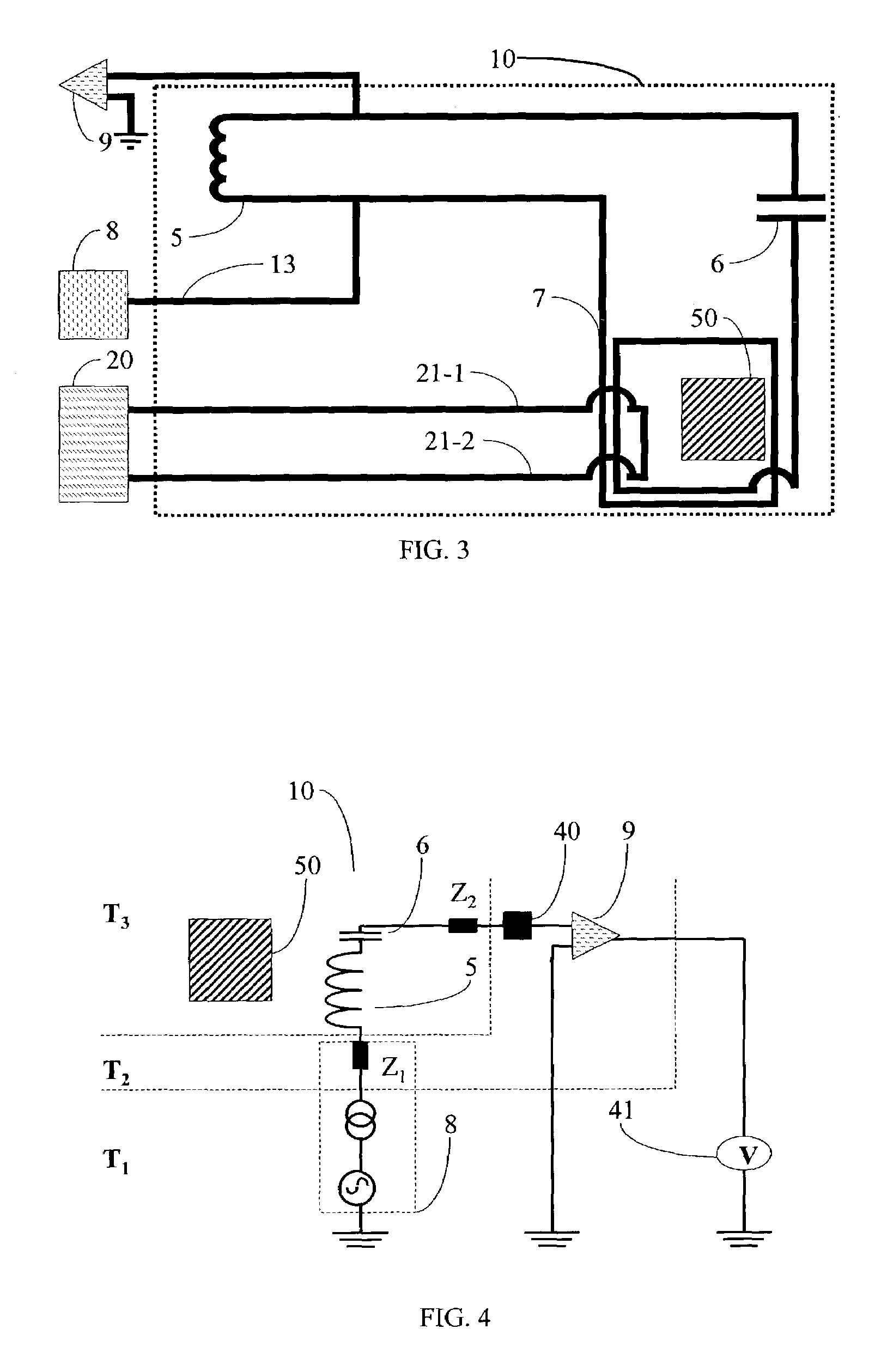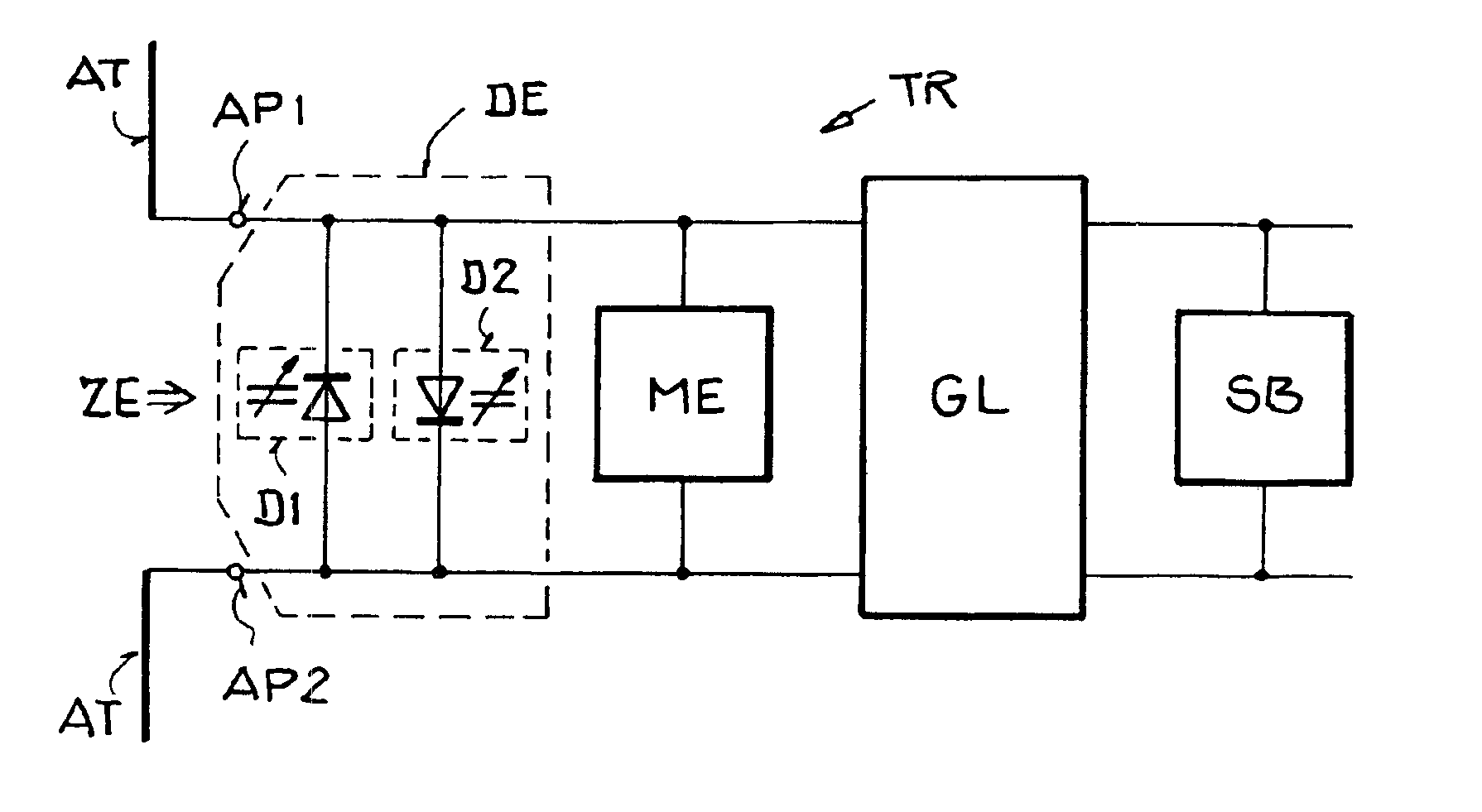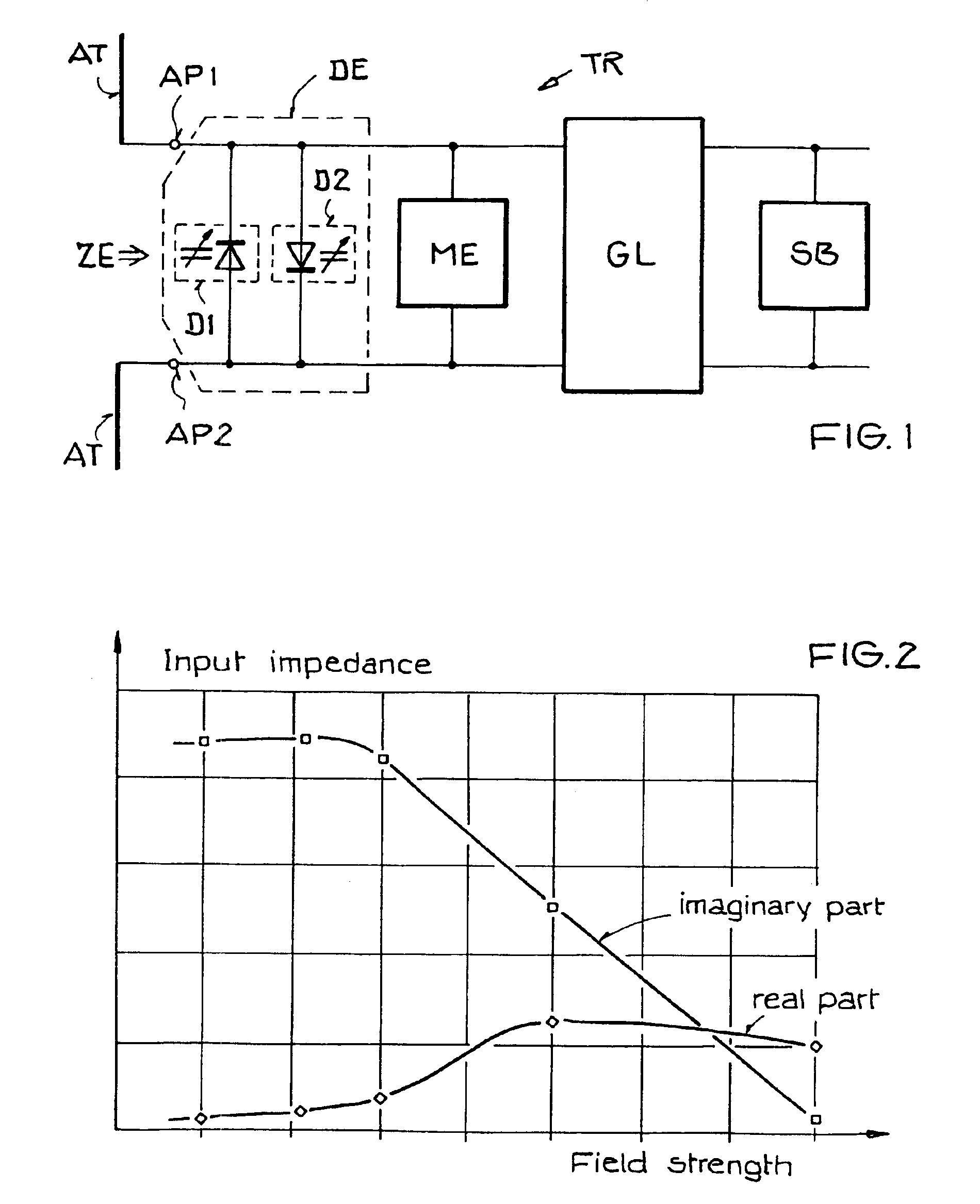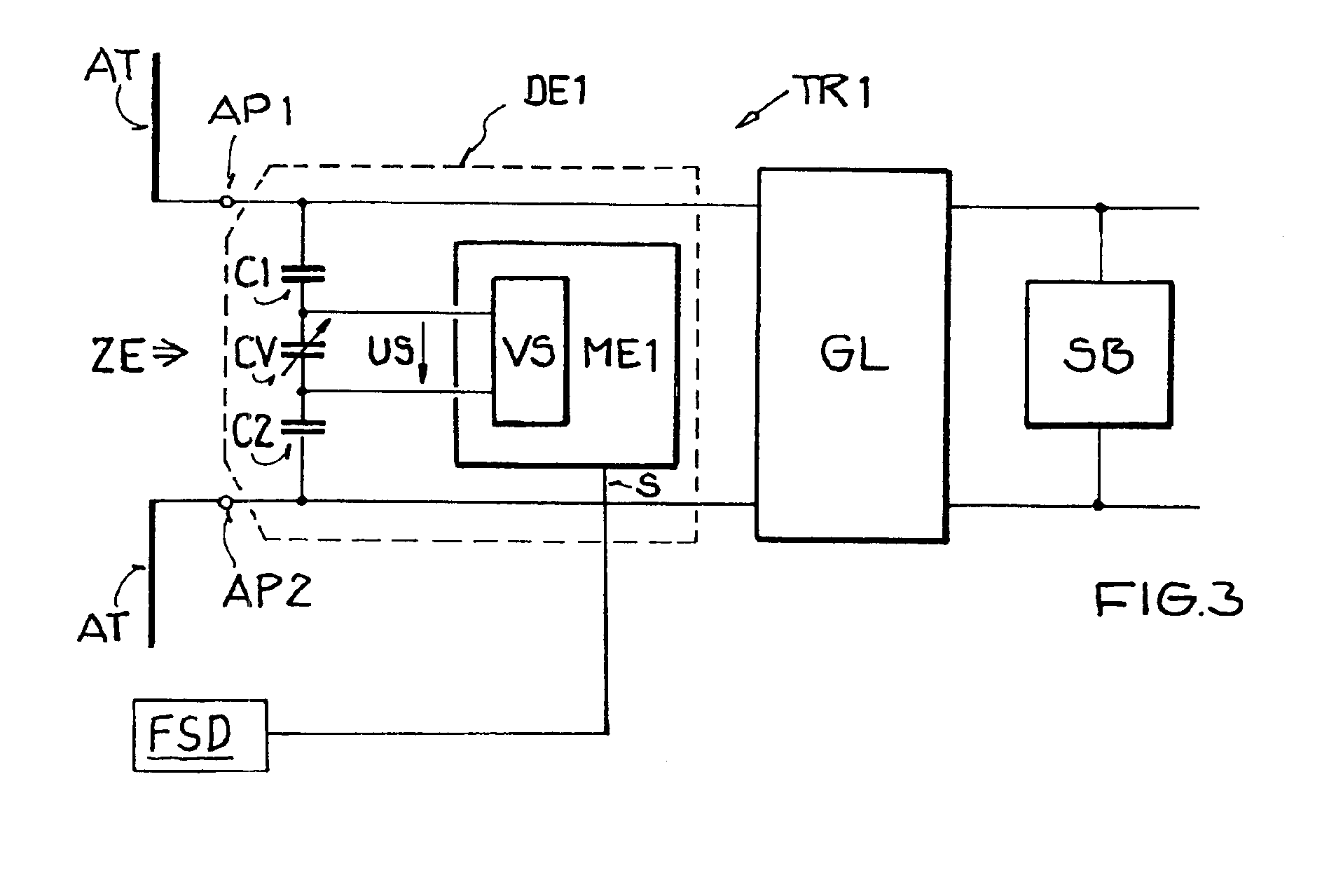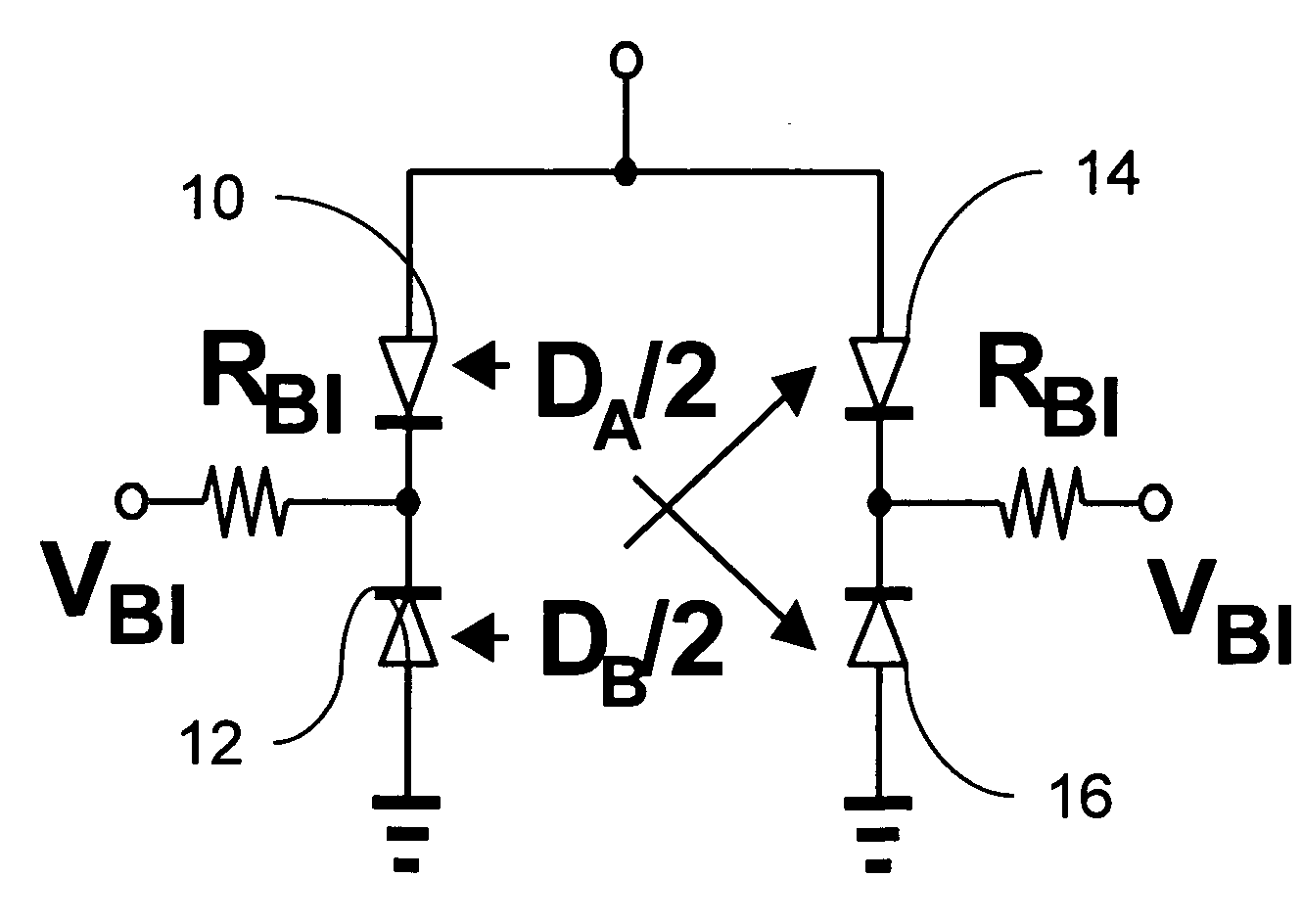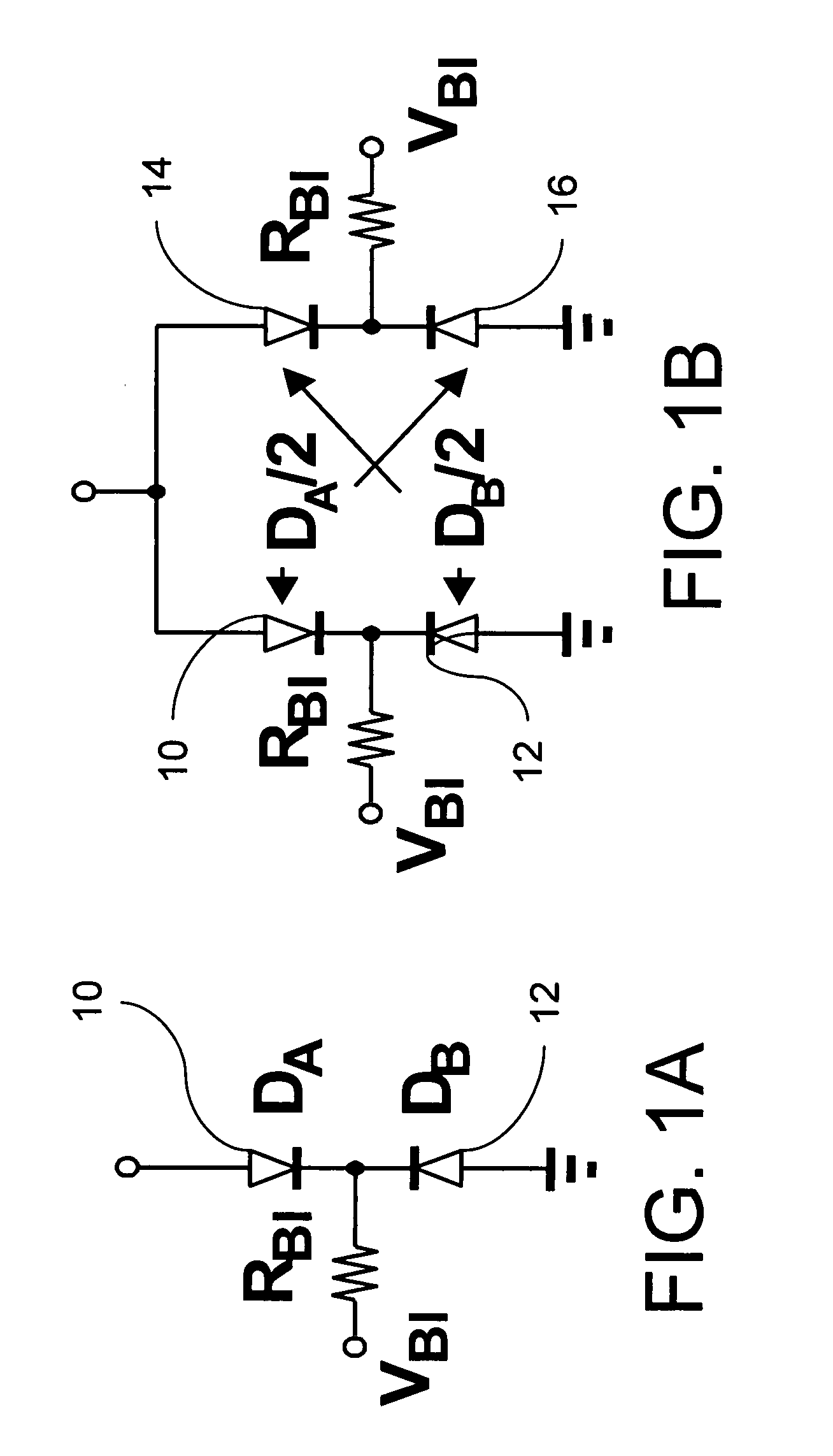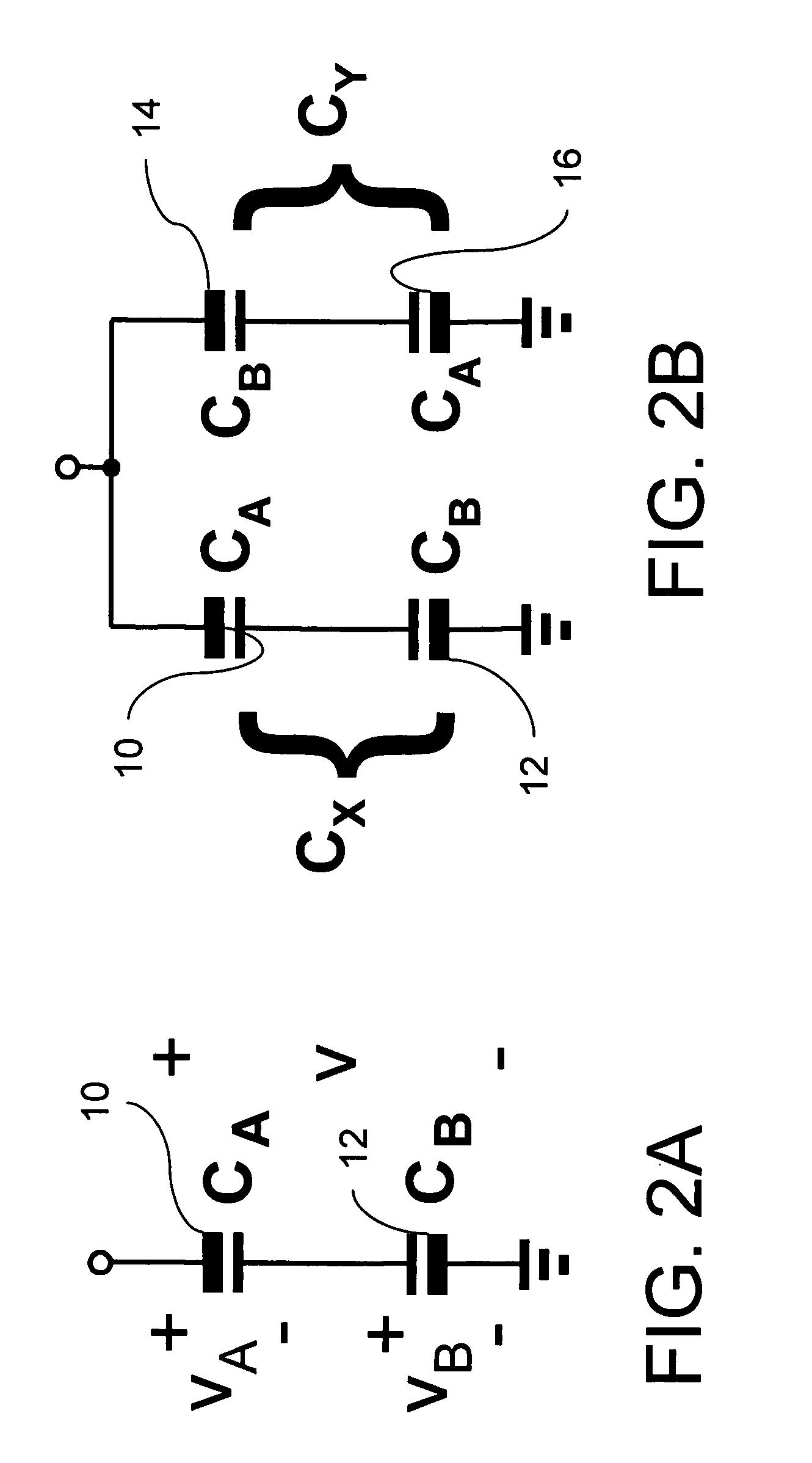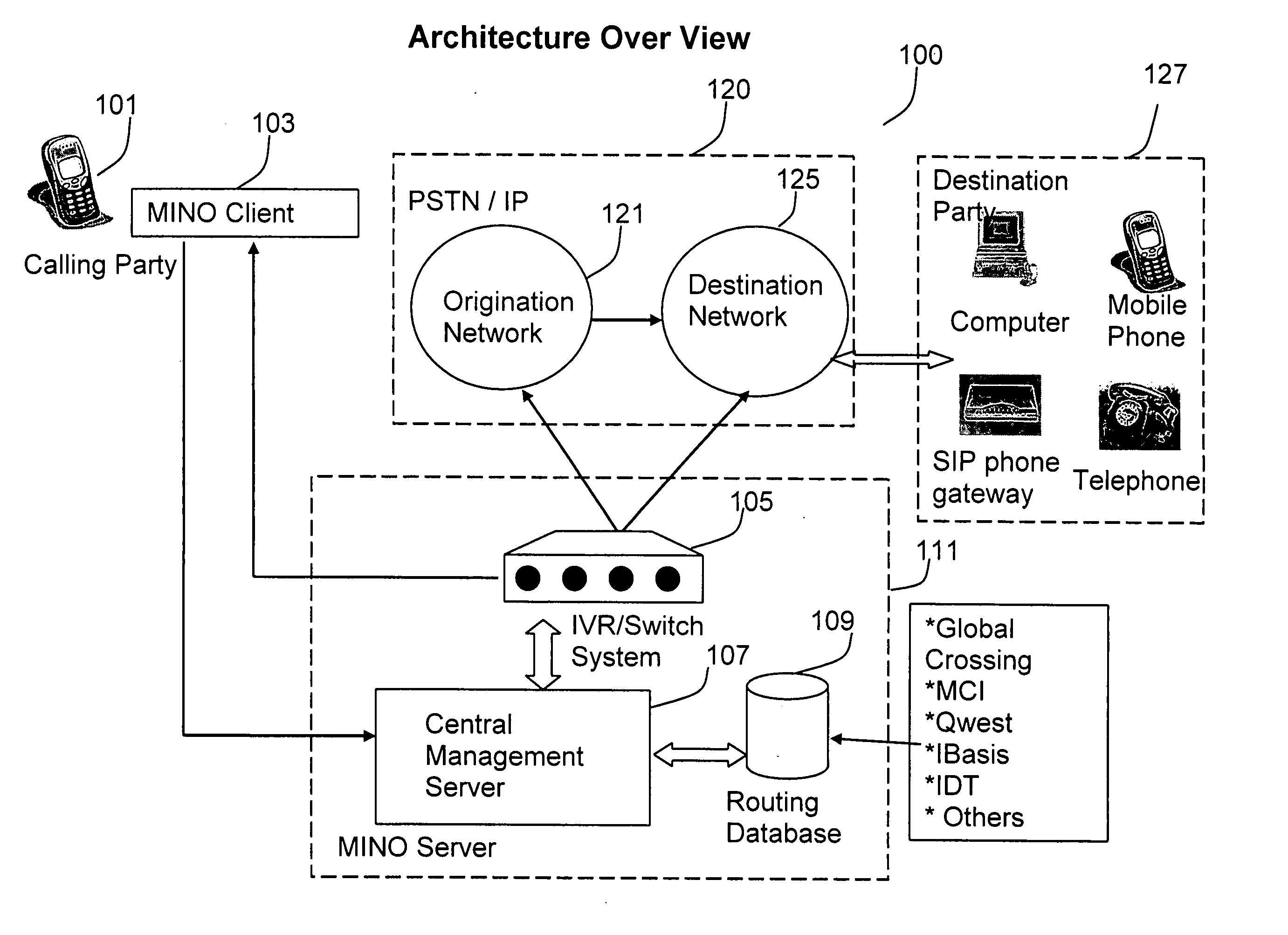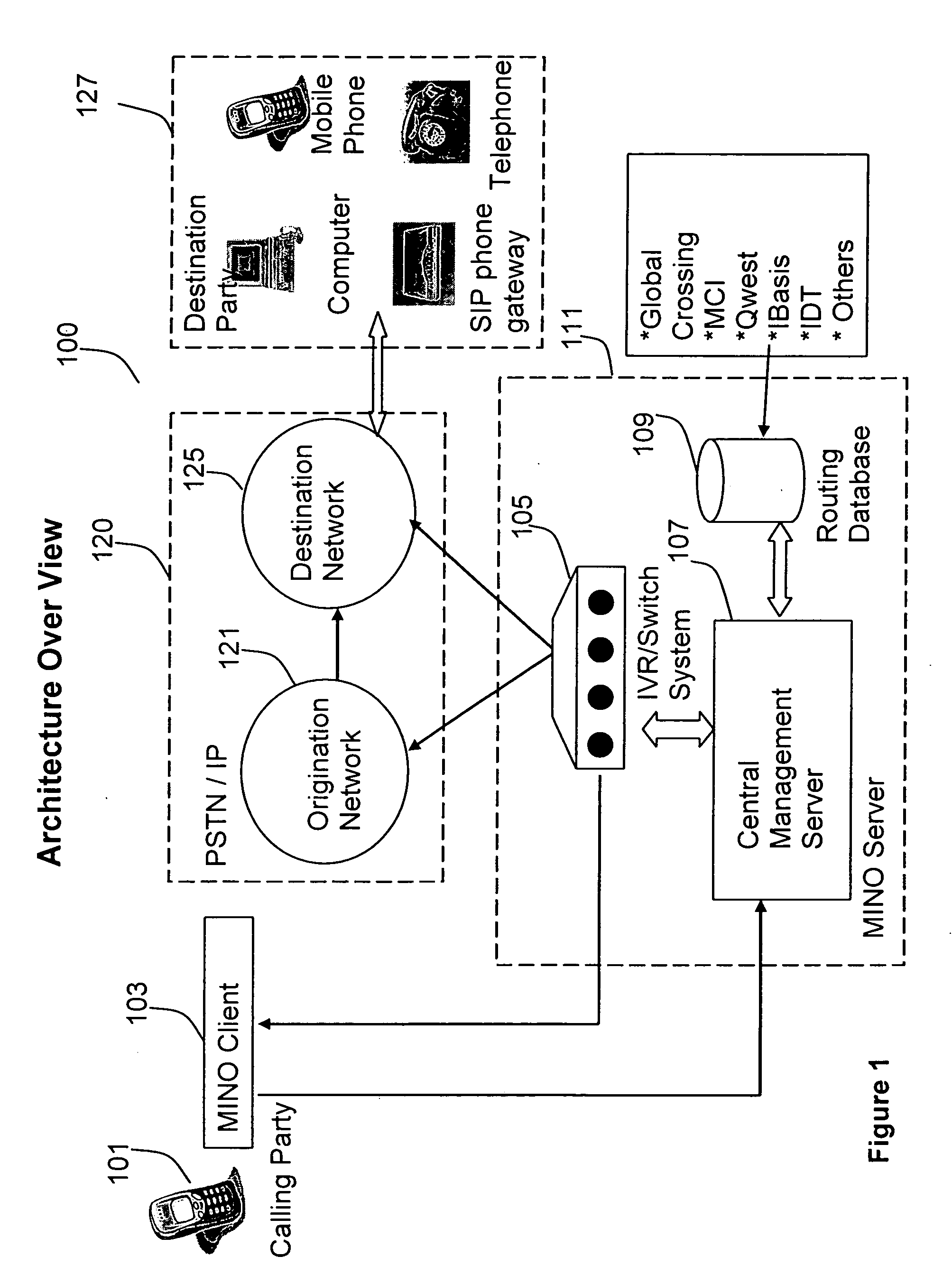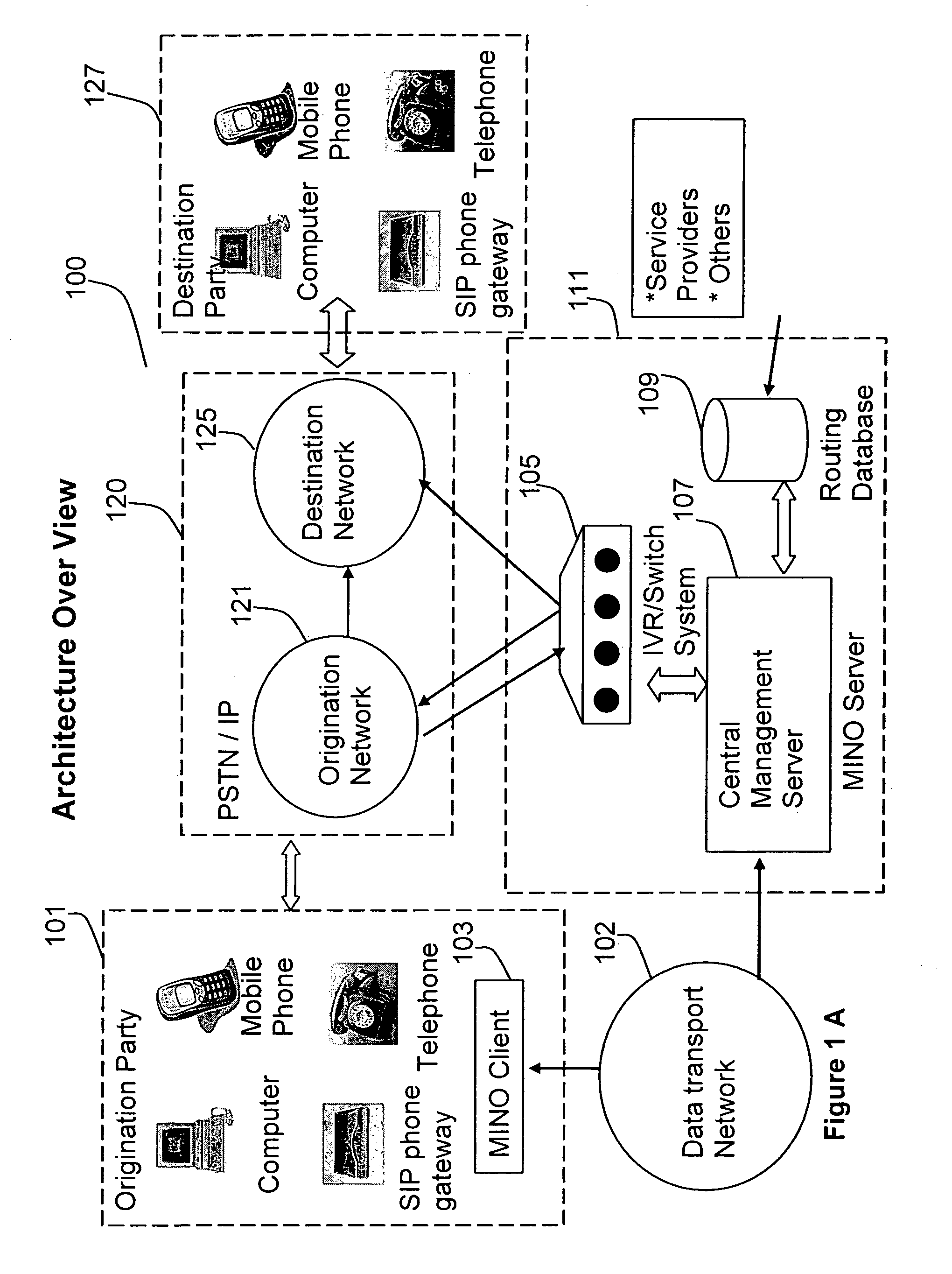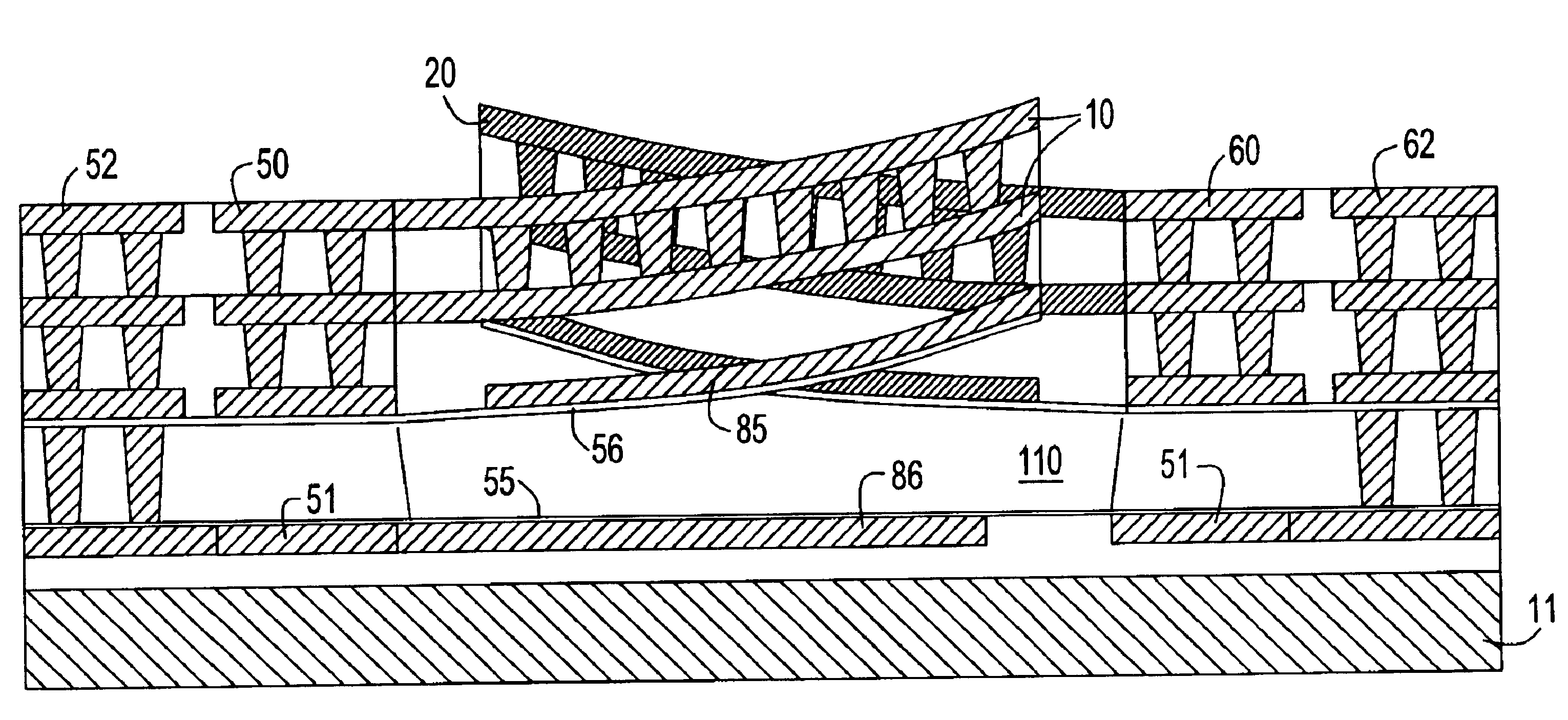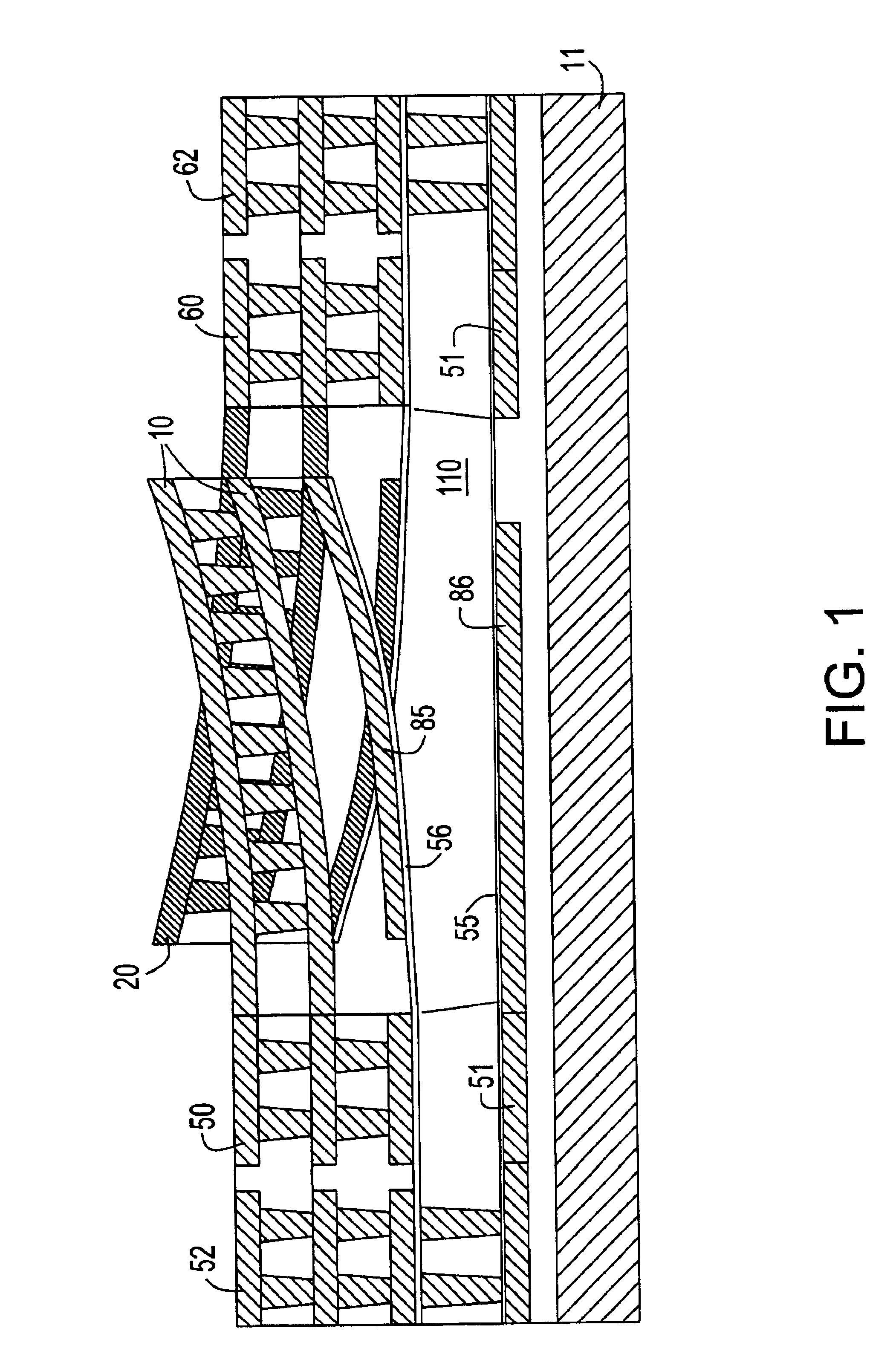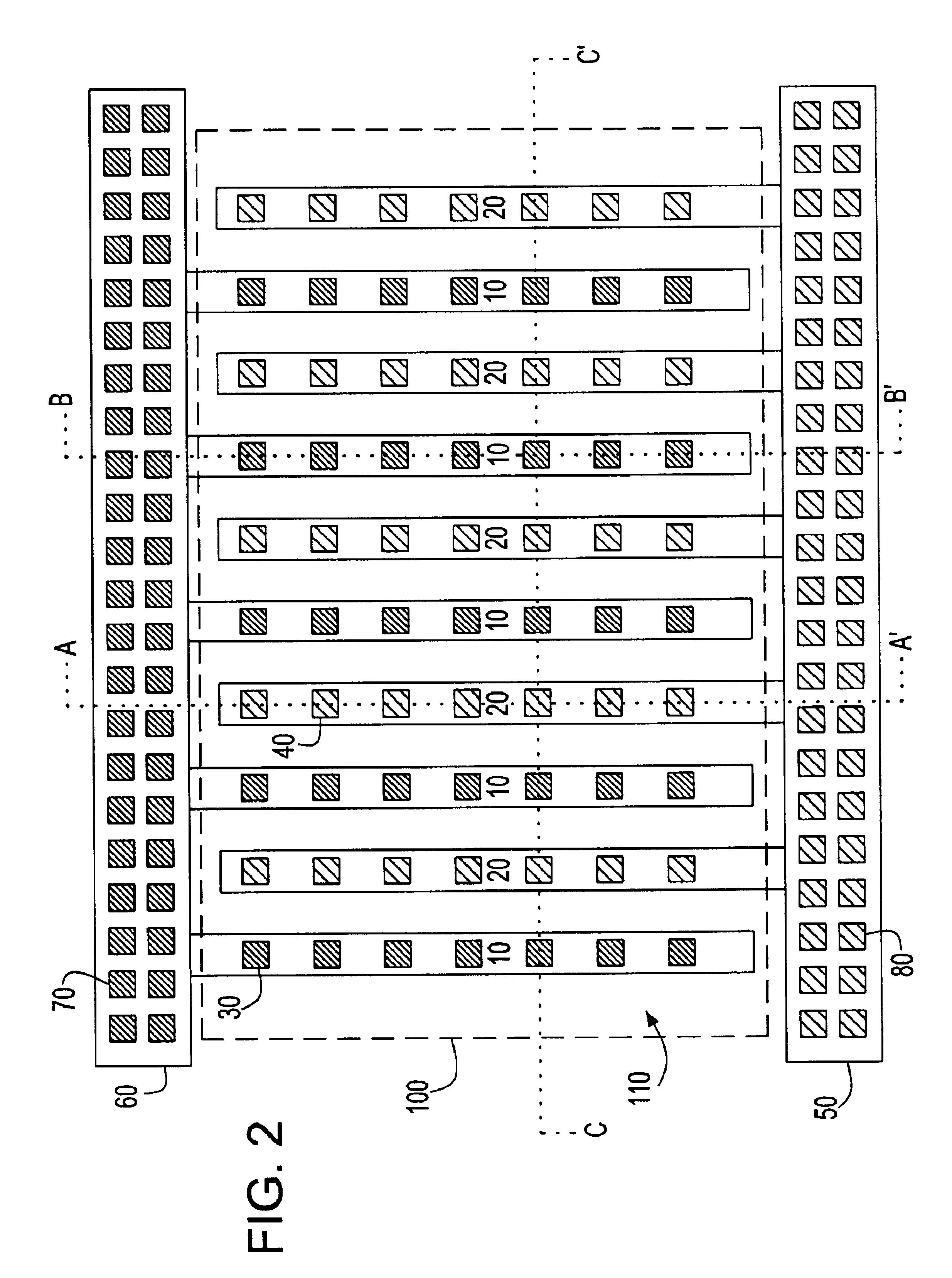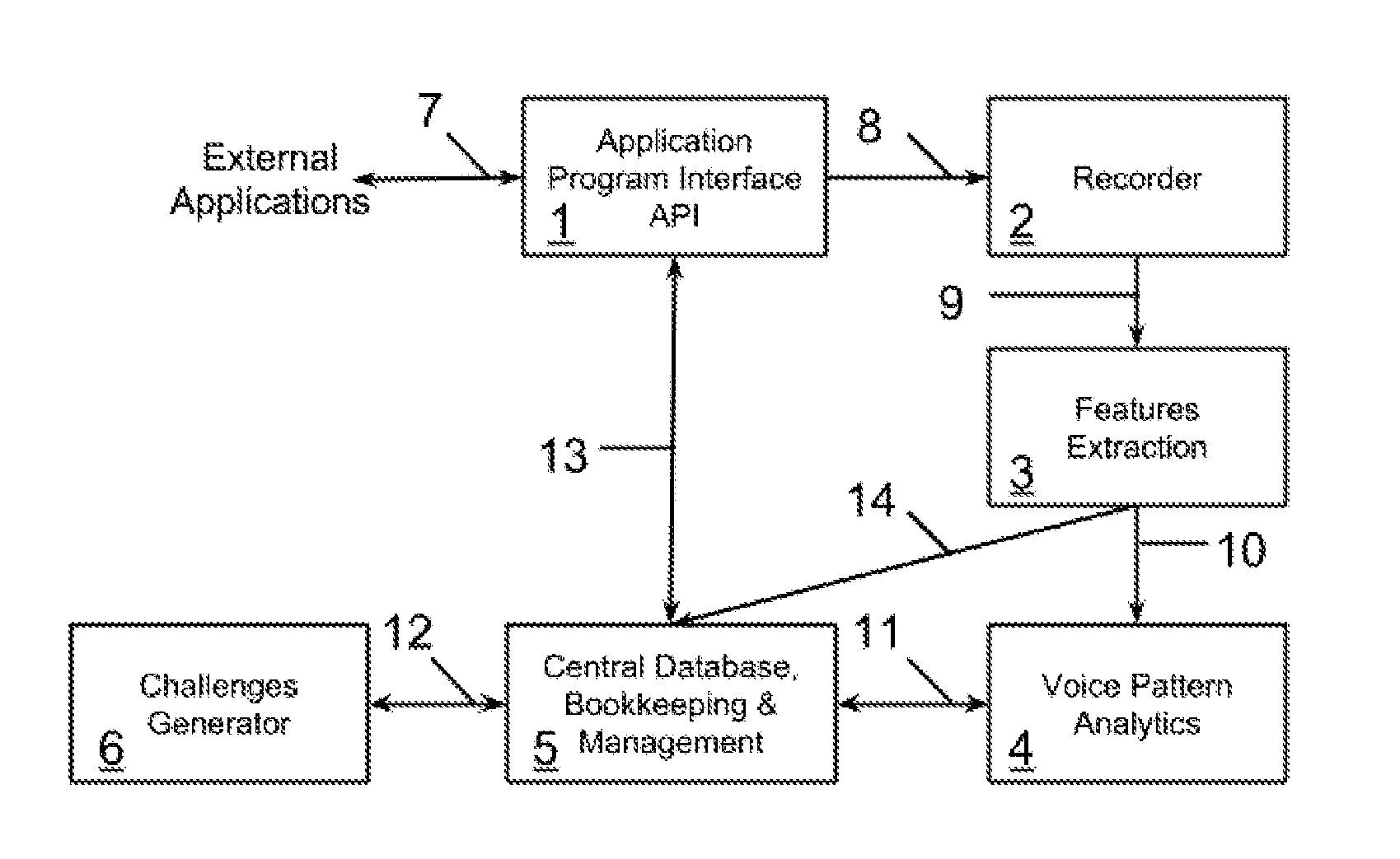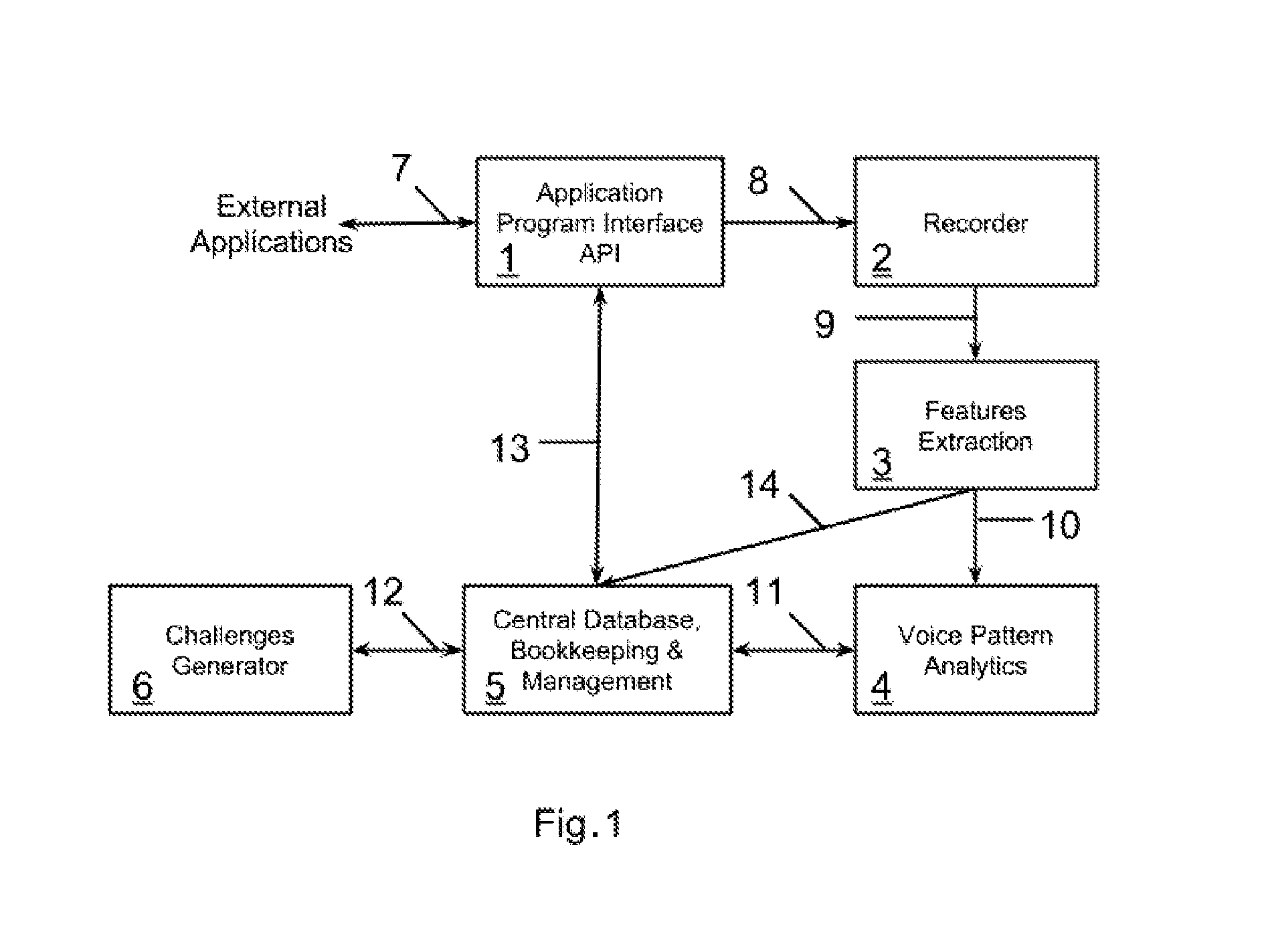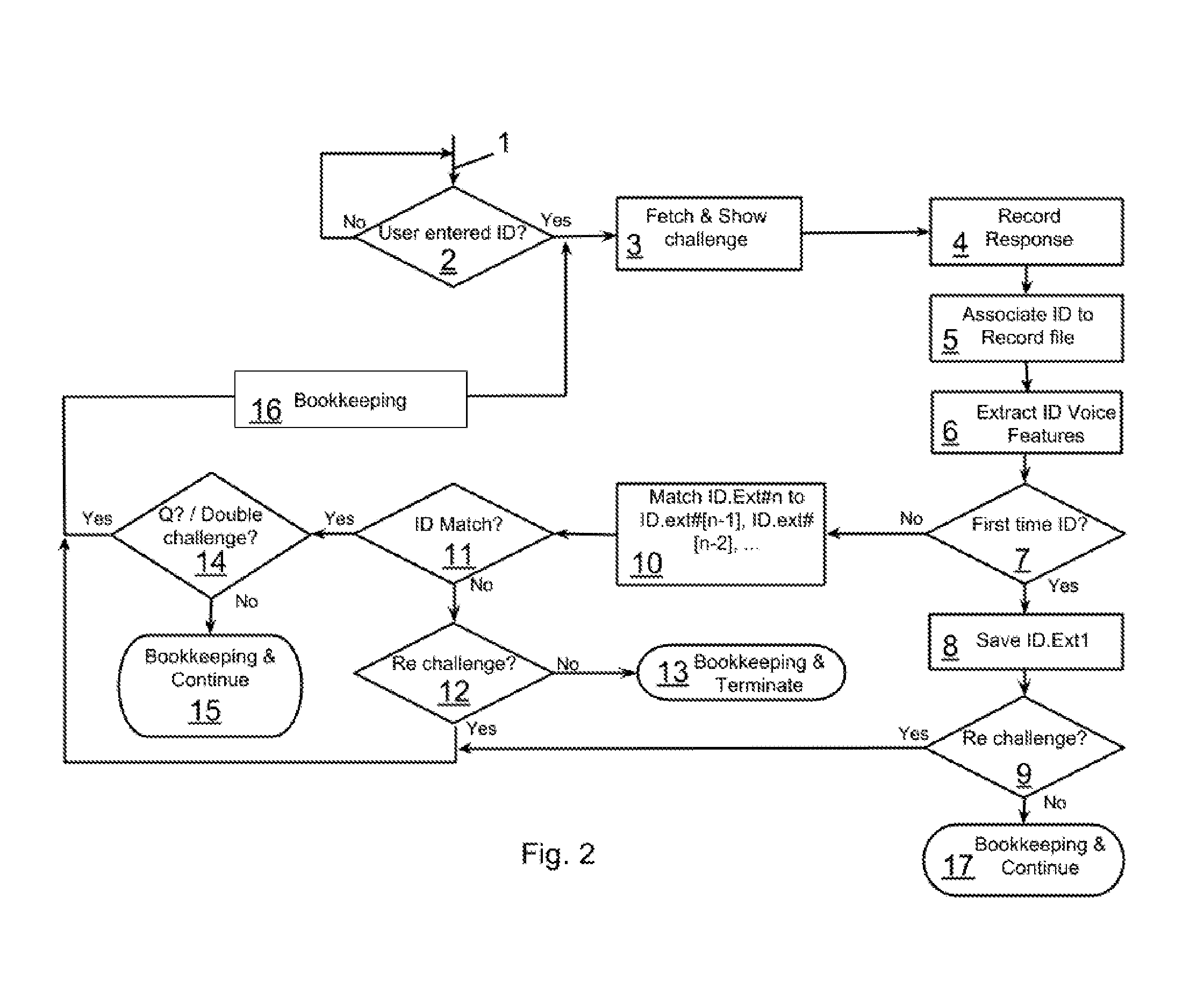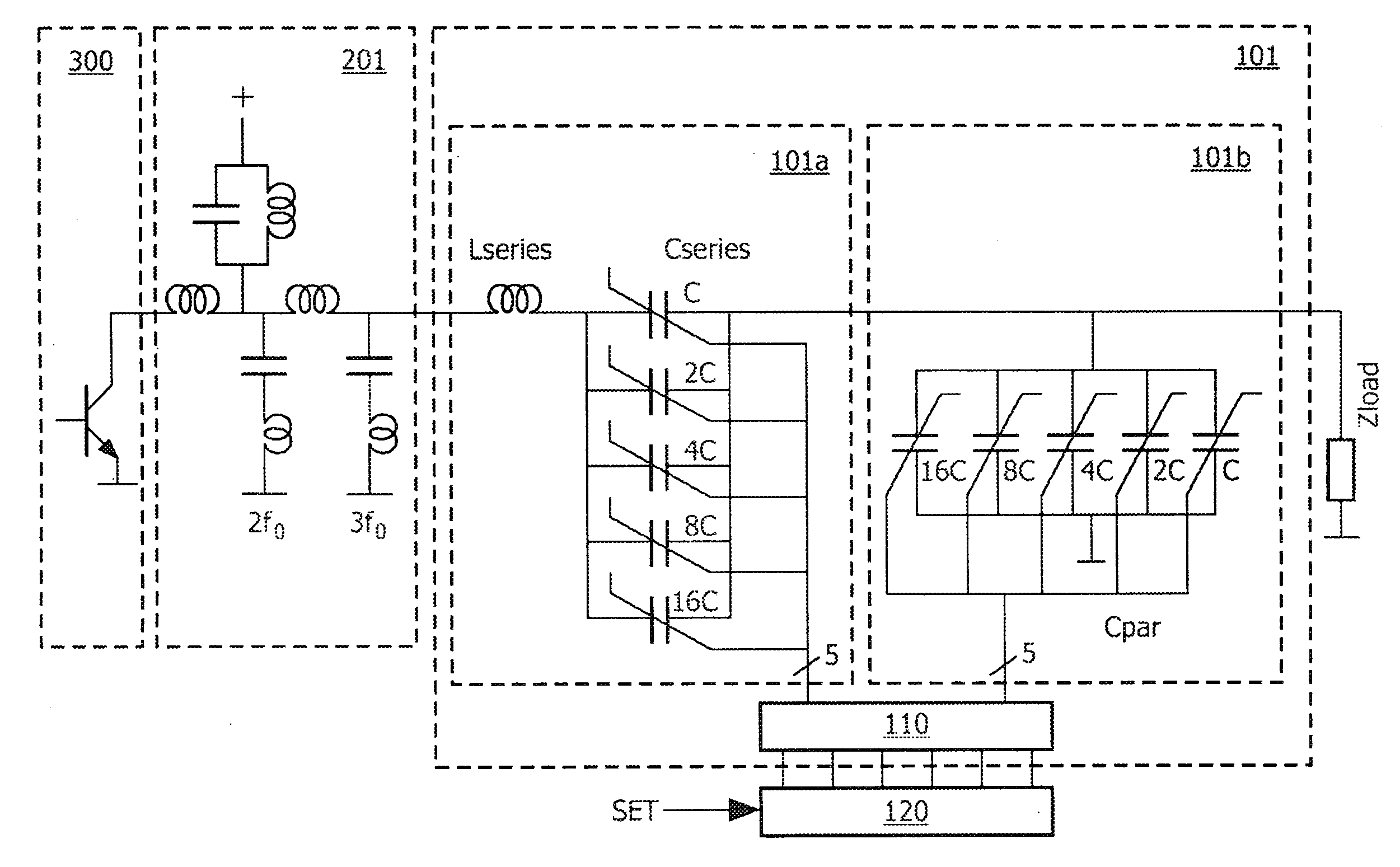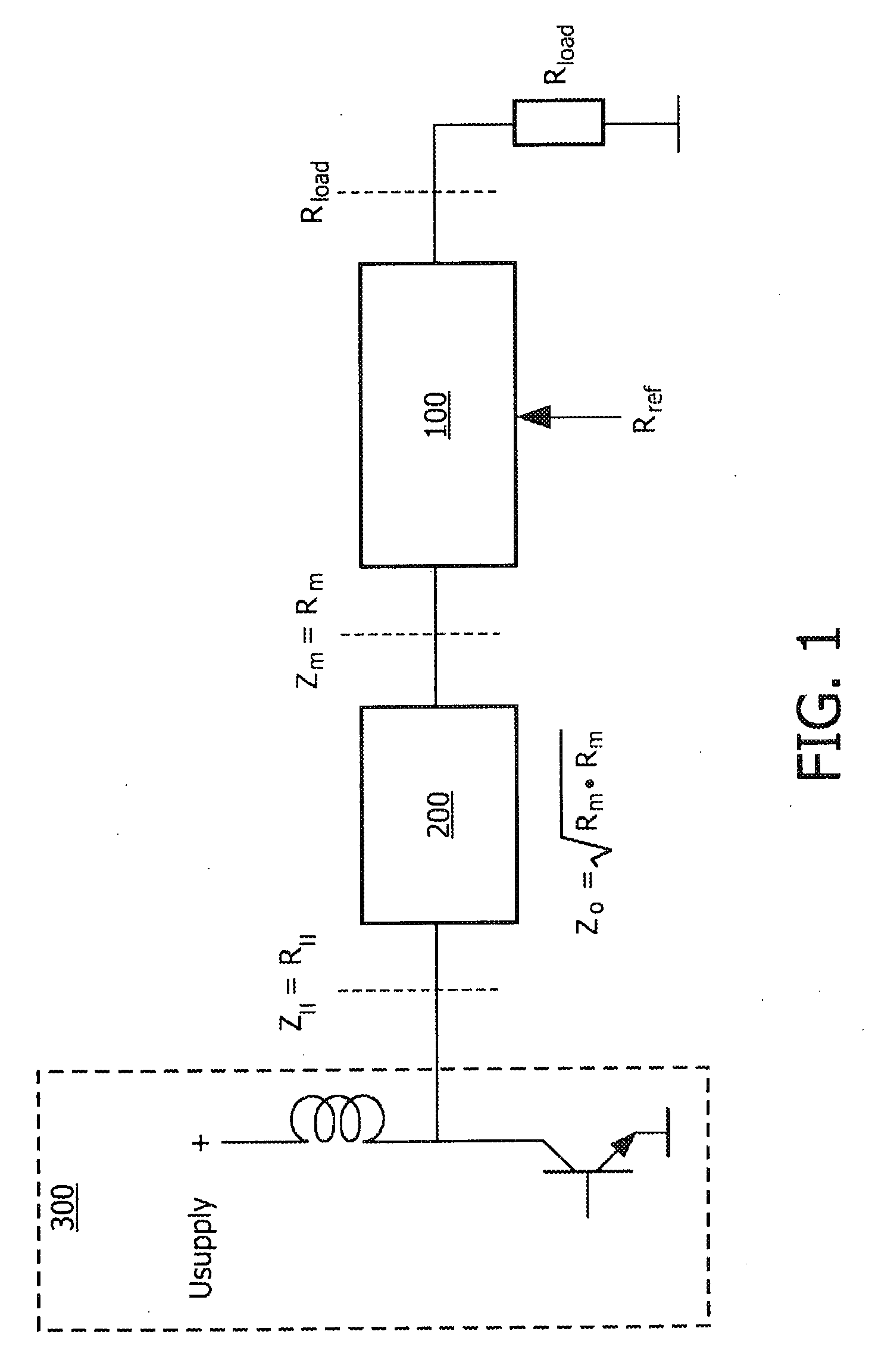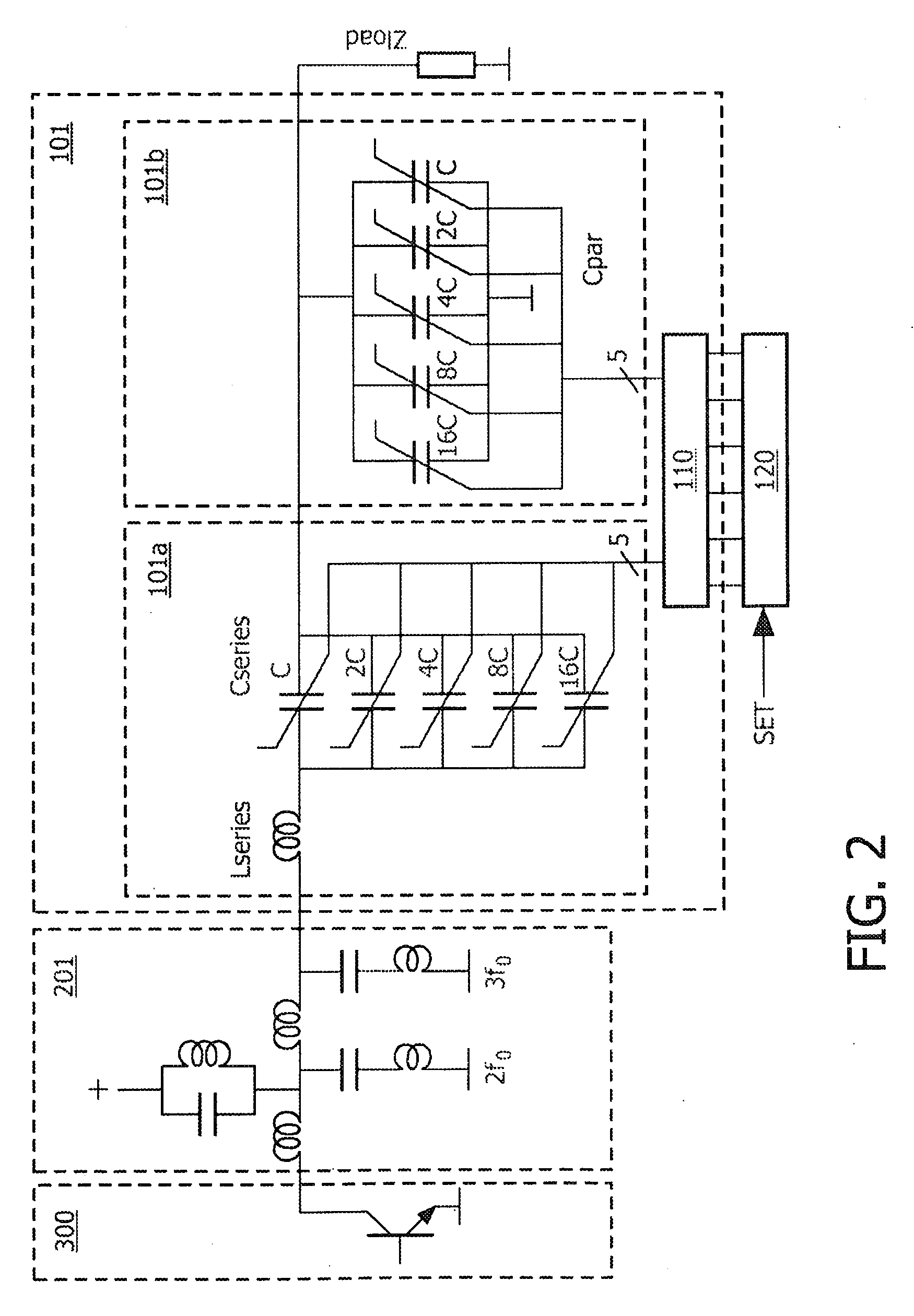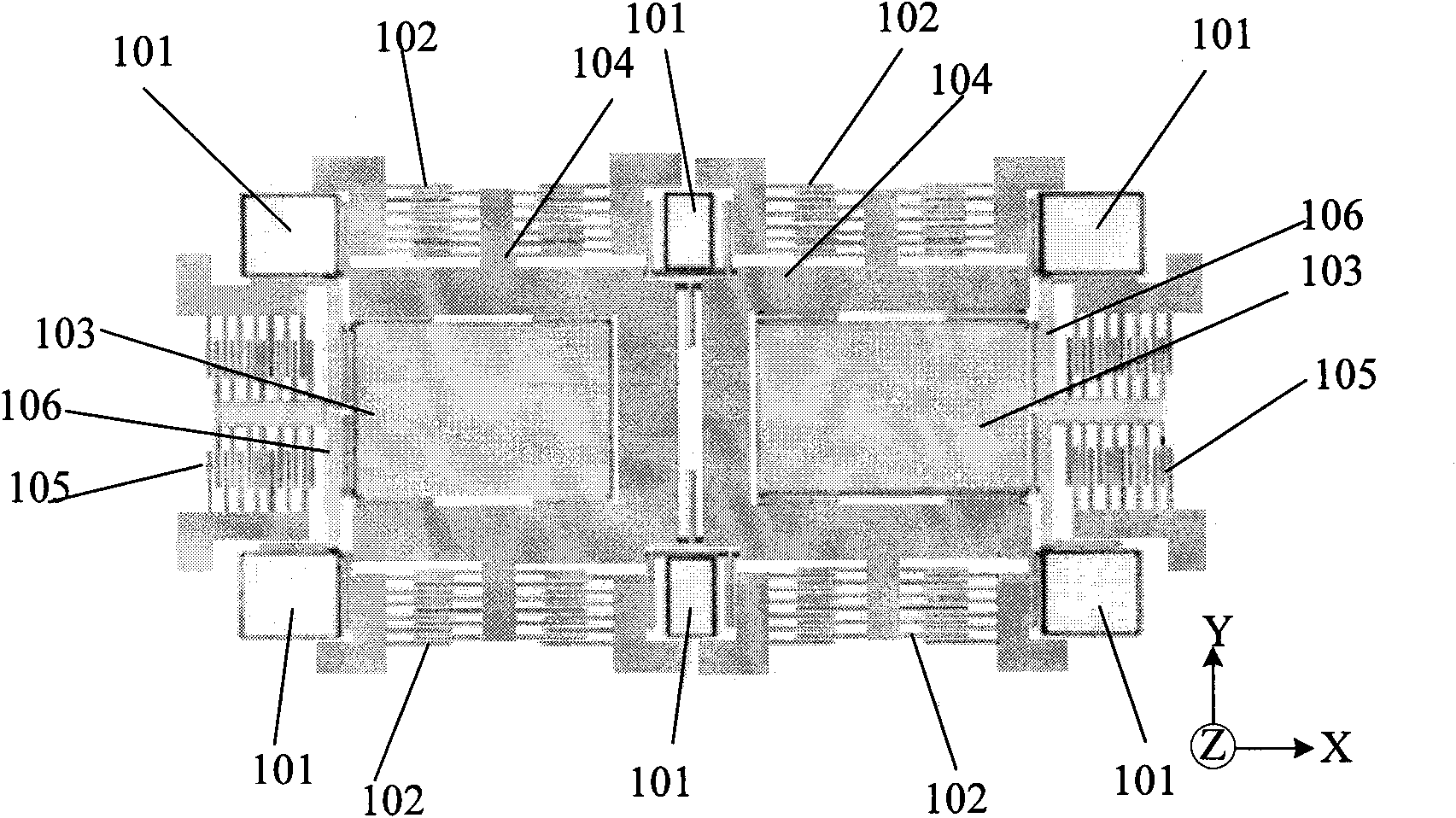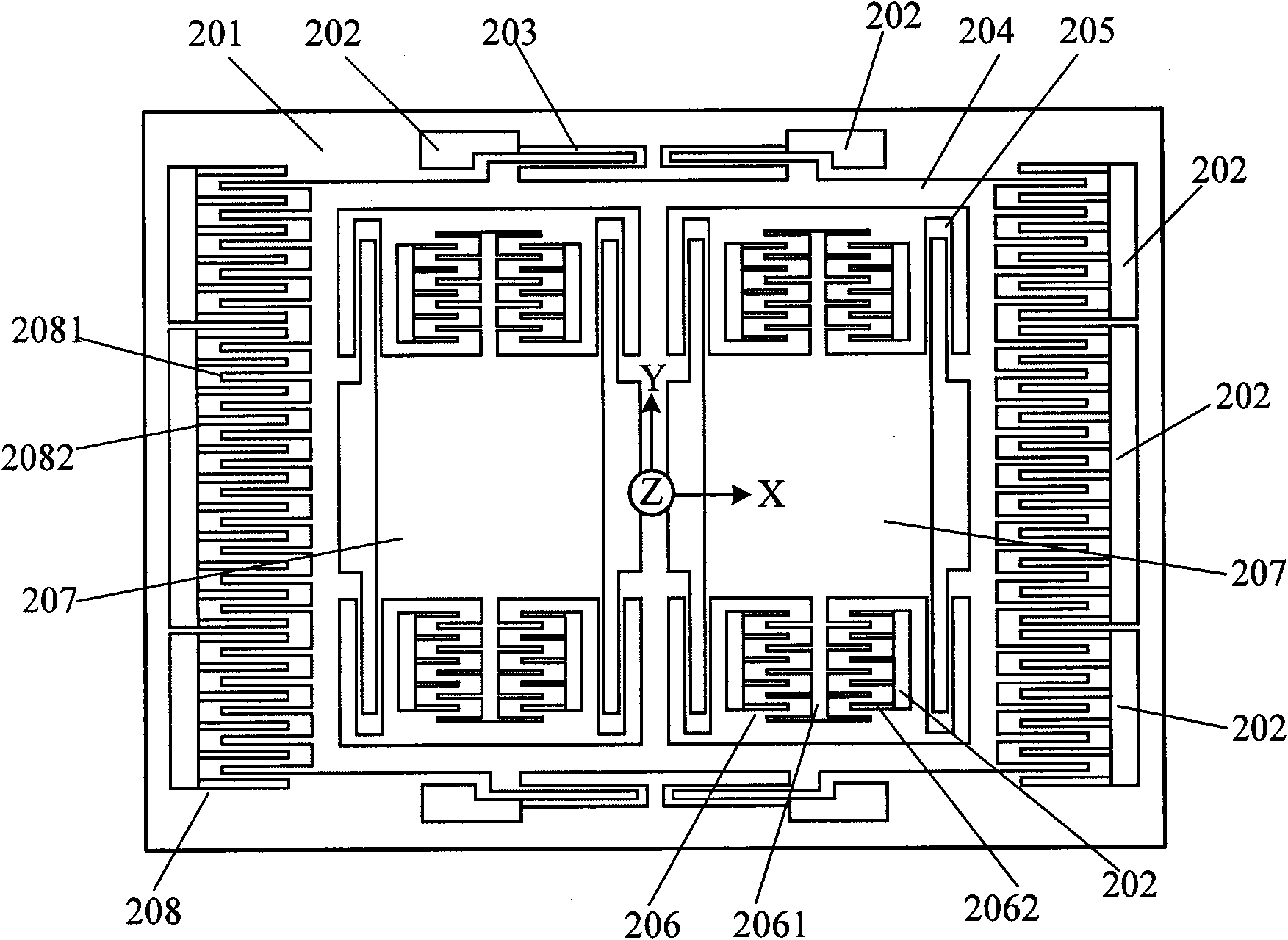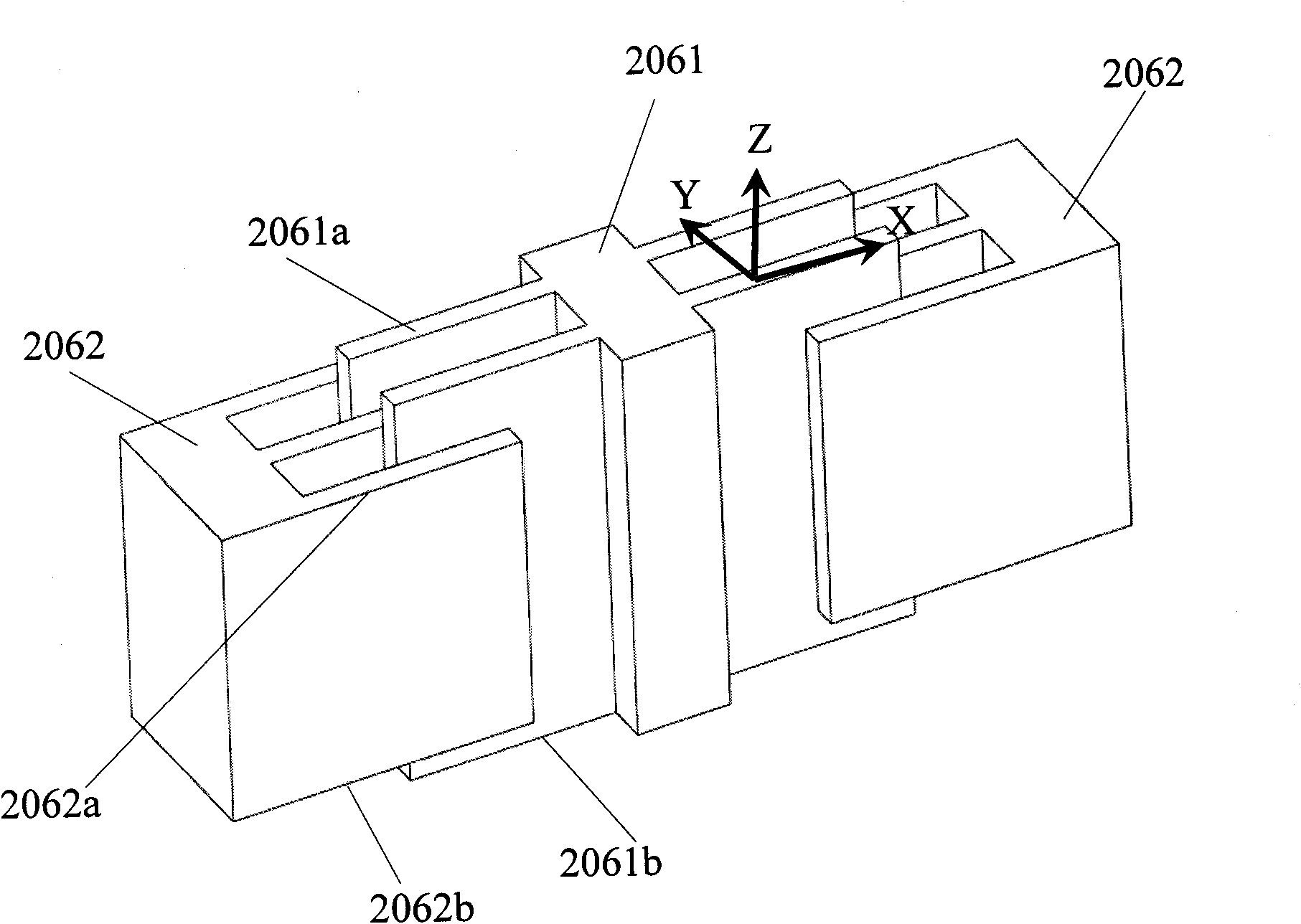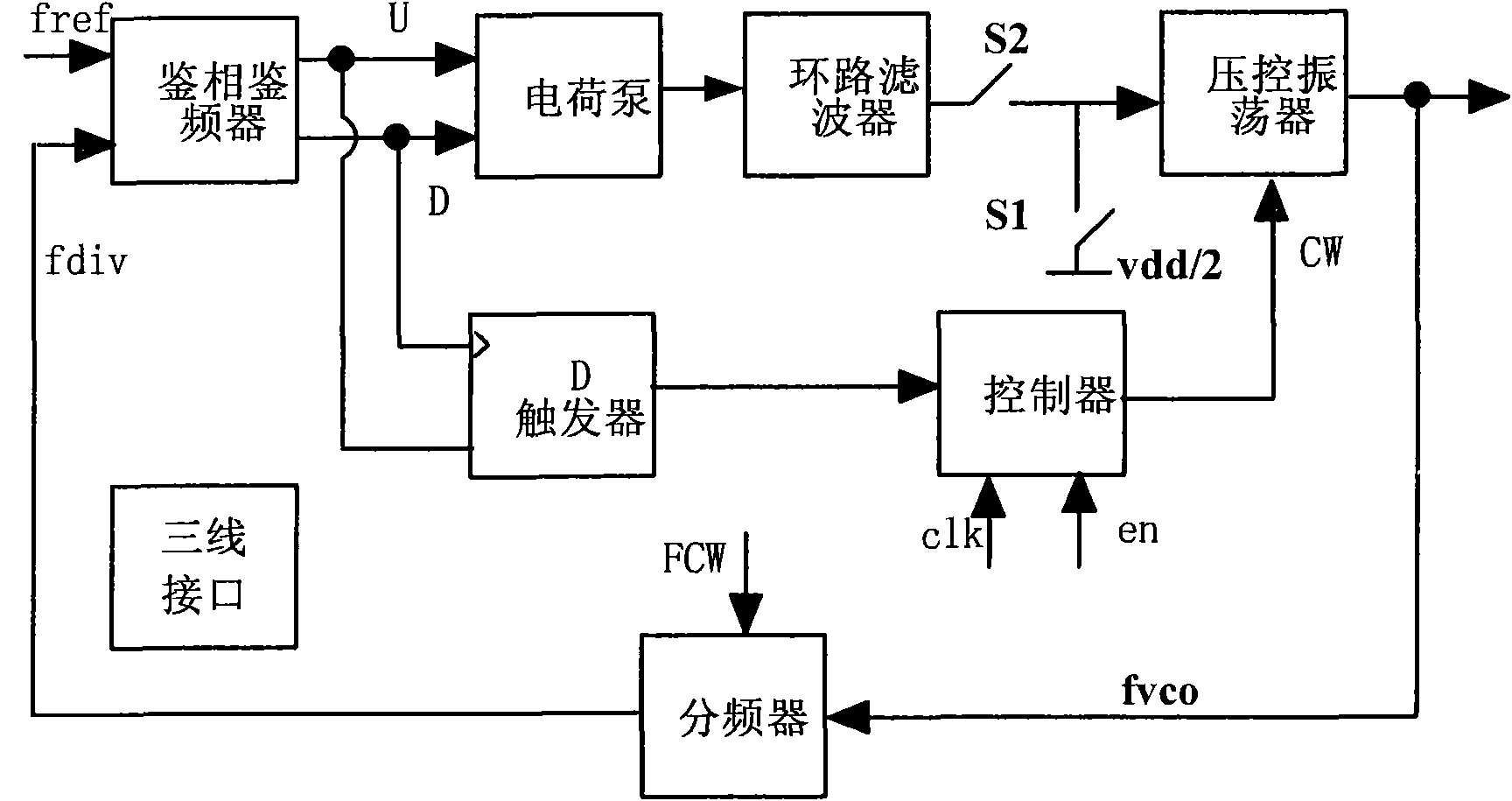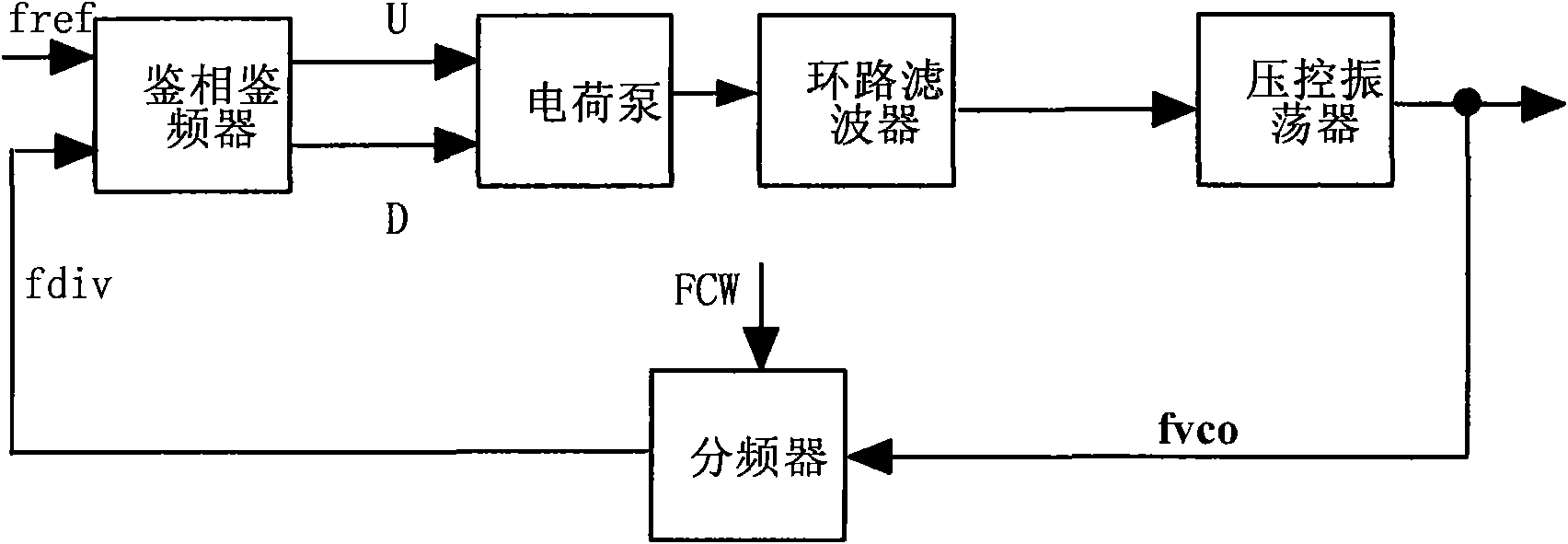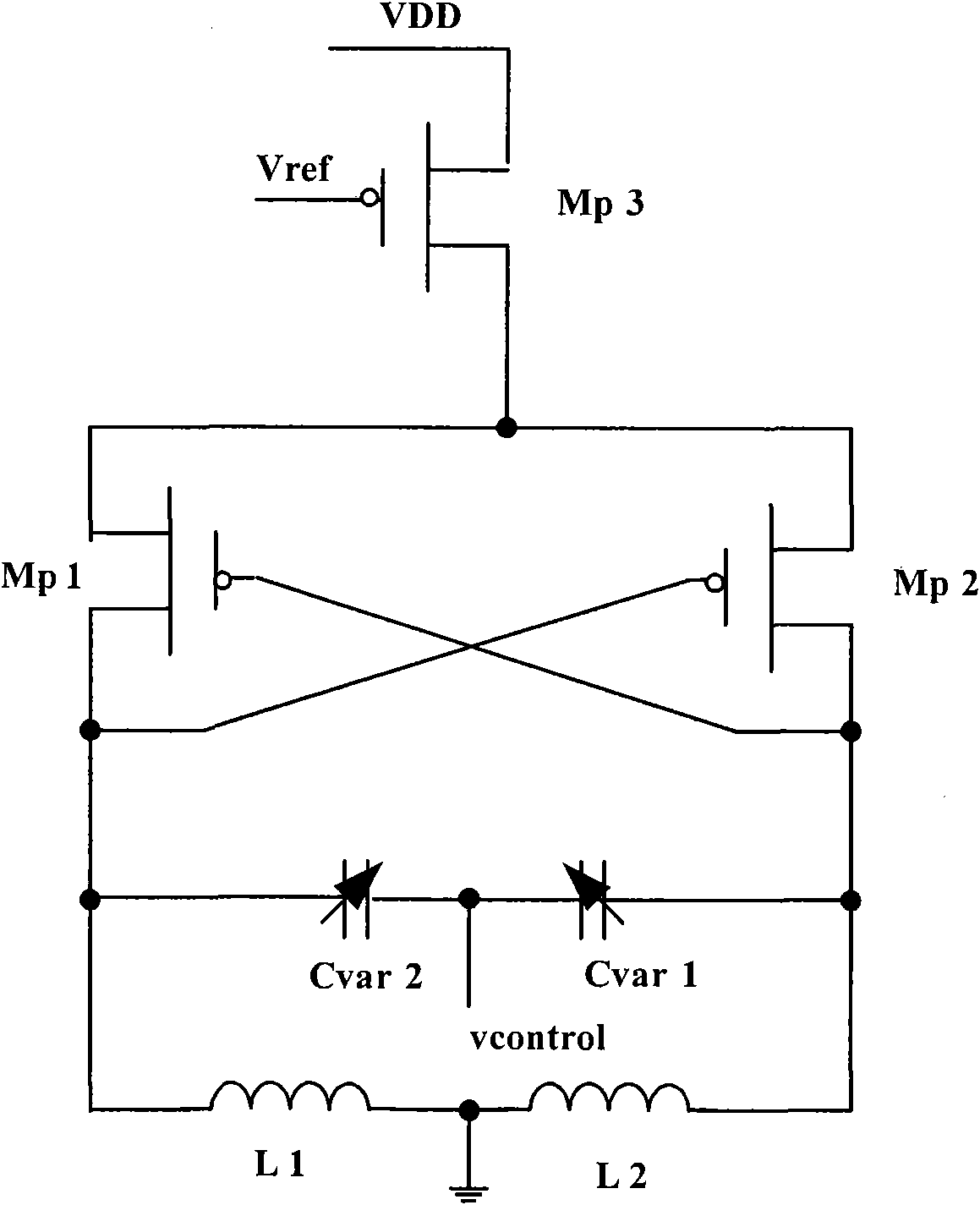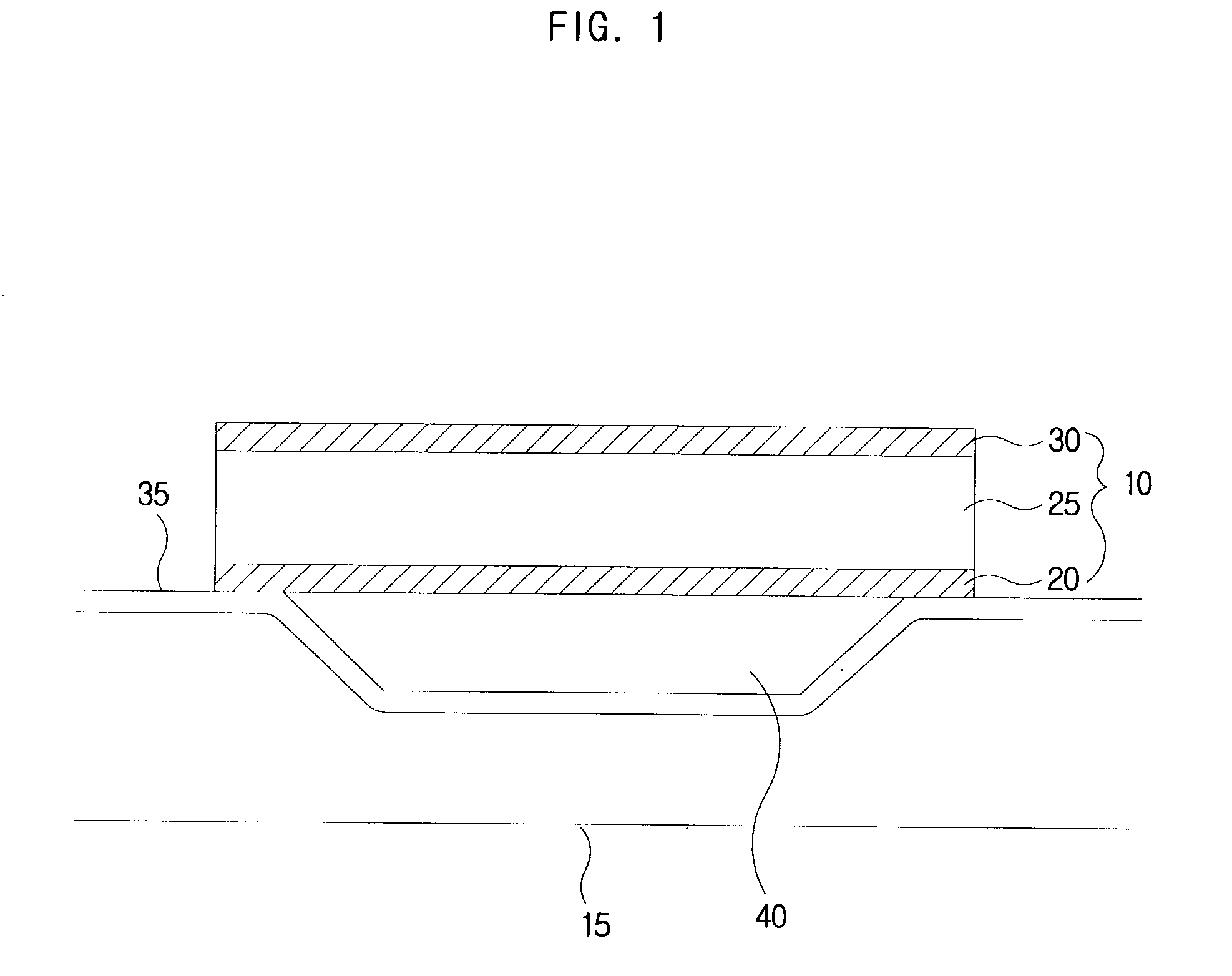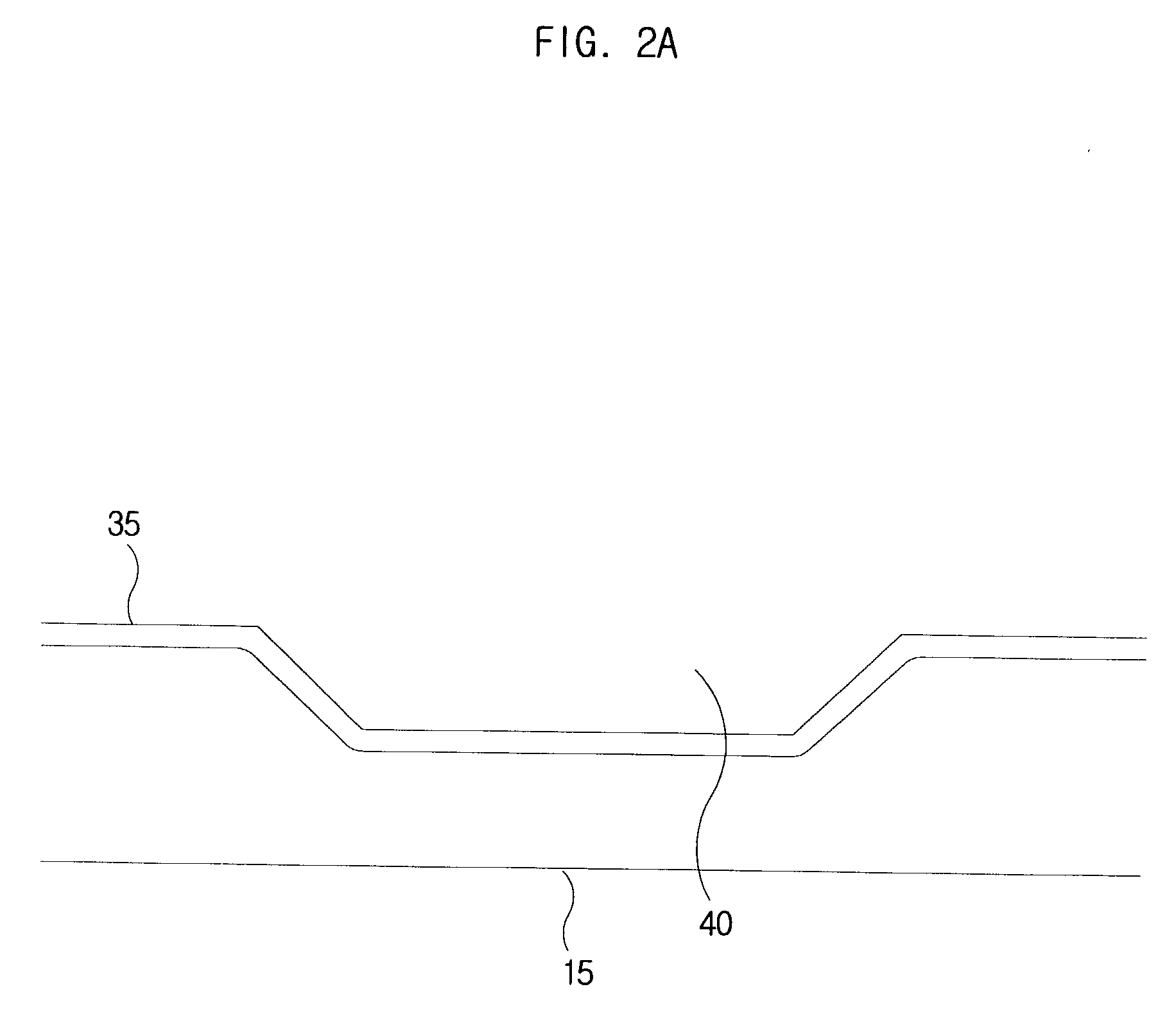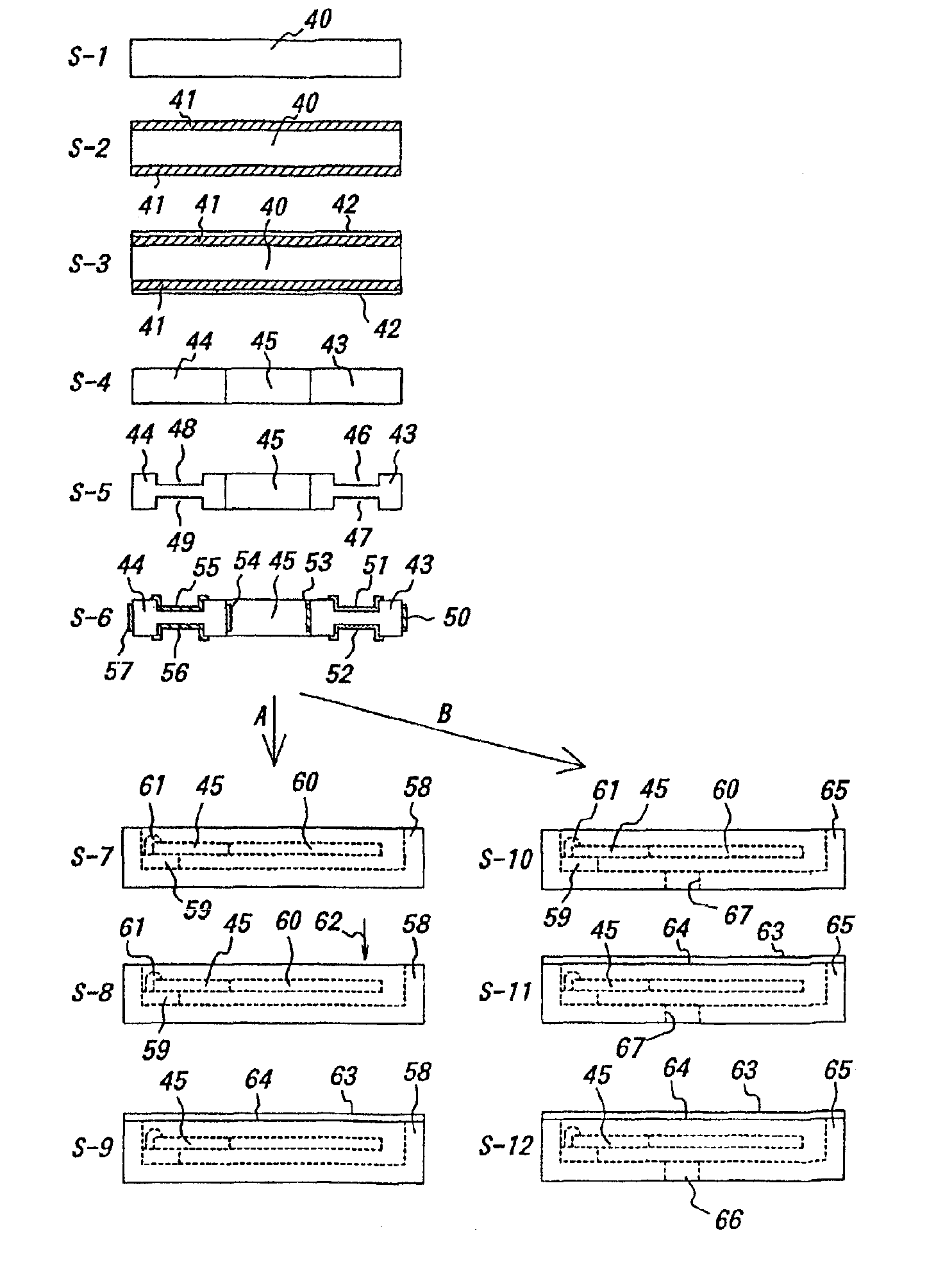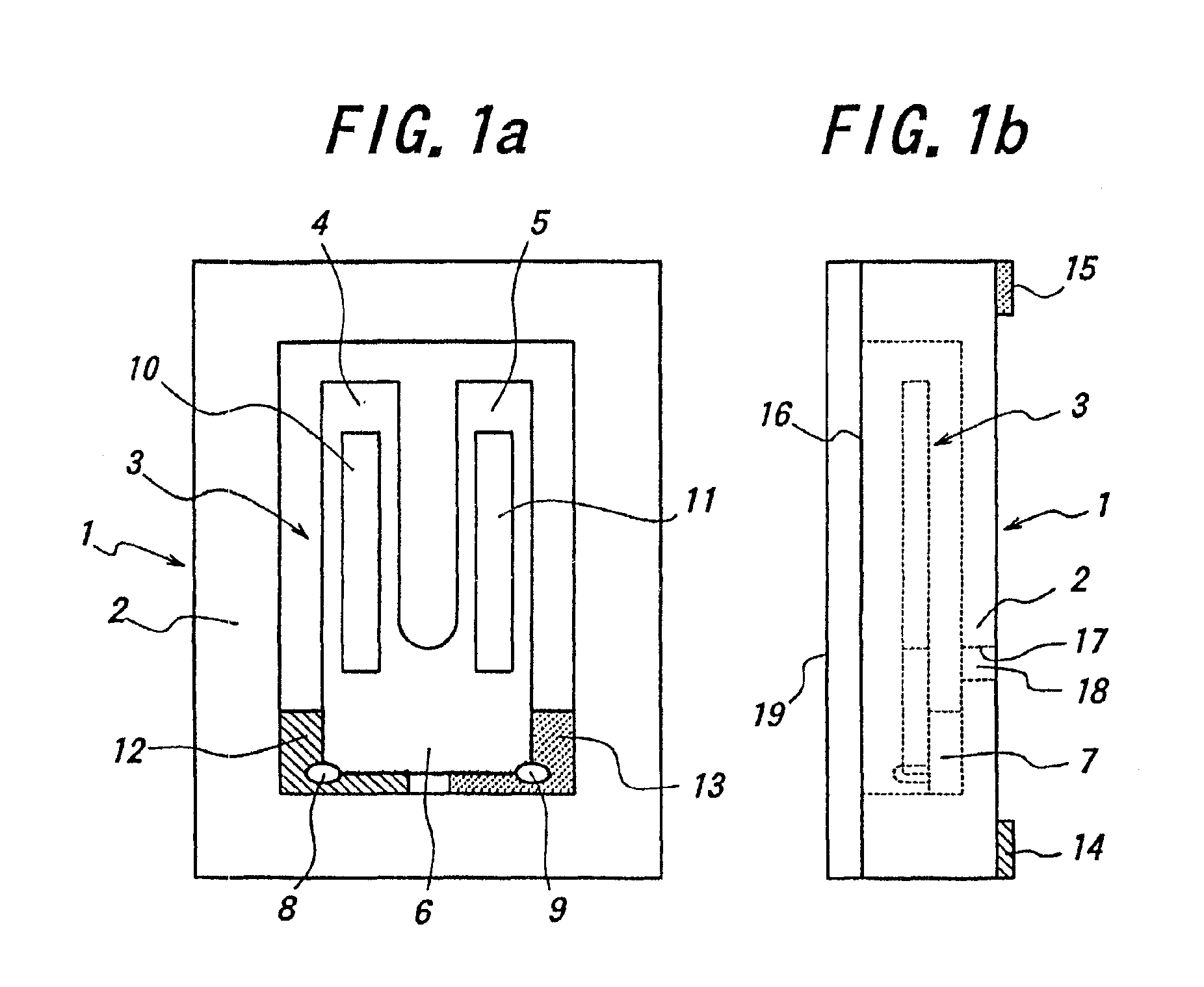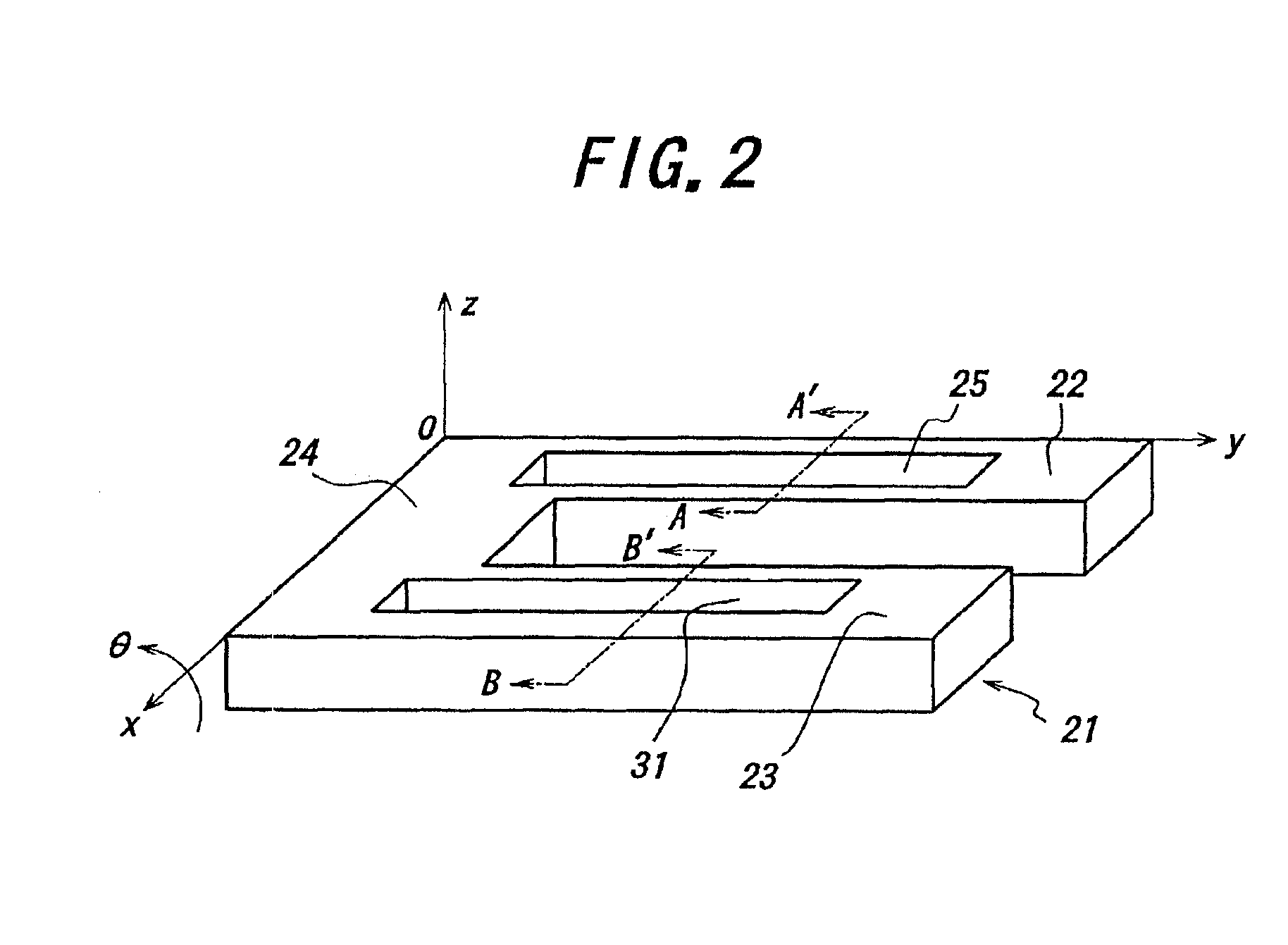Patents
Literature
Hiro is an intelligent assistant for R&D personnel, combined with Patent DNA, to facilitate innovative research.
1929results about How to "High quality factor" patented technology
Efficacy Topic
Property
Owner
Technical Advancement
Application Domain
Technology Topic
Technology Field Word
Patent Country/Region
Patent Type
Patent Status
Application Year
Inventor
Telemetry method and apparatus using magnetically-driven MEMS resonant structure
InactiveUS20070236213A1High quality factorImprove reliabilityMagnetic property measurementsDiagnostic recording/measuringIntraocular pressurePressure sense
A telemetry method and apparatus using pressure sensing elements remotely located from associated pick-up, and processing units for the sensing and monitoring of pressure within an environment. This includes remote pressure sensing apparatus incorporating a magnetically-driven resonator being hermetically-sealed within an encapsulating shell or diaphragm and associated new method of sensing pressure. The resonant structure of the magnetically-driven resonator is suitable for measuring quantities convertible to changes in mechanical stress or mass. The resonant structure can be integrated into pressure sensors, adsorbed mass sensors, strain sensors, and the like. The apparatus and method provide information by utilizing, or listening for, the residence frequency of the oscillating resonator. The resonant structure listening frequencies of greatest interest are those at the mechanical structure's fundamental or harmonic resonant frequency. The apparatus is operable within a wide range of environments for remote one-time, random, periodic, or continuous / on-going monitoring of a particular fluid environment. Applications include biomedical applications such as measuring intraocular pressure, blood pressure, and intracranial pressure sensing.
Owner:LAUNCHPOINT TECH
High frequency PCB coils
Described herein designs for high frequency printed circuit board (PCB) resonator coils. The resonator coils are printed or etched on a thin substrate. The number of loops of the resonator coil, the width of each trace, the spacing between the traces, and the like are adjusted to increase the quality factor Q of the resonator coils.
Owner:WITRICITY CORP
Resonator system
ActiveUS7193418B2Improve efficiencySmall angleMagnetic measurementsElectric/magnetic detectionElectricityResonance
Owner:BRUKER SWITZERLAND AG
Magnetic field shielding sheet for a wireless charger, method for manufacturing same, and receiving apparatus for a wireless charger using the sheet
ActiveUS20150123604A1Reduce lossesHigh quality factorNear-field transmissionShielding materialsElectric power transmissionTerminal equipment
Provided are a magnetic field shield sheet for a wireless charger, which blocks an effect of an alternating-current magnetic field generated when a charger function for a portable mobile terminal device is implemented in a non-contact wireless manner on a main body of the portable mobile terminal device and exhibits excellent electric power transmission efficiency, a method of manufacturing the sheet, and a receiver for the wireless charger by using the sheet. The sheet includes: at least one layer thin magnetic sheet made of an amorphous ribbon separated into a plurality of fine pieces; a protective film that is adhered on one surface of the thin magnetic sheet via a first adhesive layer provided on one side of the protective film; and a double-sided tape that is adhered on the other surface of the thin magnetic sheet via a second adhesive layer provided on one side of the double-sided adhesive tape, wherein gaps among the plurality of fine pieces are filled by some parts of the first and second adhesive layers, to thereby isolate the plurality of fine pieces.
Owner:AMOSENSE
Methods of forming oxide masks with submicron openings and microstructures formed thereby
ActiveUS20050124135A1High process yieldHigh quality factorSemiconductor/solid-state device manufacturingMicrostructural device manufactureSingle crystalPhotolithography
Processing techniques are disclosed for batch fabrication of microstructures comprising an oxide mask on a substrate with submicron openings formed therein, and microstructures having deep-submicron, high aspect-ratio etched trenches, using conventional optical photolithography. Exemplary high aspect-ratio etched-trench microstructures that may be produced include single crystal resonators and sensors.
Owner:GEORGIA TECH RES CORP
Automatic Learning Multi-Modal Fraud Prevention (LMFP) System
ActiveUS20140289867A1Increase probabilityHigh quality factorDigital data processing detailsAnalogue secracy/subscription systemsRe challengeChallenge response
A computerized learning multi-modal fraud prevention system and method for generating a data signature of a user, such as one engaged in electronic commerce, to prevent fraudulent activities by machines and persons imitating the user. Steps comprise: fetching a signal of a user's signature stored in memory; generating at least one challenge sequence based on the signal to create a second signature; presenting the generated challenge sequence to the user; collecting the user's challenge response to the generated challenge sequence; computing a quality factor between the user's challenge response and the generated challenge sequence; computing a transaction quality factor and content quality factor and reporting an impostor or re-challenging if the quality factor is below a threshold. Lastly, generating a new signature based on any portion of a user's challenge response and / or any portion of the previously generated signature and / or any portion of collectable information from the user's device memory.
Owner:BUKAI DROR
Nanostructured bulk thermoelectric material
InactiveUS20080173344A1High quality factorThermoelectric device manufacture/treatmentSemiconductor/solid-state device manufacturingThermoelectric materialsNanoparticle
A thermoelectric material includes a composite having a first electrically conducting component and second low thermal conductivity component. The first component may include a semiconductor and the second component may include an inorganic oxide. The thermoelectric composite includes a network of the first component having nanoparticles of the second component dispersed in the network.
Owner:TOYOTA MOTOR CO LTD +1
Inductor element and method for production thereof, and semiconductor module with inductor element
InactiveUS20070247268A1Reduce inductanceLower quality factorSemiconductor/solid-state device detailsSolid-state devicesAerosol depositionInductor
Owner:SONY CORP
System And Method For Wireless Power And Data Transmission In A Rotary Steerable System
InactiveUS20140084946A1High quality factorEfficient transferConstructionsResistance/reactance/impedenceAlternating currentTurbine
Various embodiments for wireless power and data communications transmissions between a cartridge in a rotary steering system and components within a drill collar are disclosed. In a certain embodiment, magnetic fields are used to transfer power and data between the cartridge of a rotary steering system and electronics and / or sensors mounted in the drill collar. A first coil is attached to the pressure housing of the cartridge by a shaft containing wires. The turbine in the pressure housing provides an alternating current to the first coil, which is attached to the shaft. Consequently, the first coil generates an alternating magnetic field that passes through the ferrite surrounding a second coil that is attached by wires to an annular pressure housing that is attached to the drill collar. The alternating magnetic field generates an emf in the second coil, which provides power for electronics and sensors mounted in the drill collar.
Owner:SCHLUMBERGER TECH CORP
Integrated circuit on high performance chip
InactiveUS8048766B2Increase temperatureSimple structureTelevision system detailsPiezoelectric/electrostriction/magnetostriction machinesActive componentEngineering
A method of fabricating a die containing an integrated circuit, including active components and passive components, includes producing a first substrate containing at least one active component of active components and a second substrate containing critical components of the passive components, such as perovskites or MEMS, and bonding the two substrates by a layer transfer. The method provides an improved monolithic integration of devices such as MEMS with transistors.
Owner:COMMISSARIAT A LENERGIE ATOMIQUE ET AUX ENERGIES ALTERNATIVES
Nanostructured bulk thermoelectric material
ActiveUS7309830B2High quality factorImprove mechanical propertiesThermoelectric device with peltier/seeback effectThermoelectric device manufacture/treatmentThermoelectric materialsNanowire
A thermoelectric material comprises two or more components, at least one of which is a thermoelectric material. The first component is nanostructured, for example as an electrically conducting nanostructured network, and can include nanowires, nanoparticles, or other nanostructures of the first component. The second component may comprise an electrical insulator, such as an inorganic oxide, other electrical insulator, other low thermal conductivity material, voids, air-filled gaps, and the like. Additional components may be included, for example to improve mechanical properties. Quantum size effects within the nanostructured first component can advantageously modify the thermoelectric properties of the first component. In other examples, the second component may be a thermoelectric material, and additional components may be included.
Owner:TOYOTA MOTOR CO LTD +1
High efficiency inductor, method for manufacturing the inductor, and packaging structure using the inductor
ActiveUS20070085648A1Maintain good propertiesHigh quality factorTransformers/inductances casingsTransformers/inductances coils/windings/connectionsEngineeringInductor
An inductor is provided which includes a plurality of via holes vertically passing through a substrate, the substrate having insulating properties, vertical conductive portions filling the via holes, and horizontal conductive portions connecting each individual vertical conductive portions at the top and the bottom of the substrate to form a single coil structure with the vertical conductive portions.
Owner:SAMSUNG ELECTRONICS CO LTD
Integrated or printed margarita shaped inductor
InactiveUS20100245011A1Increase the inductance valueArea minimizationMultiple-port networksTransformers/inductances coils/windings/connectionsInductorMagnetic flux
Owner:ARISTOTLE UNIV THESSALONIKI RES COMMITTEE
Power amplifier configuration
InactiveUS6774719B1Increase powerHigh quality factorAmplifier modifications to reduce non-linear distortionGain controlCapacitanceControl signal
A variable capacitance and control system used in a compensative manner to improve efficiency in power amplifier arrangements arranged to receive a power input which is voltage-modulated responsive to at least one control signal representative of the data signal. Also included are methods and software for controlling said power amplifier arrangements including the variable capacitance and control system. The data input to the power amplifier is pre-distorted and the resulting power amplification is substantially linear. The arrangement may be used in wireless base station transmitters, for example. Improved data transmission services are also provided which make use of such power amplifiers.
Owner:MICROSOFT TECH LICENSING LLC
Gradiometer-based flux qubit for quantum computing and method therefor
InactiveUS6984846B2Intrinsic robustnessHigh quality factorQuantum computersSuperconductors/hyperconductorsGradiometerFlux qubit
Owner:GLOBALFOUNDRIES INC
Contour-mode piezoelectric micromechanical resonators
ActiveUS20060290449A1Reduce packaging costsLower resistanceImpedence networksEngineeringMicromachinery
A contour mode micromechanical piezoelectric resonator. The resonator has a bottom electrode; a top electrode; and a piezoelectric layer disposed between the bottom electrode and the top electrode. The piezoelectric resonator has a planar surface with a cantilevered periphery, dimensioned to undergo in-plane lateral displacement at the periphery. The resonator also includes means for applying an alternating electric field across the thickness of the piezoelectric resonator. The electric field is configured to cause the resonator to have a contour mode in-plane lateral displacement that is substantially in the plane of the planar surface of the resonator, wherein the fundamental frequency for the displacement of the piezoelectric resonator is set in part lithographically by the planar dimension of the bottom electrode, the top electrode or the piezoelectric layer.
Owner:RGT UNIV OF CALIFORNIA +1
Tunable optical wavelength filters and multi-level optical integrated circuits
InactiveUS6865314B1Reduce gap sizeEasy to controlNanoopticsCoupling light guidesOptical cavityVertical alignment
The present invention comprises tunable optical wavelength filters and multi-level optical integrated circuits which use resonant optical cavities in a vertical arrangement with input and output waveguides. The resonant optical cavities are vertically separated from the input and output waveguides by a material or region of lower refeactive index. The vertical arrangement allows accurate control over the gap size between the waveguides and the cavities during manufacture. The present invention also enables the use of electrodes for enhancing tuning characteristics and for multiple tunable optical wavelength filters to be created in vertical alignment with one another by placing two resonant optical cavities and their respective input and output waveguides in vertical alignment with a low refractive index buffer between the multiple tunable optical wavelength filters. In addition, the present invention includes multiple manufacturing methods in which tunable optical wavelength filters are created on different substrates.
Owner:BLAIR STEVEN M +1
Method to fabricate RF inductors with minimum area
InactiveUS6387747B1Minimal capacitative couplingReduce crosstalkSemiconductor/solid-state device detailsSolid-state devicesThree levelEngineering
A method for forming an RF inductor of helical shape having high Q and minimum area. The inductor is fabricated of metal or damascened linear segments formed on three levels of intermetal dielectric layers and interconnected by metal filled vias to form the complete helical shape with electrical continuity.
Owner:CHARTERED SEMICONDUCTOR MANUFACTURING
Method for measuring material complex permittivity based on substrate integrated waveguide round resonant cavities
ActiveCN103901278AEasy to processLow costResistance/reactance/impedenceResonant cavitySimultaneous equations
Owner:UNIV OF ELECTRONICS SCI & TECH OF CHINA
Characterization and measurement of superconducting structures
ActiveUS7002174B2High quality factorQuantum computersNanoinformaticsCapacitanceAudio power amplifier
A structure comprising a tank circuit inductively coupled to a flux qubit or a phase qubit. In some embodiments, a low temperature preamplifier is in electrical communication with the tank circuit. The tank circuit comprises an effective capacitance and an effective inductance that are in parallel or in series. In some embodiments, the effective inductance comprises a multiple winding coil of wire. A method that includes the steps of (i) providing a tank circuit and a phase qubit that are inductively coupled, (ii) reading out a state of the phase qubit, (iii) applying a flux to the phase qubit that approaches a net zero flux, (iv) increasing a level of flux applied to the phase qubit, and (v) observing a response of the tank circuit in a readout device.
Owner:D WAVE SYSTEMS INC
Circuit arrangement and method for deriving electrical power from an electromagnetic field
ActiveUS6940467B2Prevent destruction and damage and failureAvoiding excessive power absorptionNear-field transmissionElectromagnetic wave systemElectric forceImpedance matching
A circuit arrangement for deriving electrical power from a received electromagnetic field to power a transponder includes a detuning unit connected between two antenna terminals for limiting the power absorbed by the antenna. The detuning unit includes a component having an impedance that passively varies or is actively varied dependent on the field strength of the field prevailing at the antenna. One arrangement of the detuning unit includes two varactor diodes connected anti-parallel between the antenna terminals. Another arrangement of the detuning unit includes a varactor arranged in series between two capacitors between the antenna terminals, a field strength detector, and a controllable voltage source connected to apply to the varactor a control voltage that varies depending on the detected field strength. Thereby, the input impedance varies depending on the field strength, to achieve impedance matching for a low field strength, and a mis-matched condition for a high field strength.
Owner:ATMEL GERMANY +1
Linear variable voltage diode capacitor and adaptive matching networks
InactiveUS20090134960A1Reduce distortion problemsHighly linear voltage variableTransistorMultiple-port networksSize ratioAdaptive matching
An integrated variable voltage diode capacitor topology applied to a circuit providing a variable voltage load for controlling variable capacitance. The topology includes a first pair of anti-series varactor diodes, wherein the diode power-law exponent n for the first pair of anti-series varactor diodes in the circuit is equal or greater than 0.5, and the first pair of anti-series varactor diodes have an unequal size ratio that is set to control third-order distortion. The topology also includes a center tap between the first pair anti-series varactor diodes for application of the variable voltage load. In preferred embodiments, a second pair of anti-series varactor diodes is arranged anti-parallel to the first pair of anti-series varactor diodes so the combination of the first pair of anti-series varactor diodes and the second pair of anti-series varactor diodes control second-order distortion as well.
Owner:TECH UNIV DELFT +1
User interface method and system for cellular phone
InactiveUS20060079238A1Easy to useImproved rateAccounting/billing servicesSubstation equipmentHandsetTelephone network
An alternative method for operating a mobile handset. The method includes providing a mobile hand set comprising a user interface and a mobile application, which is coupled to a telephone network. The method includes entering a predetermined phone number through the user interface and determining a destination location of the predetermined phone number. The method includes determining a calling location of the mobile handset and identifying a balance information for a customer associated with the mobile handset. The method includes outputting the balance information associated with the customer to a user of the mobile handset.
Owner:MINO HLDG
Micro electro-mechanical variable capacitor
InactiveUS6906905B1Increase capacitanceHigh quality factorMechanically variable capacitor detailsCapacitor with electrode area variationDielectricCapacitance
A three-dimensional micro electro-mechanical (MEMS) variable capacitor is described wherein movable comb electrodes of opposing polarity are fabricated simultaneously on the same substrate are independently actuated. These electrodes are formed in an interdigitated fashion to maximize the capacitance of the device. The electrodes are jointly or individually actuated. A separate actuation electrode and a ground plane electrode actuate the movable electrodes. The voltage potential between the two electrodes provides a primary mode of operation of the device. The variation of the sidewall overlap area between the interdigitated fingers provides the expected capacitance tuning of the device. The interdigitated electrodes can also be attached on both ends to form fixed-fixed beams. The stiffness of the electrodes is reduced by utilizing thin support structures at the ends of the electrodes. The three dimensional aspect of the device avails large surface area. Large capacitance variation and tuning ranges are obtained by independent actuation of the electrode fingers. A plurality of modes of operation of the device provides wide flexibility and greater performance advantage for the device. Upon fabrication of the device, a separate substrate with etched dielectric is used to encapsulated the device. The MEMS device is then completely encapsulated, requiring no additional packaging of the device. Further, since alignment and bonding can be done on a wafer scale, an improved device yield is obtained at a lower cost.
Owner:GLOBALFOUNDRIES INC
Automatic Learning Fraud Prevention (LFP) System
InactiveUS20140214676A1Read more difficultIncrease probabilityFinanceSpeech analysisE-commerceFigure of merit
A computerized learning fraud prevention system and method for generating a voice signature of a user, such as one engaged in electronic commerce, to prevent fraudulent activities by machines and persons imitating the user. Steps comprise: fetching a signal of a user's signature stored in memory; generating at least one challenge sequence based on the signal to create a second signature; presenting the generated challenge sequence to the user; collecting the user's challenge voice response to the generated challenge sequence; computing a quality factor between the user's challenge response and the generated challenge sequence; computing a transaction quality factor and content quality factor and reporting an impostor or re-challenging if the quality factor is below a threshold. Lastly, generating new signature based on any portion of user's challenge voice response and / or any portion of the previously generated signature and / or any portion of collectable information from user's device memory.
Owner:BUKAI DROR
Load-Line Adaptation
InactiveUS20090174496A1Save energyHigh bandwidthMultiple-port networksAnalogue adaptive filtersAudio power amplifierTransmission zeros
According to the general concept disclosed herein, a circuit for adaptive matching of a load impedance to a predetermined load-line impedance of a load-line connected to a power amplifier output includes a fixed matching network between the power transistor and an adaptive matching network, whereby the fixed matching network acts as an impedance inverter which results in a relatively low insertion loss at high power. Results indicate that the impedance-inverting network can be used over more than a factor of 10 in impedance variation. Further, the usage of the fixed matching network, close to the power transistor, allows for the implementation of transmission zeros and / or for a well defined load impedance at a predetermined harmonic frequency, independent of the (variable) load impedance at the fundamental frequency.
Owner:QUALCOMM TECHNOLOGIES INC
Capacitive micromachined tuning fork gyroscope
InactiveCN102062604ASuppress couplingNo changeTelevision system detailsImpedence networksCapacitanceTuning fork
The invention provides a capacitive micromachined tuning fork gyroscope. The gyroscope is the symmetrical dual-mass structural gyroscope, comprising a substrate and a framework arranged in the centre of the substrate, wherein the middle of the framework is provided with a framework beam perpendicular to the framework; two detection mass blocks are symmetrically arranged in the framework with the framework beam as a symmetry axis, and four corners of each detection mass block are connected with the framework and the framework beam through at least four drive beams; decoupling drive comb capacitors are respectively arranged at both ends of each detection mass block in the direction of a vertical axis; detection comb capacitors are symmetrically arranged on both outer sides of the framework in the direction of a horizontal axis; at least four detection beams are arranged on both outer sides of the framework in the direction of the vertical axis; and the detection beams are distributed symmetrically relative to the vertical axis and the horizontal axis and are fixed on the substrate through corresponding anchor points. According to the capacitive horizontal-axis micromachined tuning fork gyroscope provided by the invention, the mechanical coupling between the detection mode and the driving mode of the micromachined tuning fork gyroscope can be solved easily and effectively.
Owner:PEKING UNIV
Self-correcting phaselocked loop frequency synthesizer capable of realizing frequency band selection
The invention discloses a self-correcting phaselocked loop frequency synthesizer capable of realizing frequency band selection, composed of a phaselocked loop and a self-correction loop; wherein the phaselocked loop is formed by connecting a phase detection discriminator, a charge pump, a loop filter, a voltage-controlled oscillator and a frequency divider in sequence, the self-correcting loop is formed by connecting a phase detection discriminator, a trigger, a controller, a voltage-controlled oscillator and a frequency divider in sequence, and the phaselocked loop and the self-correcting loop share the same phase detection discriminator, the same voltage-controlled oscillator and the same frequency divider. The invention realizes center frequency correction by regulating one group of fixed capacitor of voltage-controlled oscillator, so that widen frequency tuning range can be obtained under lower gain of voltage-controlled oscillator, thus error caused by making process of integrated inductance and variable varactor can be compensated, phase noise of phaselocked loop frequency synthesizer is reduced, and implementation of single chip phaselocked loop frequency synthesizer by adopting CMOS technology can be realized.
Owner:南京中科微电子有限公司
Thin film resonator and method for manufacturing the same
InactiveUS20030030118A1Highly integrated onto substrateGreat advantageImpedence networksPiezoelectric/electrostriction/magnetostriction machinesThin membraneDielectric layer
A thin film resonator having enhanced performance and a manufacturing method thereof are disclosed. The thin film resonator includes a supporting means, a first electrode, a dielectric layer and a second electrode. The supporting means has several posts and a supporting layer formed on the posts. The first electrode, the dielectric layer and the second electrode are successively formed on the supporting layer. The thin film resonator is exceptionally small and can be highly integrated, and the thickness of the dielectric layer of the resonator can be adjusted to achieve the integration of multiple bands including radio, intermediate and low frequencies. Also, the thin film resonator can minimize interference and has ideal dimensions because of its compact substrate, making the thin film resonator exceptionally small, yet comprising a three-dimensional, floating construction.
Owner:MEMS SOLUTIONS INC
Method for manufacturing a quartz crystal unit
InactiveUS6898832B2Improve accuracyLow pricePrinted circuit assemblingPiezoelectric/electrostrictive device manufacture/assemblyResonatorTuning fork
In a method for manufacturing a quartz crystal unit, a quartz crystal tuning fork resonator is formed by etching a quartz crystal wafer to form a quartz crystal tuning fork base, quartz crystal tuning fork tines connected to the quartz crystal tuning fork base, and a groove having stepped portions in at least one of opposite main surfaces of each of the quartz crystal tuning fork tines. A first electrode is disposed on at least one of the stepped portions of each of the grooves and a second electrode is disposed on each of side surfaces of each of the quartz crystal tuning fork tines. A frequency of oscillation of the quartz crystal tuning fork resonator is adjusted at least twice and in different steps. The quartz crystal tuning fork resonator is then mounted in a case and an open end of the case is covered with a lid.
Owner:PIEDEK TECHN LAB
Features
- R&D
- Intellectual Property
- Life Sciences
- Materials
- Tech Scout
Why Patsnap Eureka
- Unparalleled Data Quality
- Higher Quality Content
- 60% Fewer Hallucinations
Social media
Patsnap Eureka Blog
Learn More Browse by: Latest US Patents, China's latest patents, Technical Efficacy Thesaurus, Application Domain, Technology Topic, Popular Technical Reports.
© 2025 PatSnap. All rights reserved.Legal|Privacy policy|Modern Slavery Act Transparency Statement|Sitemap|About US| Contact US: help@patsnap.com
